
A literary agency based in Edinburgh
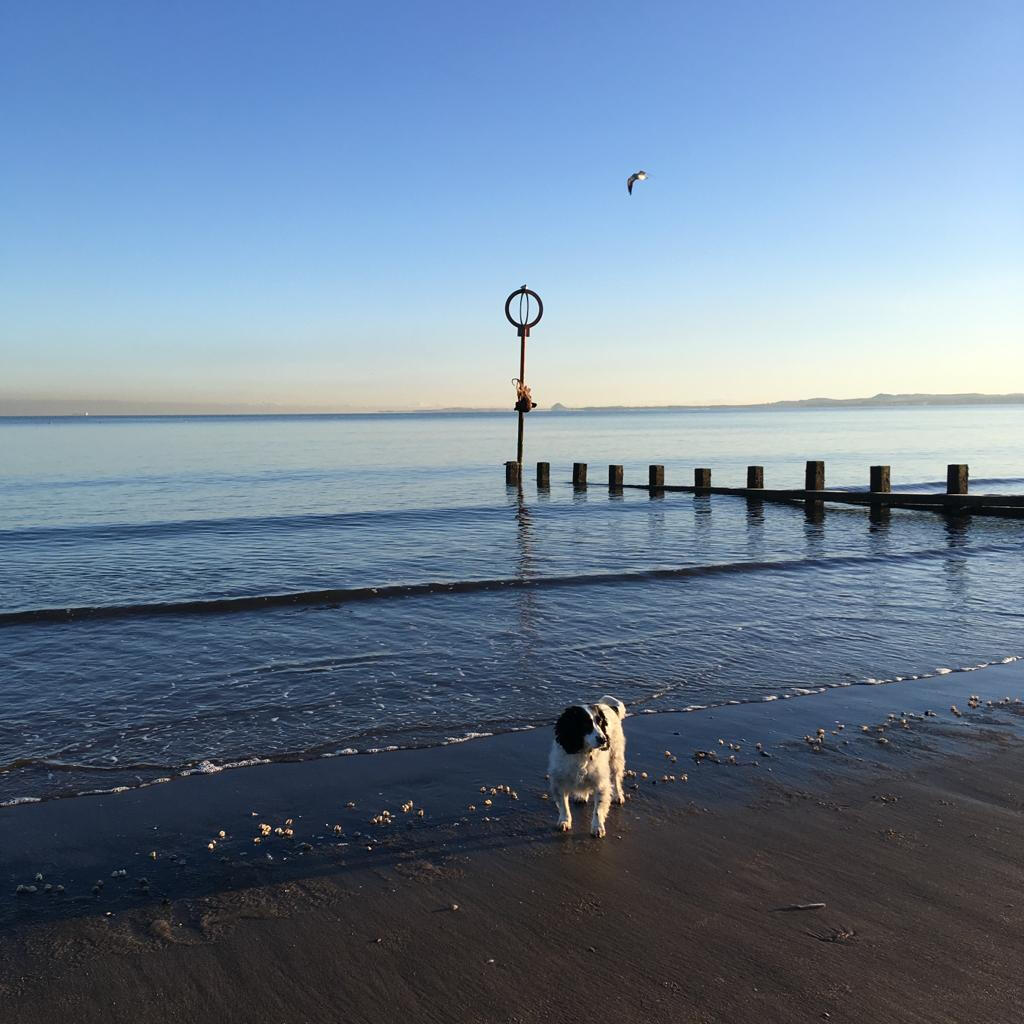
Privacy Notice
This is the privacy notice of Portobello Literary (“we, us, our”)INTRODUCTION
This is a notice to inform you of our policy about all the information that we record about you. It sets out the conditions under which we may process any information that we collect from you or that you provide to us. It covers information that could identify you “personal information”) and information that could not. In the context of the law and this notice, “process” means collect, store, use or otherwise act on information.If you object in whole or in part to the terms laid out below, please do not use this website.Our policy complies with UK law accordingly implemented, including that required by the EU General Data Protection Regulation (GDPR).WHAT PERSONAL DATA WE COLLECT
We will collect any information that you provide to us when you:
1. make a query over the phone, by email, in writing or on our website;
2. submit manuscripts or other content to us by post, email or via our website; we may keep a record of that correspondence
3. submit an application to a job vacancy;
4. ‘follow’, ‘like’, post to or interact with our social media accountsThe information you provide to us will include (depending on the circumstances):
1. Identity and contact data: Title, names, addresses, email addresses and phone numbers; links to your own website and social media platforms
2. Employment and background data: Job title, prior experience, references, CV or other information relating to your personal professional employment history.Information we collect about you:
1. Information contained in correspondence: We will collect any information contained in any correspondence between us. For example, if you contact us using a query button on our website or by email, post or telephone, we may keep a record of that correspondence;
2. Website usage data: We will collect information about your interactions with the website, including information such as login data, IP address, page views, searches, requests, orders, preapprovals, confirmations, agreements between you and other website users and other actions on the website;
3. Technical information: We will also collect certain information about how you use our website, details of specific content and or pages you visit on our website (including duration of visits), Internet Protocol (IP) address used to connect your computer to the internet, device(s) you use to access our Website, and your geographical location. This information be collected by a third-party website analytics service provider on our behalf and/or may be collected using cookies. For more information on cookies please read the COOKIES section below.INFORMATION WE RECEIVE FROM THIRD PARTIES
In certain circumstances, we will receive information about you from third parties. For example:
1. Employers, recruitment agencies and referees: If you are a job applicant we may contact your recruiter, current and former employers and/or referees, who may be based inside or outside the EU, to provide information about you and your application;
2. Third parties who can verify submitted information: If you submit a manuscript to us for our review, we may use third party providers to verify the information that you provide to us in connection with that submission. For example, we will use third-party databases or websites such as Amazon or Nielsen bookscan to confirm your publication history;We use your information for the following purposes:
1. To provide you with access to our website in a manner convenient and optimal and with personalised content relevant to you including sharing your information with our website hosts and developers (on the basis of our legitimate interest to ensure our website is presented in an effective and optimal manner);
3. User and client support: to deal with enquiries or complaints about the website and share your information with our website developer and IT support provider as necessary to provide support (on the basis of our legitimate interest in providing the correct services to our website users and to comply with our legal obligations);
4. Recruitment: to process any job applications you submit to us, whether directly or via an agent or recruiter including sharing this with our third party recruitment agency (on the basis of our legitimate interest to recruit new employees or contractors);WHO WE MIGHT SHARE YOUR INFORMATION WITH
The Personal Data that we collect from you may be transferred to and stored at a destination outside the European Economic Area including but not limited to the USA. By submitting your Personal Data to us you agree to this transfer, storage or processing. We will take all steps reasonably necessary and available to us to safeguard and ensure that your Personal Data is treated securely and in accordance with applicable laws.COOKIES
We use cookies to ensure that you get the most out of our website. Cookies are small amounts of information in the form of text files which we store on the device you use to access our website. Cookies allow us to monitor your use of the software and simplify your use of the website.If you do not wish for cookies to be installed on your device, you can change the settings on your browser or device to reject cookies. For more information about how to reject cookies using your internet browser settings please consult the “Help” section of your internet browser (or alternatively visit http://www.aboutcookies.org). Please note that, if you do set your Internet browser to reject cookies, you may not be able to access all of the functions of the website.HOW WE LOOK AFTER YOUR INFORMATION AND HOW LONG WE KEEP IT FOR
We will retain your Personal Data only for as long as is necessary to provide you with the services/activities we are undertaking and to comply with our legal obligations.Please note that our Website may from time to time, contain links to and from third party websites. If you follow a link to any of these websites, please note that these websites have their own privacy policies and that we do not accept any responsibility or liability for these policies.YOUR RIGHTS TO THE INFORMATION WE HOLD ABOUT YOU
You have legal rights (i) to make a “subject access request” to access your Personal Data; (ii) to request and be given your Personal Data in machine readable format for the purposes of your passing such data to third parties; (iii) to request rectification or removal of your Personal Data; and (iv) to object to processing of your Personal Data and/or to have its processing restricted. You can withdraw your consent to receive marketing messages at any time. If you would like to use any of these rights, or otherwise have any questions about how we handle data, please contact us at info@portobelloliterary.co.uk, with details of your request. In the case of subject access requests please ensure that you add “subject access request” into the subject line of your email.In relation to subject access requests, we will respond as soon as possible but no longer than one month after such request is received. We will not usually charge you an administration fee in relation to any such subject access request unless we feel that the request is unusually onerous or complex.USE OF SITE BY CHILDREN
We do not knowingly market or intentionally collect information from children under age 13.If you are not happy with our privacy policy or if you have any compliant, then contact us at info@portobelloliterary.co.ukYou have a right to lodge a complaint with the Information Commissioner’s Office.CHANGES TO THIS PRIVACY NOTICE
We may make changes to this Privacy Notice from time to time as necessary. We will post any changes to our site.
About
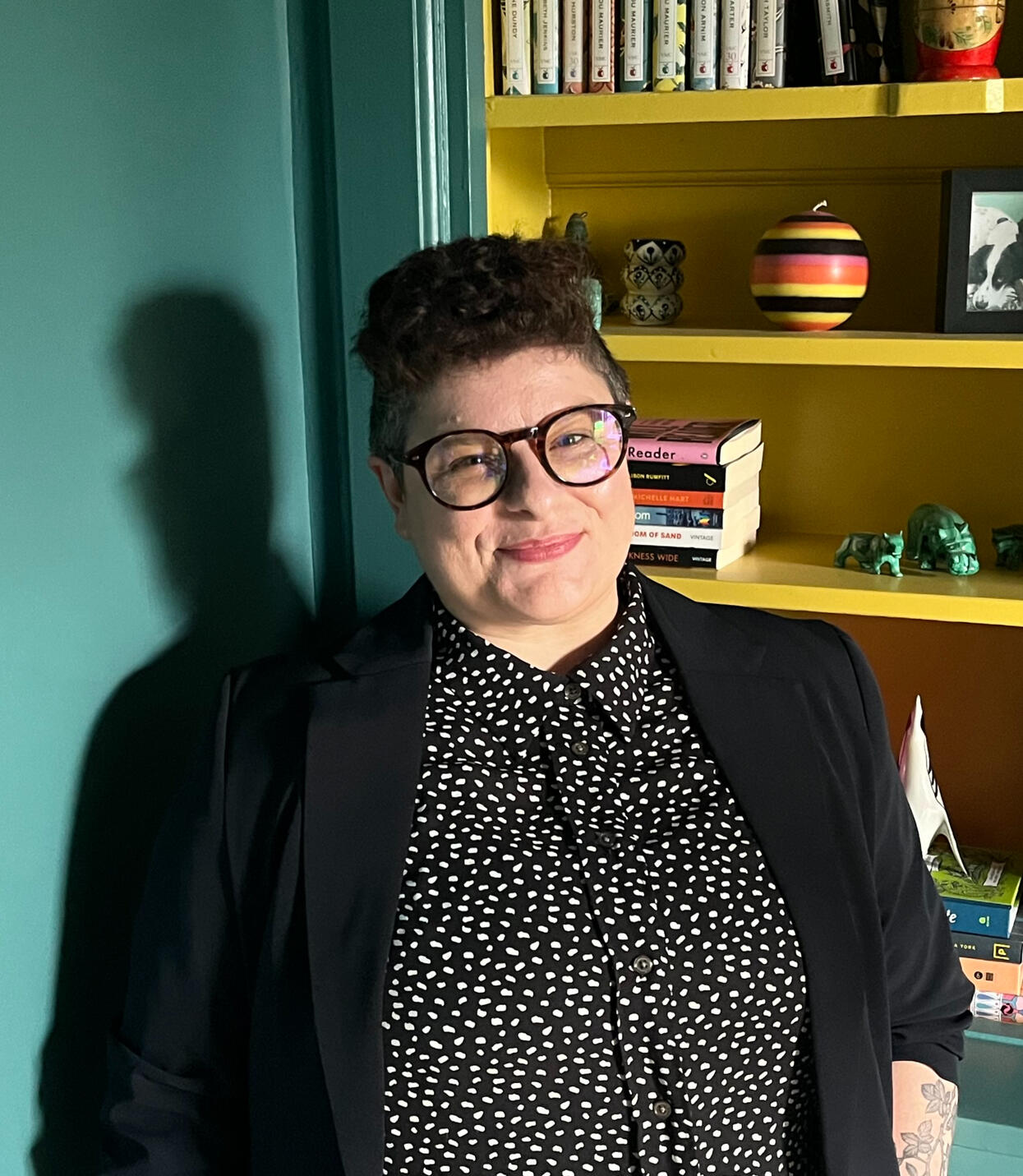
Caro Clarke is the founder and literary agent at Portobello Literary. They founded the agency in 2022 after twelve years working in publishing houses – Transworld (PRH) and Canongate Books as a Senior Rights Manager. They were named Rights Professional of the Year at the British Book Awards in 2021 and a Bookseller Rising Star in 2024.In 2019, they co-founded the Nan Shepherd Prize for underrepresented nature writers, which kickstarted a passion to demystify the publishing industry and help emerging writers to develop their craft and build their writing careers. Portobello Literary was established in 2022 to build on that work.Writers they have worked with have won or been nominated for the Arthur C. Clarke Award, Wainwright Prize, Saltire National Book Awards, Fitzcarraldo Essay Prize, Edwin Morgan Poetry Award, Forward Prize, Morley Prize for Unpublished Writers of Colour, Mo Siewcharran Prize, Scottish Book Trust New Writers Award, Northern Writers Award, Nan Shepherd Prize, Laurel Prize, Nature Chronicles Prize, Wasafiri New Writing Prize, Eric Gregory Award, Women in Journalism Georgina Henry award, SI Leeds Literary Award and the Frank Allen Bullock Creative Writing Prize.Contact emailFor more information on the type of authors we're looking for, please visit the Submissions section.
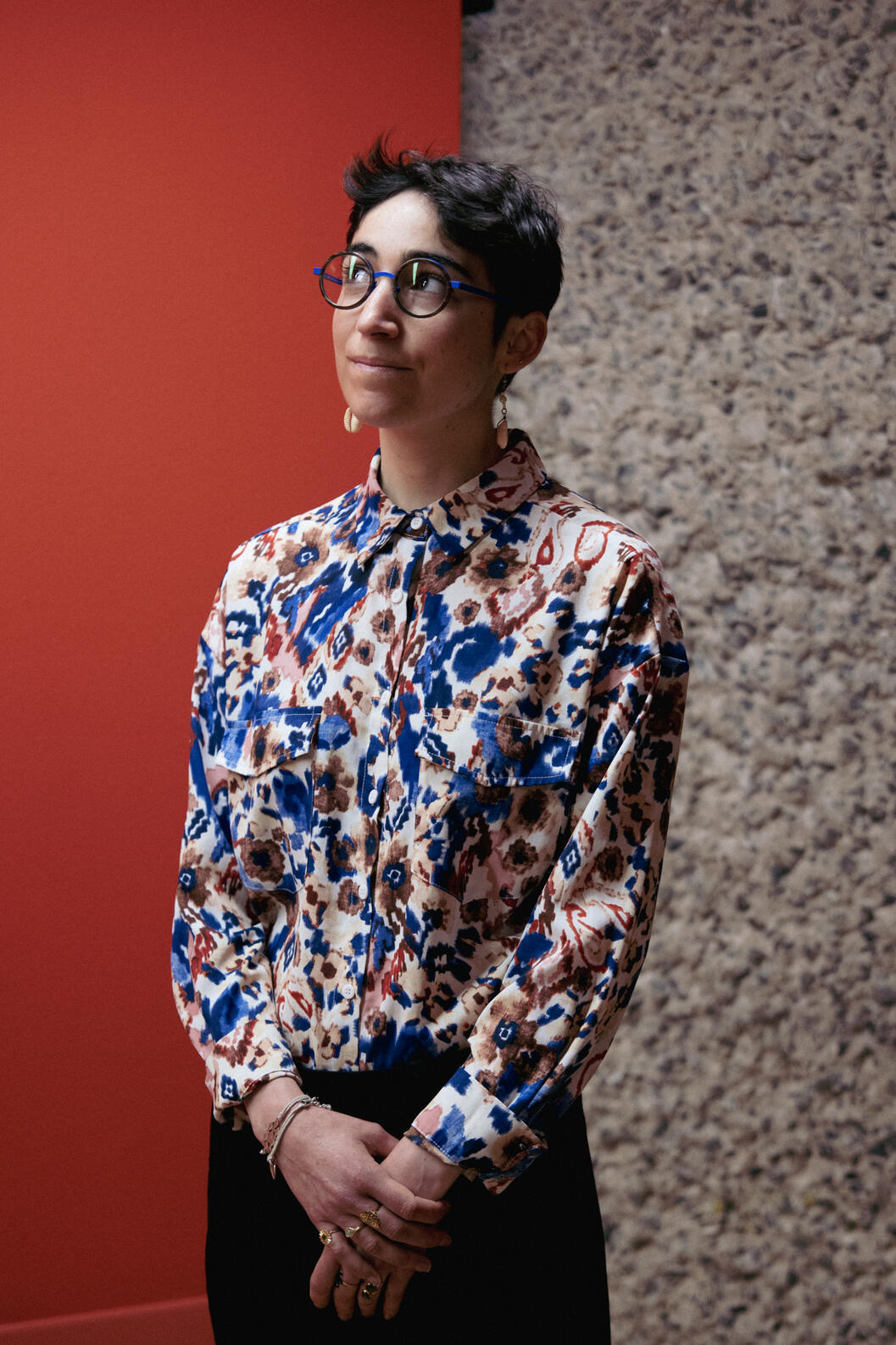
Margaux Vialleron handles translation rights for all our authors, working directly in France, Greece and Italy and with co-agents in the rest of the world. Before joining Portobello Literary, Margaux was a Translation Rights Agent at David Higham Associates for eight years. Margaux is also the author of two the novels: The Yellow Kitchen and Breaststrokes.Contact email
Portobello Literary is a network member of Publishing Scotland and Caro Clarke is the Chair of the Association of Scottish Literary Agents.Portobello Literary is proud to be a member of the Association of Authors’ Agents and endorses the principles of best practice in the Association’s Code of Practice.
Logo designed by Rafaela Romaya
Polly Atkin
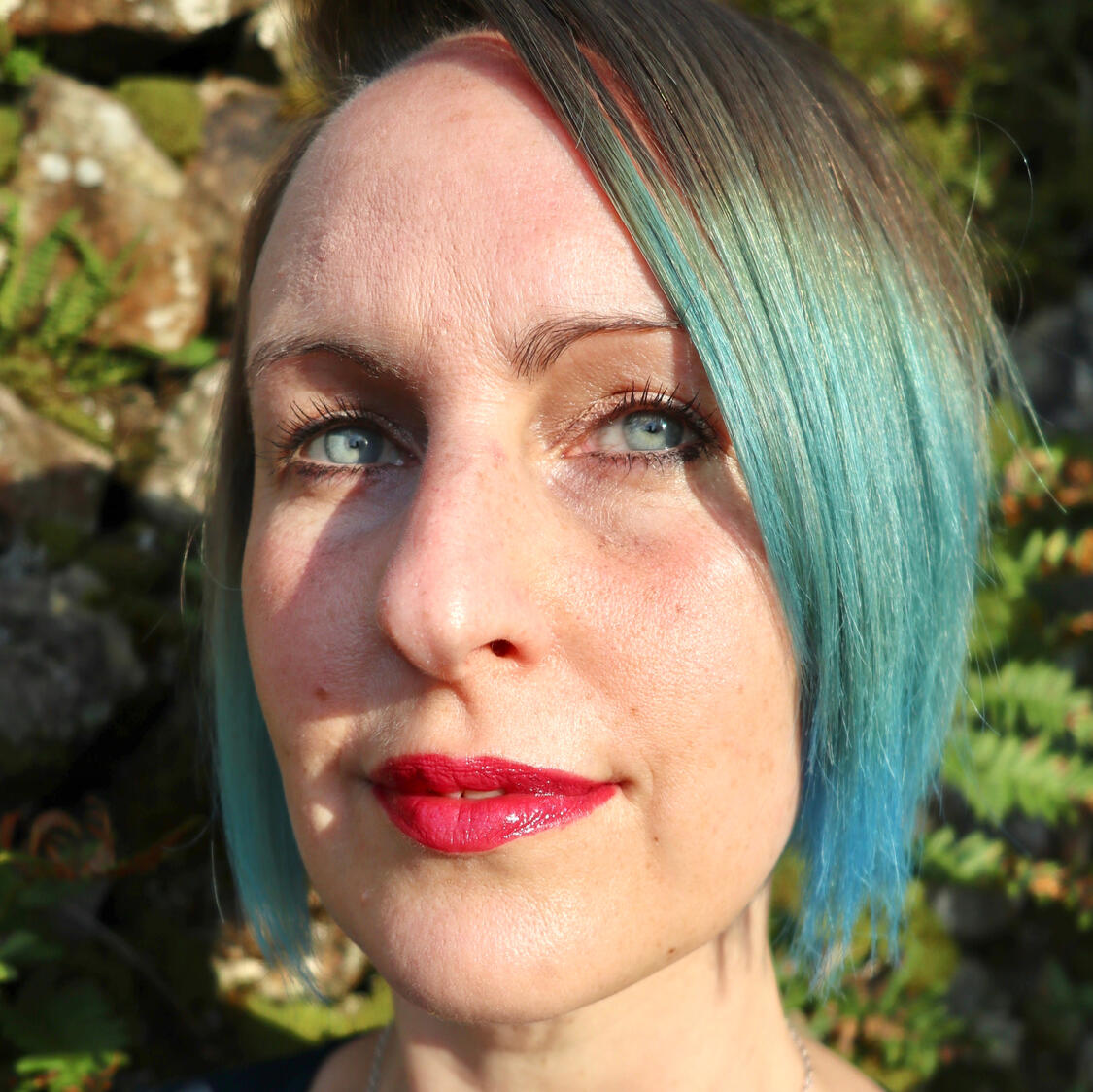
Polly Atkin (FRSL) lives in Cumbria. Her first poetry collection Basic Nest Architecture (Seren, 2017) is followed by Much With Body (Seren, 2021), supported by a 2020 Northern Writers Award and a residency at Cove Park.She has also published three pamphlets: bone song (Aussteiger, 2008), shortlisted for the 2009 Michael Marks Pamphlet Award; Shadow Dispatches (Seren, 2013), winner of the 2012 Mslexia Pamphlet Prize, and With Invisible Rain (New Walk, 2018).Her biography of Dorothy Wordsworth, Recovering Dorothy: The Hidden Life of Dorothy Wordsworth (Saraband, 2021), is the first to focus on Dorothy’s later life and illness.Her doctorate on Romantic legacies and the Lake District was conducted under the AHRC Landscape and Environment project, in collaboration with The Wordsworth Trust and Lancaster University. In 2019, she co-founded the Open Mountain initiative at Kendal Mountain Festival, which seeks to centre voices that are currently at the margins of outdoor, mountain and nature writing. She works as a freelancer from her home in Grasmere, in the English Lake District.Her book Some of Us Just Fall was published by Sceptre (Hachette) in July 2023.
Louis Bailey
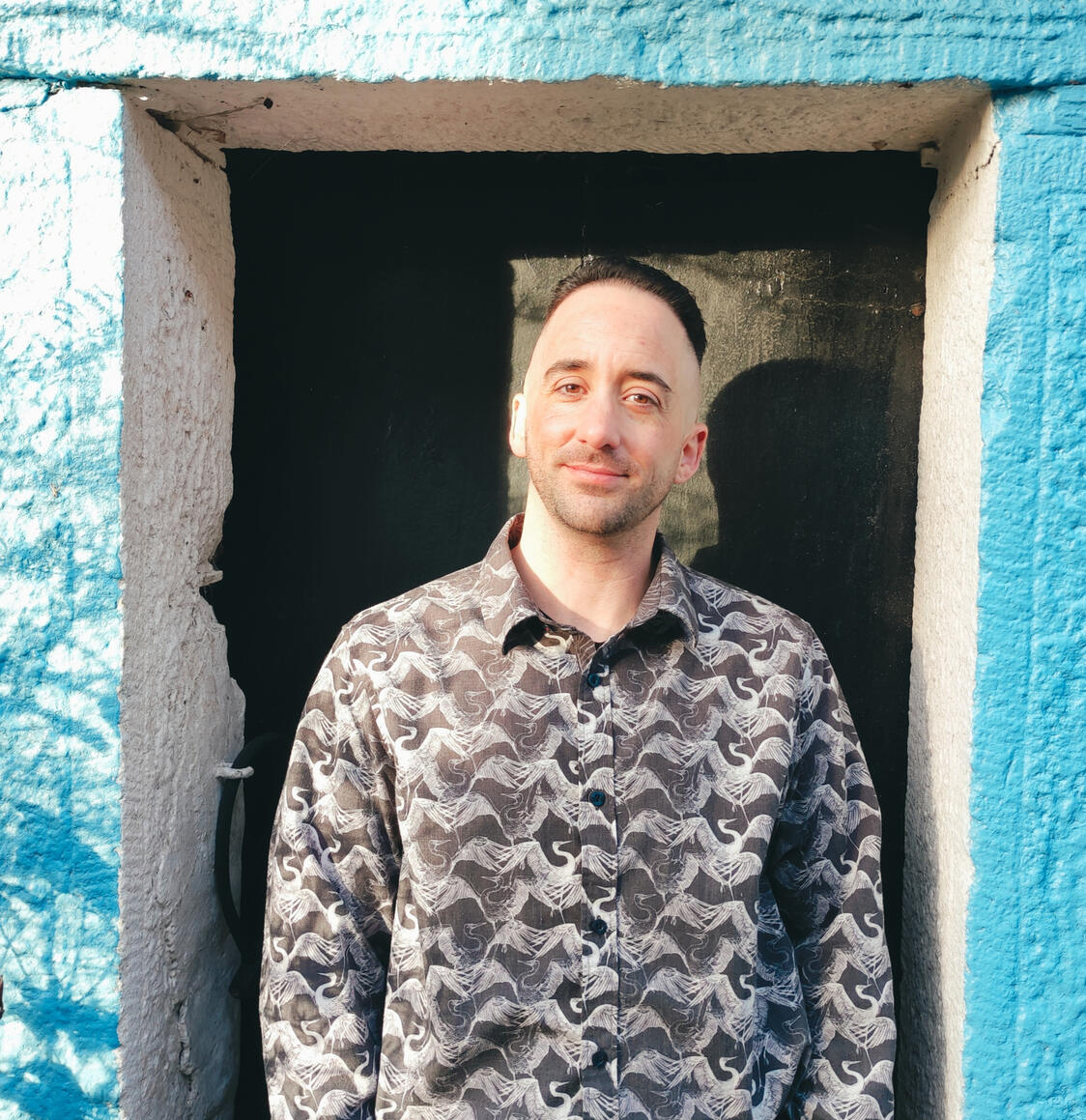
Louis Bailey is a sociologist by training. His academic work explores experiences of trauma, marginalisation, and resistance. This has included articles on bereavement, memorialisation, and difficult deaths (New Review in Hypermedia and Multimedia; Mortality; Mental Health Review); on stigma and minority stress (Routledge, Taylor & Francis); and on social justice (Journal of Interpersonal Violence; Journal of Trauma, Violence, and Abuse).He is currently working on his first book, The Night Run, which was shortlisted for the Nan Shepherd Prize for nature writing. The starting point for The Night Run was Din, a cycle of poetry and prose published by SkearZines in 2020. Recently, he has become fascinated with the notion of the moors as an inherently queer landscape. He began exploring this visually in his mixed-media work Moor Man, which was showcased in the Out in the Shires LGBT Arts Festival in Worcester (2018). An accompanying poem was later published as part of the TransBareAll anthology, ‘Ten Years, Still Here’ (2020). Connected to this, his visual artwork explores elements of folklore, mythology, and moral panics. This includes his mixed-media pieces Stealth, Voice Break, and Bird Boy, which were featured in the exhibition Continuum: Framing Trans Lives at the People’s History Museum, Manchester (2018). His poetry has appeared in several anthologies by Beautiful Dragons Press from 2014-19, and his first poem-film cycle We Rare Things was performed at Salford Transgender Day of Remembrance in 2020.
Laura Basu
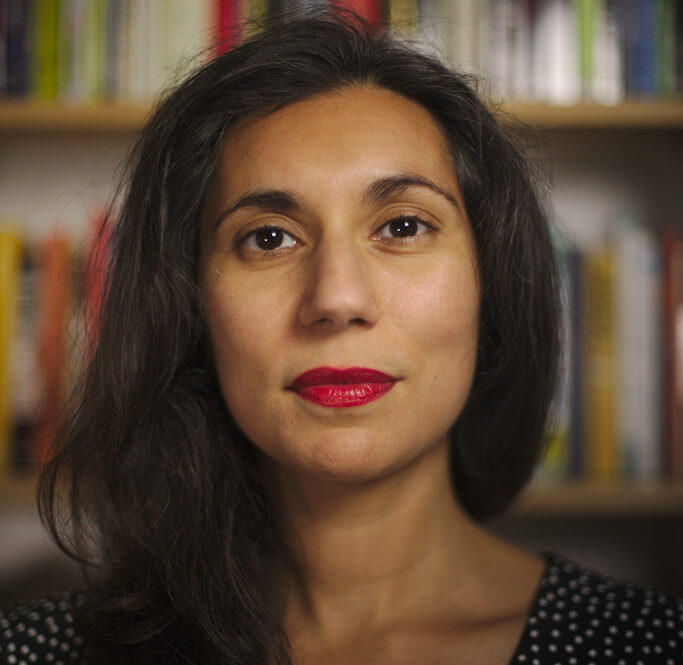
Laura Basu is an academic who writes about love and politics. She is a research fellow at Utrecht University’s Centre for Cultural Inquiry and was formerly openDemocracy’s economics editor.She writes about subjects ranging from Attention Deficit Disorder to racial capitalism; abortion rights to the environmental crisis. Her writing joins deeply intimate experiences with deep structural critique.Laura’s 2018 book Media Amnesia and her edited volume The Media and Austerity are about the media’s role in the 2008 financial collapse and subsequent the years of austerity. Her PhD thesis examined issues of cultural memory, Whiteness and settler colonialism through the lens of Australian outlaw Ned Kelly, and became the book Ned Kelly as Memory Dispositif.Originally from Newham, east London, Laura lives with her husband and baby daughter and splits her time between the Netherlands and UK.
Victoria Bennett
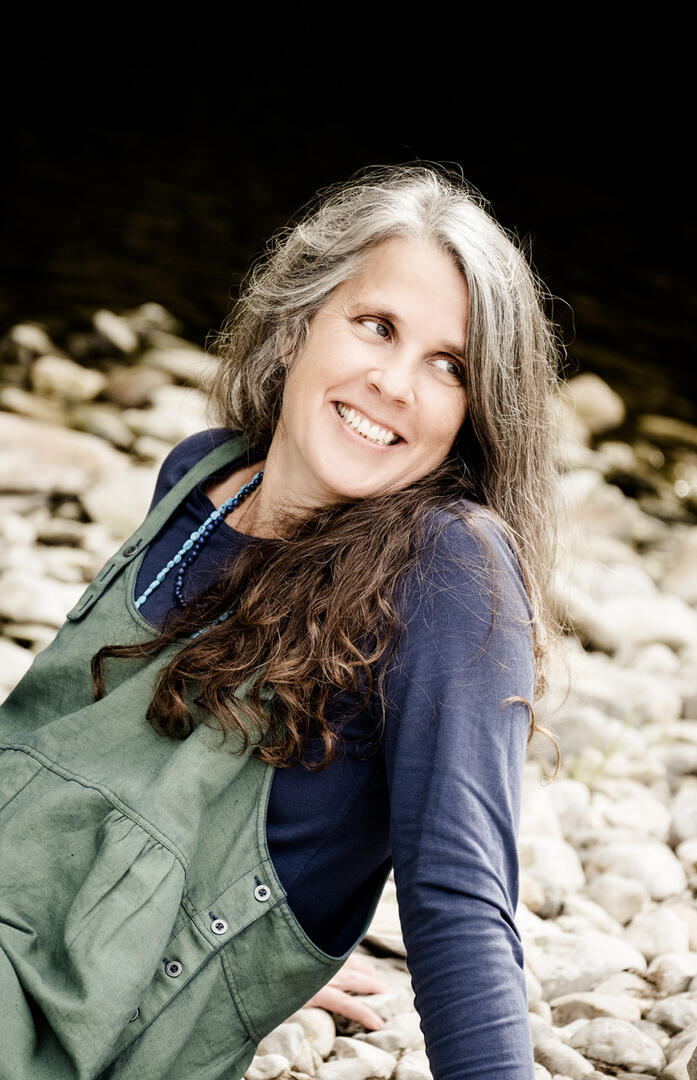
Victoria Bennett is an award-winning disabled poet, author, and full-time carer. Her debut memoir, All My Wild Mothers (John Murray Press, 2023) won the Nautilus International Award for Memoir and also won the Northern Debut Award, was shortlisted for the Lakeland Book Awards and the People’s Book Awards and longlisted for the Nan Shepherd Prize. Intertwining themes of grief, motherhood, and rewilding, it is a lyrical and intimate exploration of family, loss and belonging, and a celebration of the beauty that can grow in broken ground.In 1999, Victoria founded Wild Women Press — a space to explore, create, dream, question, grow and and disrupt. She compiled and edited the online Wild Woman Web project from 2018 — 2023 and set up the Wild Women Writers’ Salons in 2023, an online series of inspiring monthly salon conversations between authors.With over 30 years of experience facilitating creative projects, and building creative communities, Victoria has worked across various community-based initiatives, and taught creative writing at Lancaster University, where she also gained her MA in Poetry.Originally from Cumbria, she now lives in Orkney with her family, close to where the wild things are.
Meg Bertera-Berwick
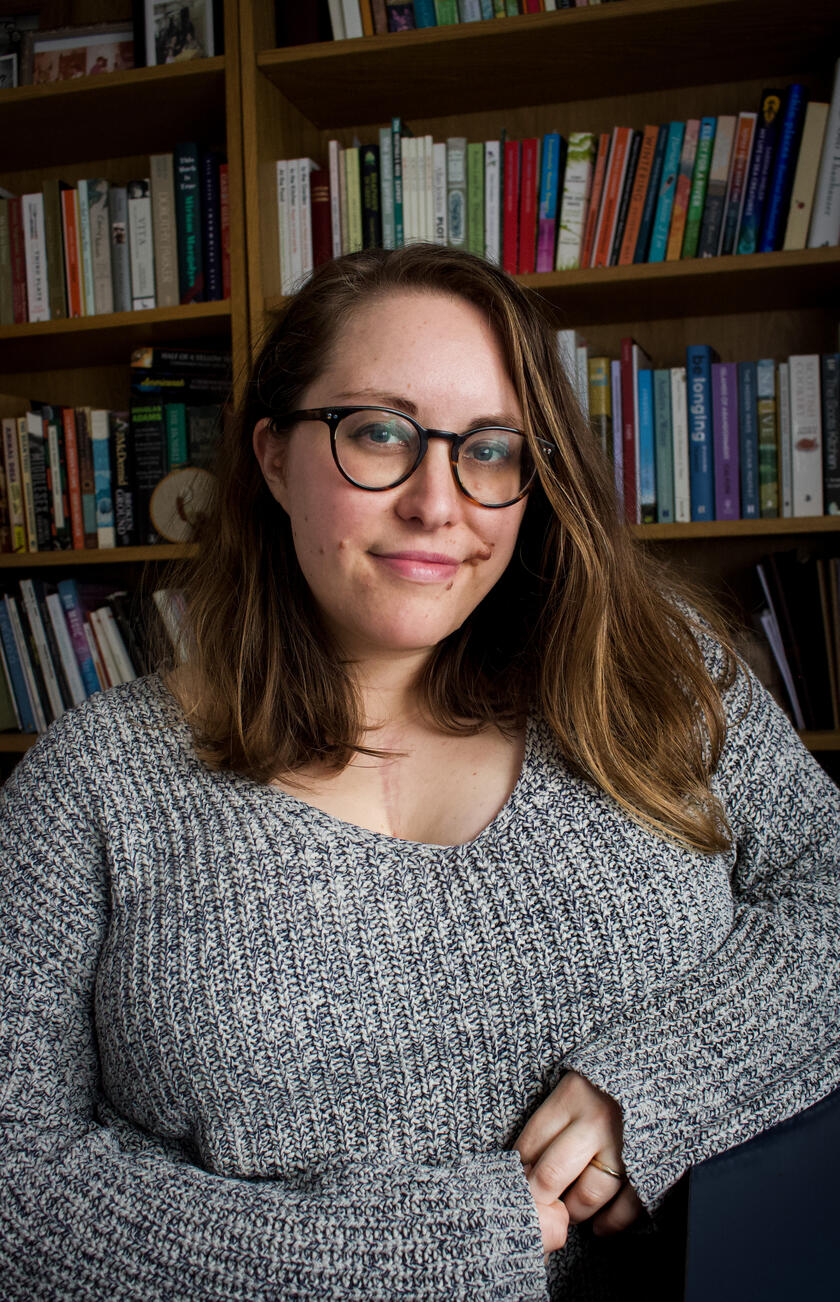
Meg Bertera-Berwick is an American-born writer based in Glasgow. Her work focuses on gardening and intimacy with land as an interface between human and non-human memory. Through archaeology, environmental history, and the liminal places between agriculture and horticulture, she explores how place shapes and is shaped by human and more than human relationships through many modes of time.In 2019, she received her PhD in criminology from the University of Glasgow, exploring neo-colonial and decolonial processes in the cultural heritage sector’s relationship with the illicit antiquities trade. Since shifting into non-academic writing, her work has appeared in Vittles, Radicle, and Potluck Zine. In 2023, the proposal for her book-in-progress Lang was shortlisted for the Nan Shepherd Prize. In 2024, her essay The Kailyards was shortlisted for the biennial Nature Chronicles Prize and published in the Nature Chronicles Anthology Volume 2. In a twice-monthly newsletter, pod by pod, she blends immediate reflections on the personal and political intersections present in the garden with histories of plant relationships, agricultural folklore, and archaeobotany in the British Isles.Her debut narrative non-fiction book Lang weaves the little-known archaeology, environmental history, and rural past of the Glasgow neighbourhood of Langside with her experience being undiagnosed autistic.
Fiona Black
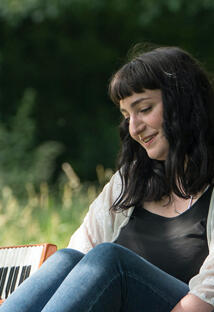
From the Highland village of Evanton, Fiona Black is an artist, musician, writer, researcher, history geek and lover of stories.She creates work inspired by Scotland's history, culture, and landscape, particularly that involving women. She tours with international folk band The Outside Track and is currently creating a series of lino prints of Scottish women from history.While completing an MLitt in Highlands and Islands Culture, Fiona met 18th-century writer Sarah Murray through reading a mass of historic travel writers in Scotland. She stood out as one of the first woman writers to write a guide of Scotland for others to follow in her intrepid footsteps (with or without the help of their maid and manservant).
Fiona was longlisted for the 2019 Nan Shepherd Prize for Nature Writing. Since then, she has been slowly working on writing a travelogue retracing Sarah's journey through the current landscape.
Gill Booles
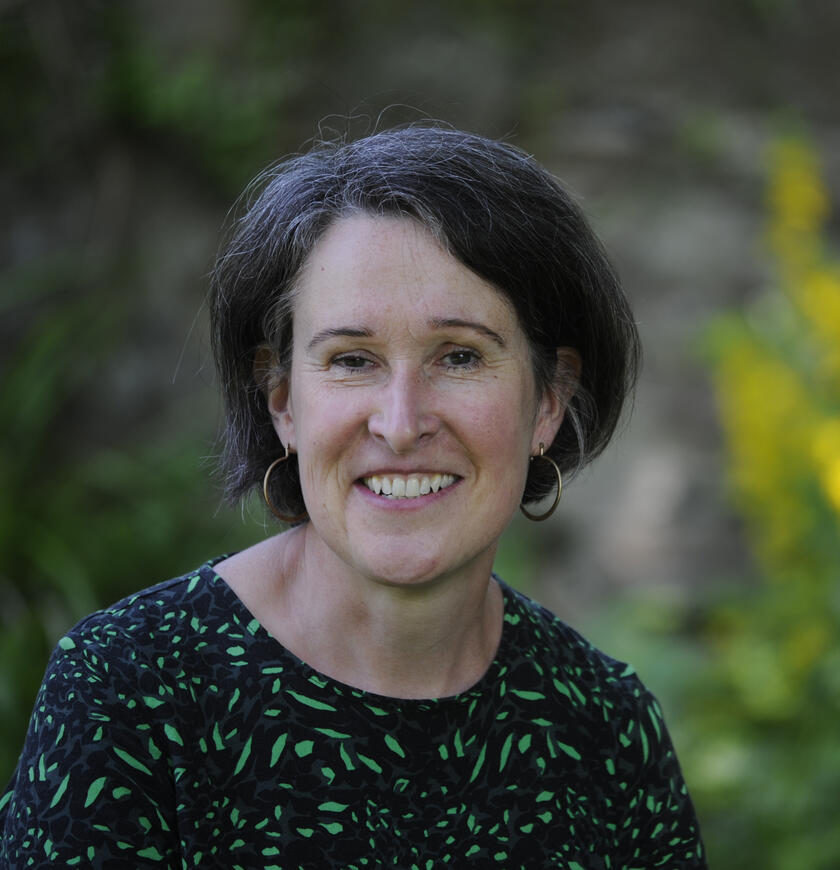
Gill Booles is a copywriter specialising in emerging tech such as blockchain-based digital currencies, quantum computing, robotics, and extended reality. She began writing fiction during the COVID lockdowns of 2020.Outside of writing, Gill plays in chess club tournaments for Sandy Bell’s in Edinburgh, exercises on an anti-gravity treadmill and perseveres with riding therapy sessions despite her ignorance and mistrust of horses. She lives and works in Inveresk in East Lothian.She couldn’t find any book or film with a positive depiction of Primary Progressive Multiple Sclerosis, so she wrote the book she would have wanted to read on being diagnosed with the chronic condition in 2019.
Jenny Chamarette
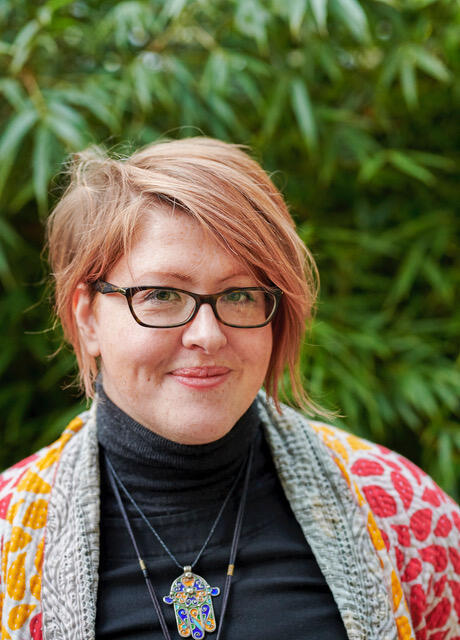
Jenny Chamarette is a writer, artist/curator and mentor who for the last 17 years has worked in higher education, researching and teaching gender and sexuality in film, contemporary art and visual culture. Jenny has lived for many years with chronic illness and has found writing and nature connection to be sources of truth in troubling times.Jenny's public words have appeared in MAI Journal, Another Gaze, Club des Femmes Culture Club, the LUX, Litro Magazine, Sight & Sound and recently in an artist’s book by the art collective the Hildegard von Bingen Society for Gardening Companions.Jenny's nature memoir Q is for Garden was shortlisted for the Nature Chronicles biennial prize 2021/2, the Fitzcarraldo Essay Prize 2021, and longlisted for the Nan Shepherd Prize 2021. An essay extract from Q is for Garden was recently published by Saraband.
Rachel Charlton-Dailey
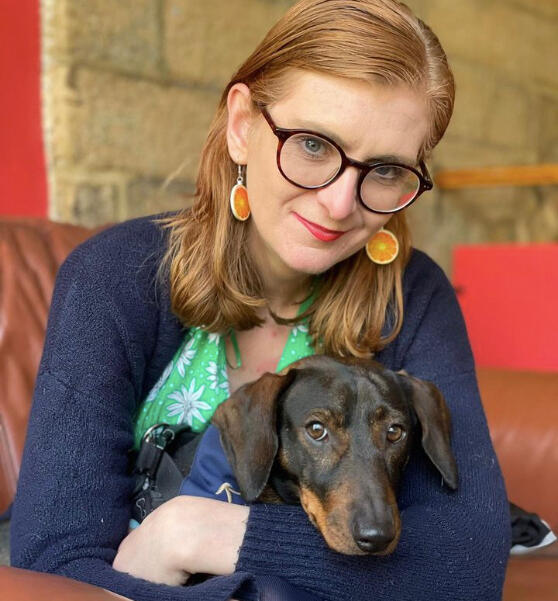
Rachel Charlton-Dailey is an award-winning journalist editor and disability activist. They regularly write for sites outlets such as Glamour, Verywell Health, Stylist and The Independent as well as appearing on many others such as The Guardian, Digital Spy, Big Issue, Healthline and HuffPost.In the summer of 2022, she guest edited The Daily Mirror's groundbreaking series Disabled Britain, which highlighted the reality of disabled life, written entirely by disabled people. She now writes a weekly disability rights column with The Mirror and works closely with them and other organisations to better represent disabled people in media.After using their platform to raise awareness of issues that affect disabled people, Rachel wanted to help others find their voice. Seeing how difficult it was to get disabled stories published in mainstream media inspired Rachel founded The Unwritten, where they are also editor-in-chief. The Unwritten is a publication for disabled people to share their authentic experiences without the trauma or inspirational lens of mainstream media. In 2021 she won the Women in Journalism Georgina Henry award at The British Journalism Awards for creating The Unwritten.Rachel lives on the North-East English coast with their sausage dog, Rusty.
Mona Dash
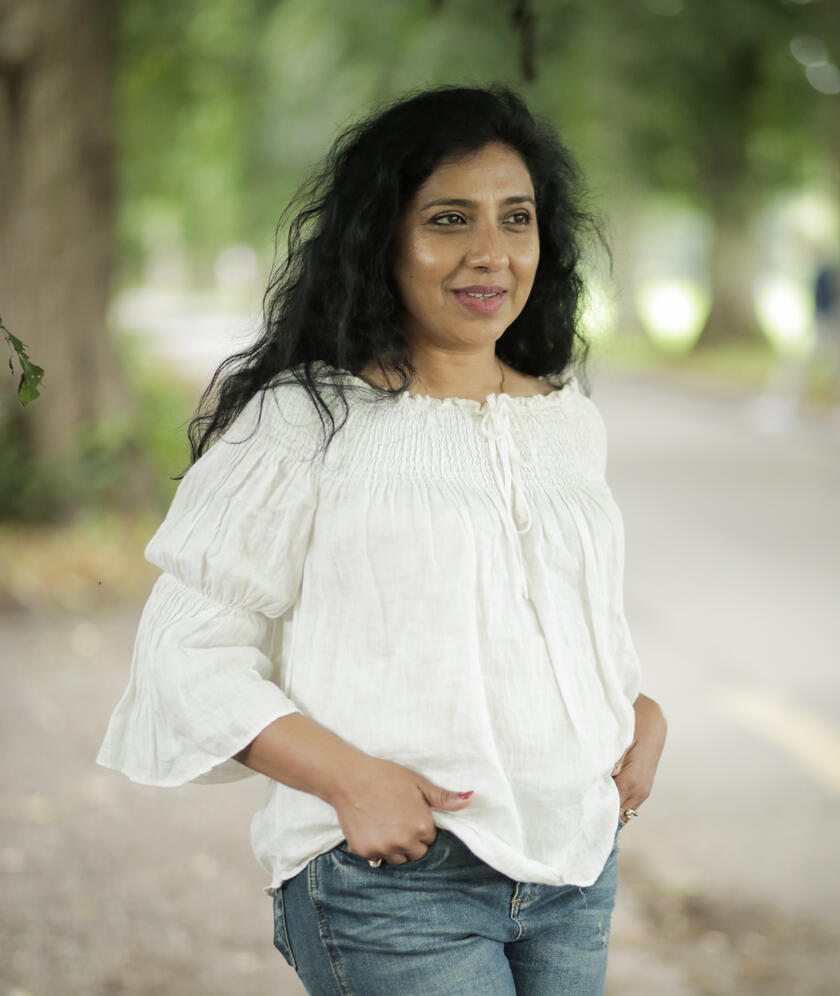
Mona Dash is the author of A Roll of the Dice: A Story of Loss, Love and Genetics (Linen Press, 2019) winner of the Eyelands International Book Awards for memoir, and very recently, Let Us Look Elsewhere (Dahlia Books, June ’21). Her short story Twenty-Five Years was commissioned by BBC Radio 4 Short Works, a long running short story series. Her other published books are two collections of poetry A Certain Way and Dawn-drops, and a novel Untamed Heart. Her work has been listed in leading competitions such as Novel London 20, SI Leeds Literary award, Fish, Bath, Bristol, Leicester Writes and Asian Writer, and widely published in international journals and more than twenty-five anthologies. A graduate in Telecoms Engineering, she holds an MBA, and also a Masters in Creative Writing (with distinction). She works in a global tech company. Born and brought up in India, she lives in London.
Joe Donnelly
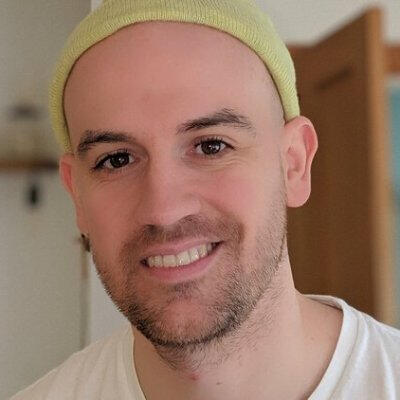
Joe Donnelly is a Glaswegian journalist, editor, and writer, and is a video games enthusiast and mental health advocate. He has written about both of those subjects' complex intersections for The Guardian, New Statesman, VICE, and many more, and is a regular expert contributor to BBC radio and television.A firm believer in the transformative power of video games, Joe's debut narrative non-fiction book Checkpoint, published by 404 Ink, tells his own mental health story through the lens of gaming, alongside many other players, industry professionals and mental health experts. In 2021, Checkpoint was shortlisted for Scottish Non-Fiction Book of the Year by the Saltire Society. As a video game devotee, and an ex-plumber and gas fitter, Joe will never waste an opportunity to compare himself to Super Mario.
Samantha Dooey-Miles
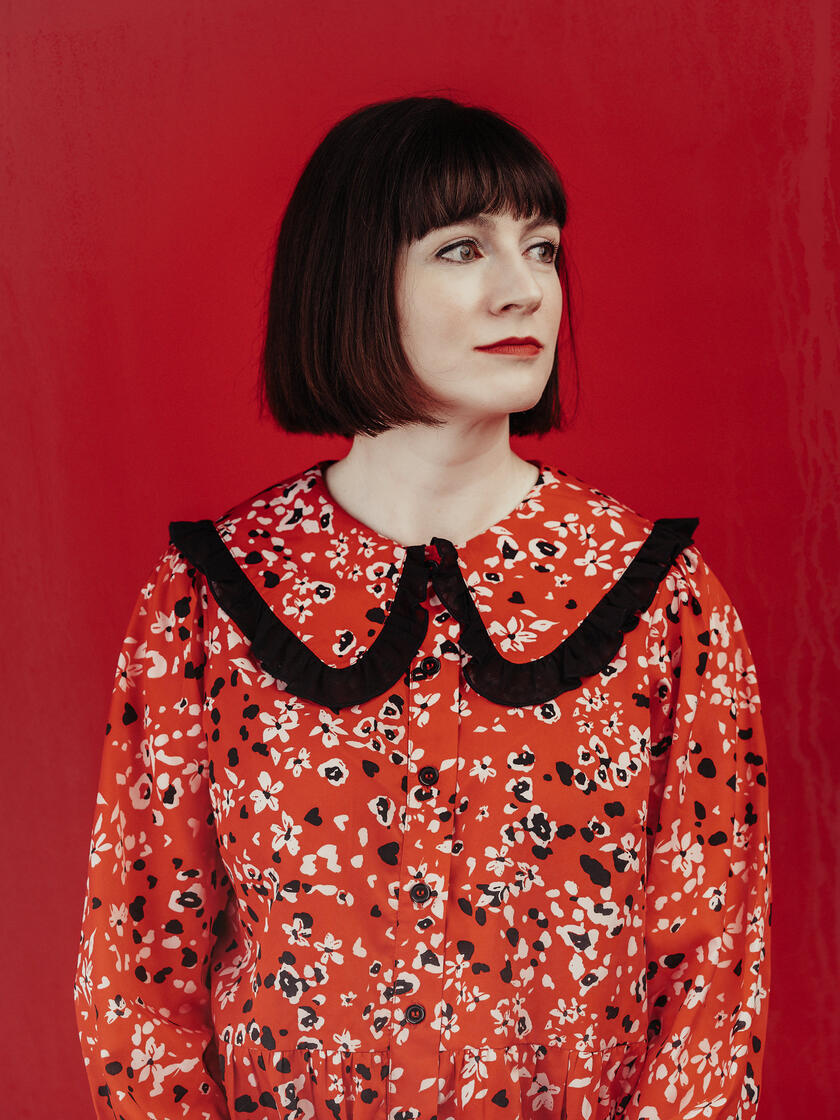
Samantha Dooey-Miles writes fiction that explores the significance seemingly small moments can hold and how characters react in times of high emotion. She is particularly interested in shame, embarrassment, and female rage.Her stories have been published in Gutter, Postbox, Severine, and Razur Cuts amongst others and her monologues have been performed by Slackline Productions and Coronavirus Theatre Club. In 2021 she won a Scottish Book Trust New Writer Award.
Ashley Douglas
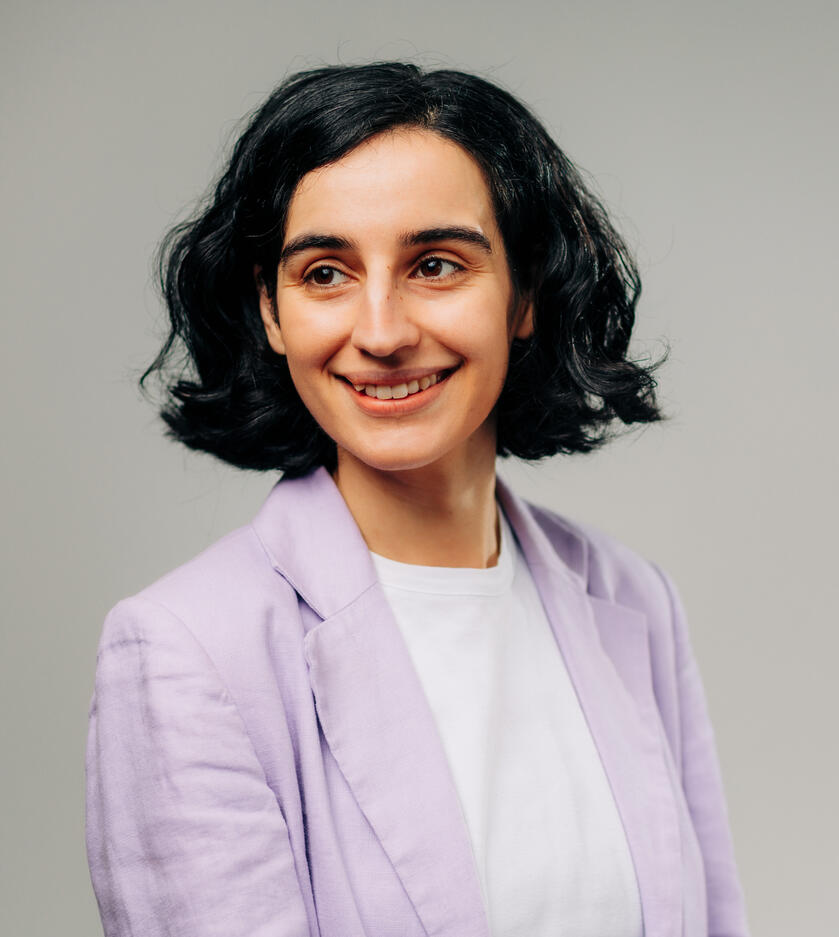
Ashley Douglas is a multi-lingual researcher, writer, translator and consultant, specialising in LGBT+ history and the Scots language. She is driven by telling the stories of and representing entire groups who have traditionally been unfairly excluded from Scottish history, yet who have always been part of it, such as women, LGBT+ people and people of colour.Ashley has worked with and written for a range of national heritage, literary and educational organisations, including the National Library of Scotland, Historic Environment Scotland, Time for Inclusive Education, the Scottish National Portrait Gallery, and the British Library. Her current work focuses on Marie Maitland, a remarkable Scottish woman who penned explicitly lesbian love poetry in the 1500s, making her one of the earliest known authors of lesbian love poetry since Sappho herself - and an icon of not just Scotland’s, but the world's, LGBT+ history. And yet, until very recently, Marie was virtually unheard of.In 2021, Ashley first wrote about Marie Maitland's significance for the National Library of Scotland. Since then, she has worked tirelessly to give Marie the recognition she deserves. Today, an imagined portrait of Marie Maitland, commissioned by Ashley, now hangs alongside James VI and his contemporaries in the Scottish National Portrait Gallery, and her poetry is taught about in Scottish schools, through resources developed by Ashley in collaboration with Time for Inclusive Education.Ashley is currently working on her first book, a narrative non-fiction biography of Marie Maitland.
Stuart Eggleton
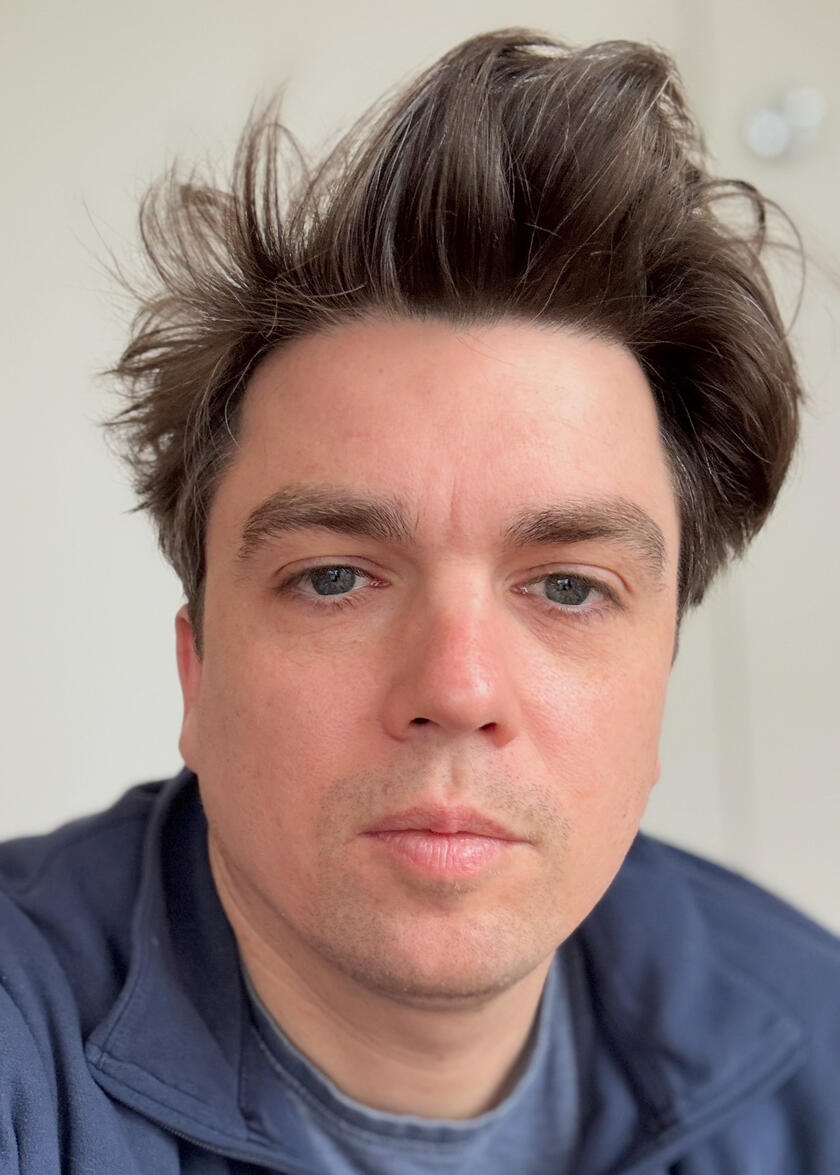
Stuart Eggleton is a writer and playwright. His play Solomon has been performed at venues including Camden People’s Theatre, King’s College Cambridge, The Royal Academy of Arts, and JW3. His second play, The Dreams of Youth, has been staged at Stanley Arts and the Marylebone Theatre.His work has been featured in Butt magazine and Anthology of Rage (Pilot Press), and supported by Arts Council England and the Society of Authors.Stuart is the founder and director of Furzedown Literary Festival and Queer LitFest, both based in South London.He is currently working on a narrative non-fiction book about the novelist Angus Wilson and his partner Tony Garrett.
Laura Elliott
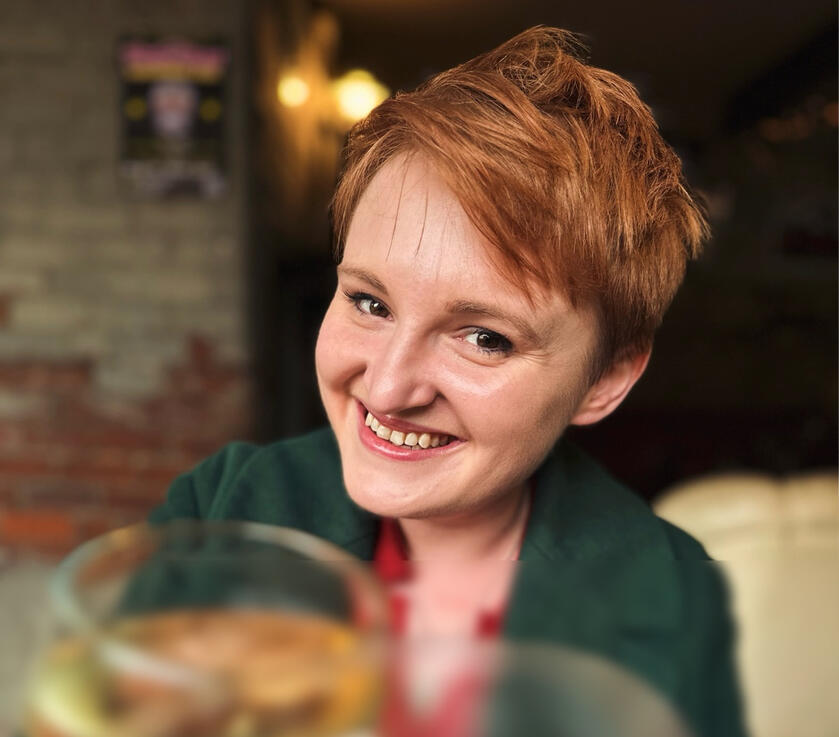
Laura Elliott is a writer, journalist, and disability campaigner from the north of England.Her articles on disability and politics have been published in The Guardian, The Metro, ByLine Times and others, and her creative non-fiction and essays can be found in anthologies by Boudicca Press, Monstrous Regiment, and in Hachette Kids' Letters from Lockdown charity collection.Her first novel, Sleepless, is a speculative "disability horror" about the dark sides of medicine, capitalism, and the monsters society might make of us.She lives in Sheffield with her partner, James, and their two feline overseers, Catticus Finch and Hercule Purrot.
Soula Emmanuel
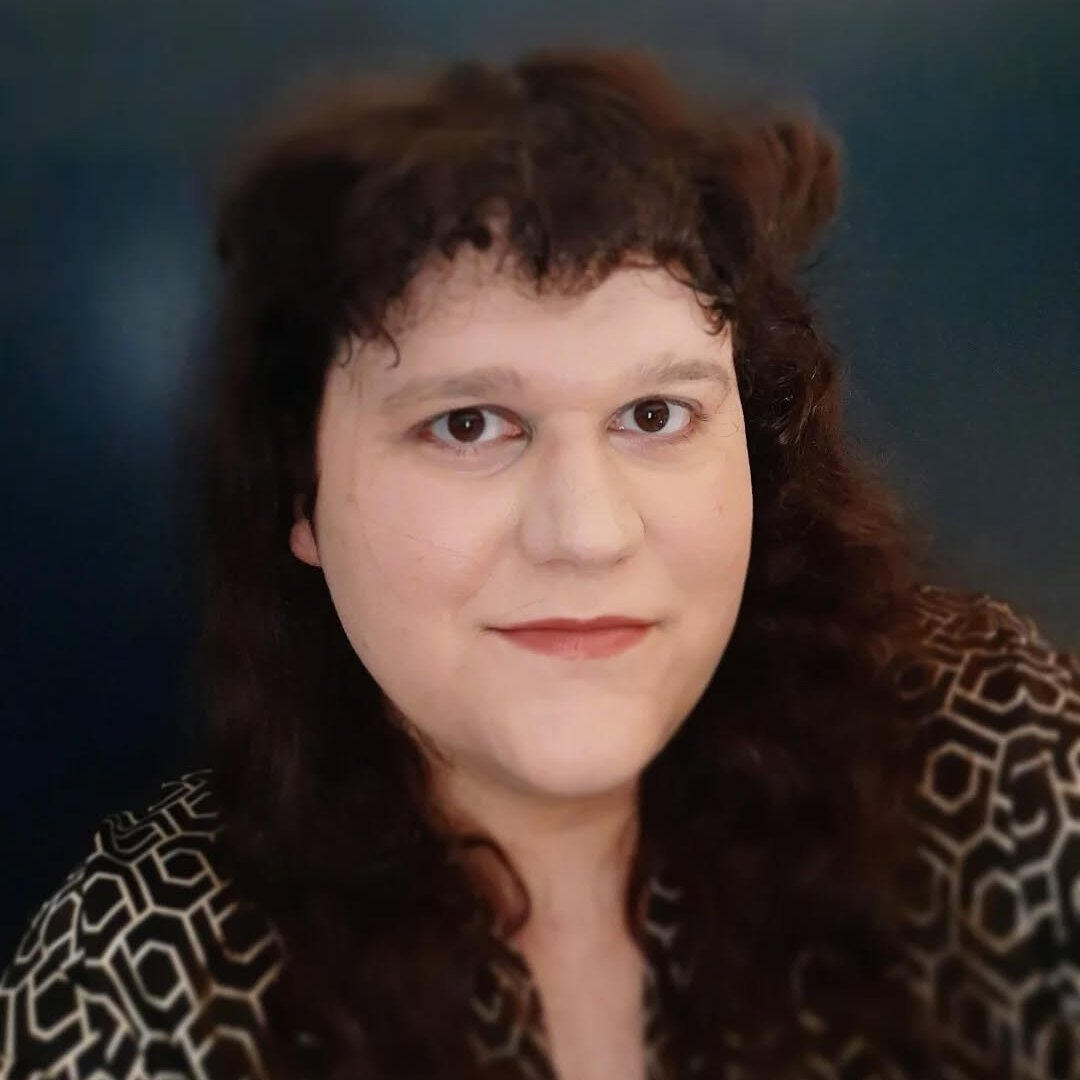
Soula Emmanuel was born in Dublin to an Irish mother and a Greek father. She studied at universities in Ireland and Sweden, emerging with a master's in demography. Her debut novel Wild Geese was published by Footnote Press (UK) and the Feminist Press (US) in 2023. In 2024, it won the Lambda Literary Award for Transgender Fiction, and the Gordon Bowker Volcano Prize at the UK Society of Authors Awards. She has had work dramatized by BBC Radio 4. She currently lives on Ireland's east coast.
Harry Josephine Giles
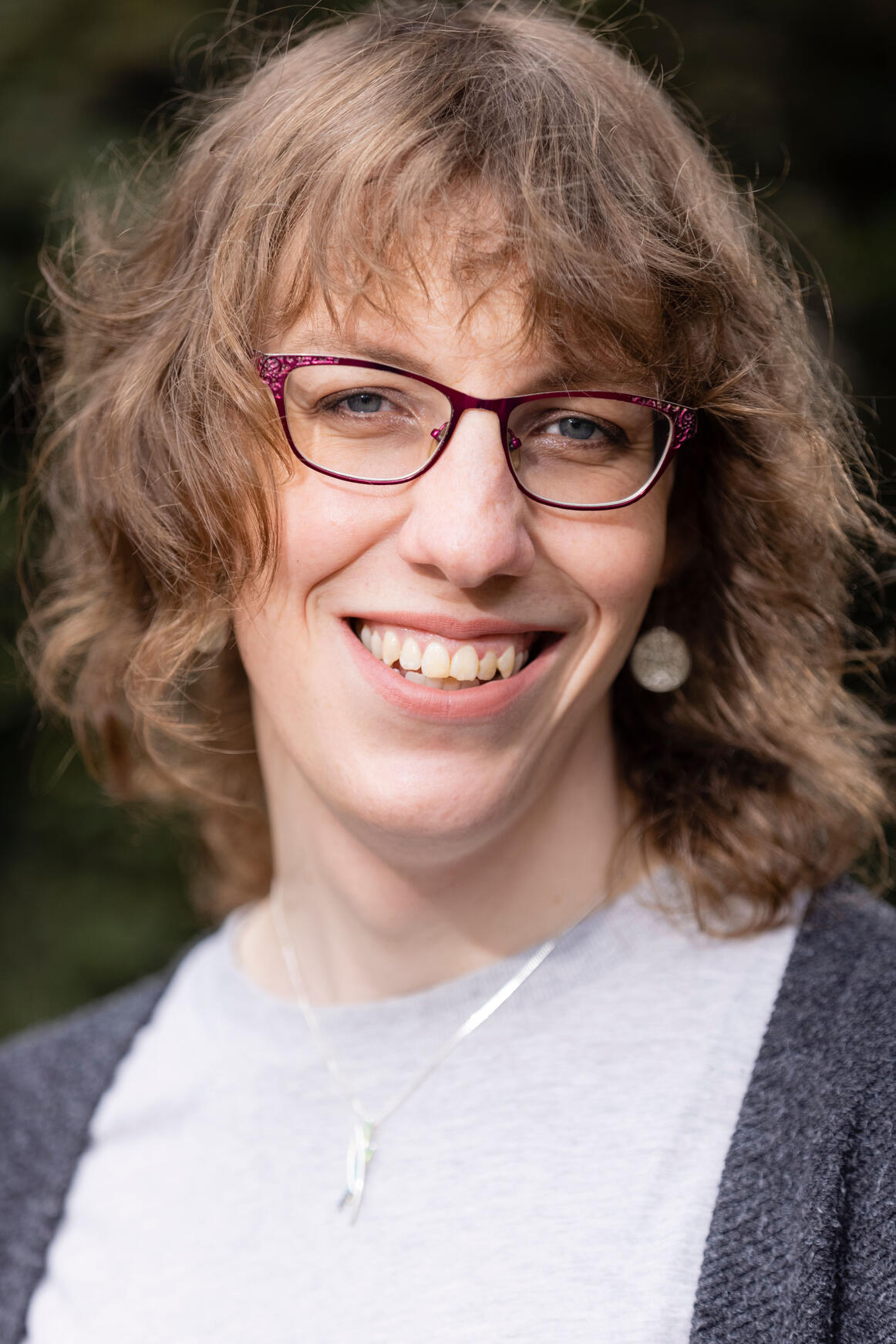
Harry Josephine Giles is a writer and performer from Orkney, now living in Leith. She has lived on four islands, each larger than the last. She has a MA in Theatre Directing from East 15 Acting School and a PhD in Creative Writing from the University of Stirling. Harry Josephine's work generally happens in the crunchy places where performance and politics get muddled up.As a poet, Harry Josephine has toured globally, given feature sets at venues from the Bowery Poetry Club to Edinburgh’s Hogmanay, performed at festivals from the New Zealand Writers Festival to Montreal’s Metropolis Bleu. Her verse novel Deep Wheel Orcadia was published by Picador in October 2021 and won the 2022 Arthur C. Clarke Award for science fiction book of the year. Her poetry collections — Tonguit (Freight Books 2015) and The Games (Out-Spoken Press 2018) — were shortlisted for the Edwin Morgan Poetry Award (twice), the Forward Prize for Best First Collection, and the Saltire Poetry Book of the Year.As a theatre artist, Harry Josephine has been featured in the SPILL National Platform, and at festivals including to Forest Fringe (UK), NTI (Latvia), Verb Festival (Aotearoa) and Teszt (Romania). Her one-to-one show What We Owe was listed in the Guardian’s “Best of the Edinburgh Fringe” round-up – in the “But is it art?” section. Her multimedia poetry show Drone debuted in the Made in Scotland Showcase at the 2019 Edinburgh Fringe and toured internationally.
CL Hellisen
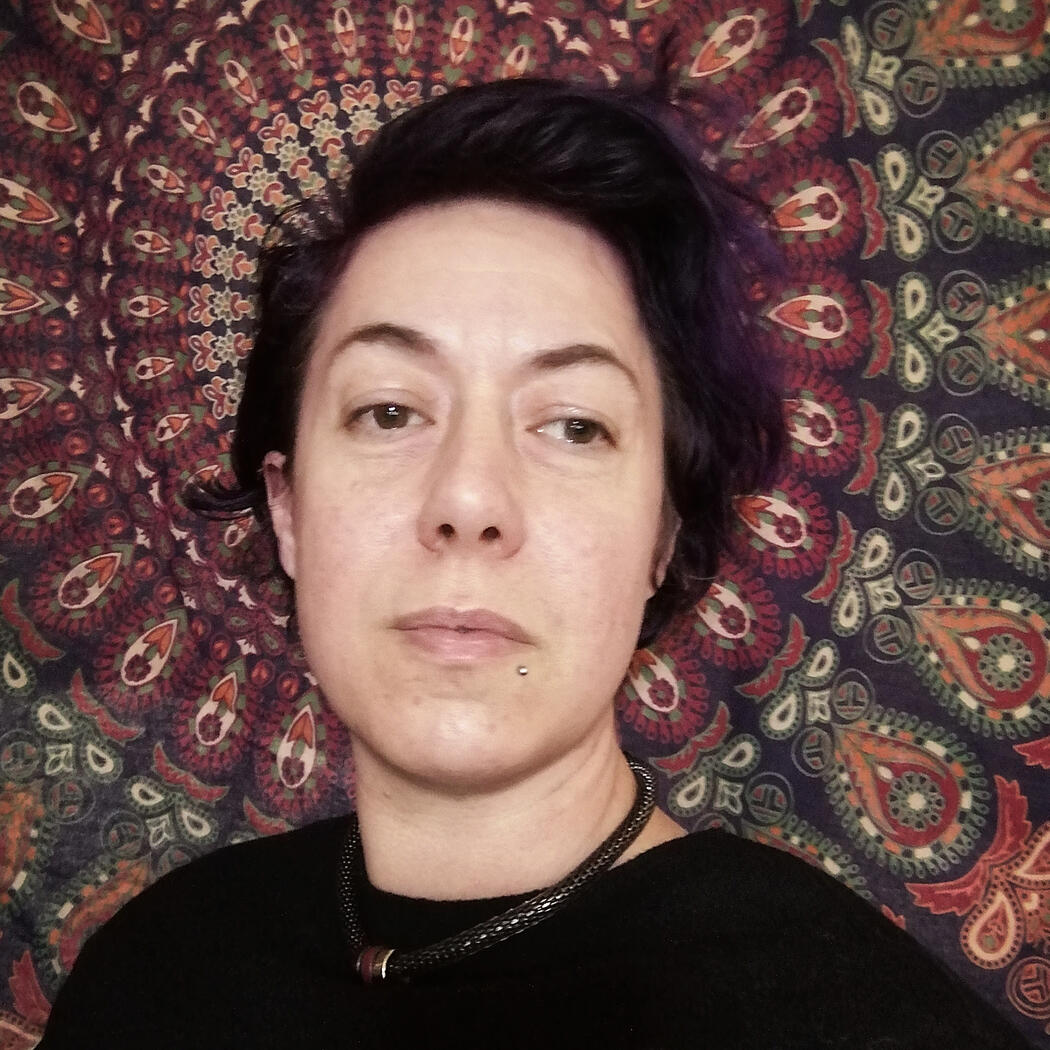
CL Hellisen writes weird, lush speculative fiction with mercurial characters. Originally from South Africa, they now live in Scotland and spend way too much time watching figure skating when they should be walking their dog.Under the name Cat Hellisen they have published nine novels, and have short stories and poems that have appeared in the Magazine of Fantasy and Science Fiction, Apex, Tor, and Beneath Ceaseless Skies. They won the 2015 Short Story Day Africa with their story The Worme Bridge.
Lindsay Johnstone
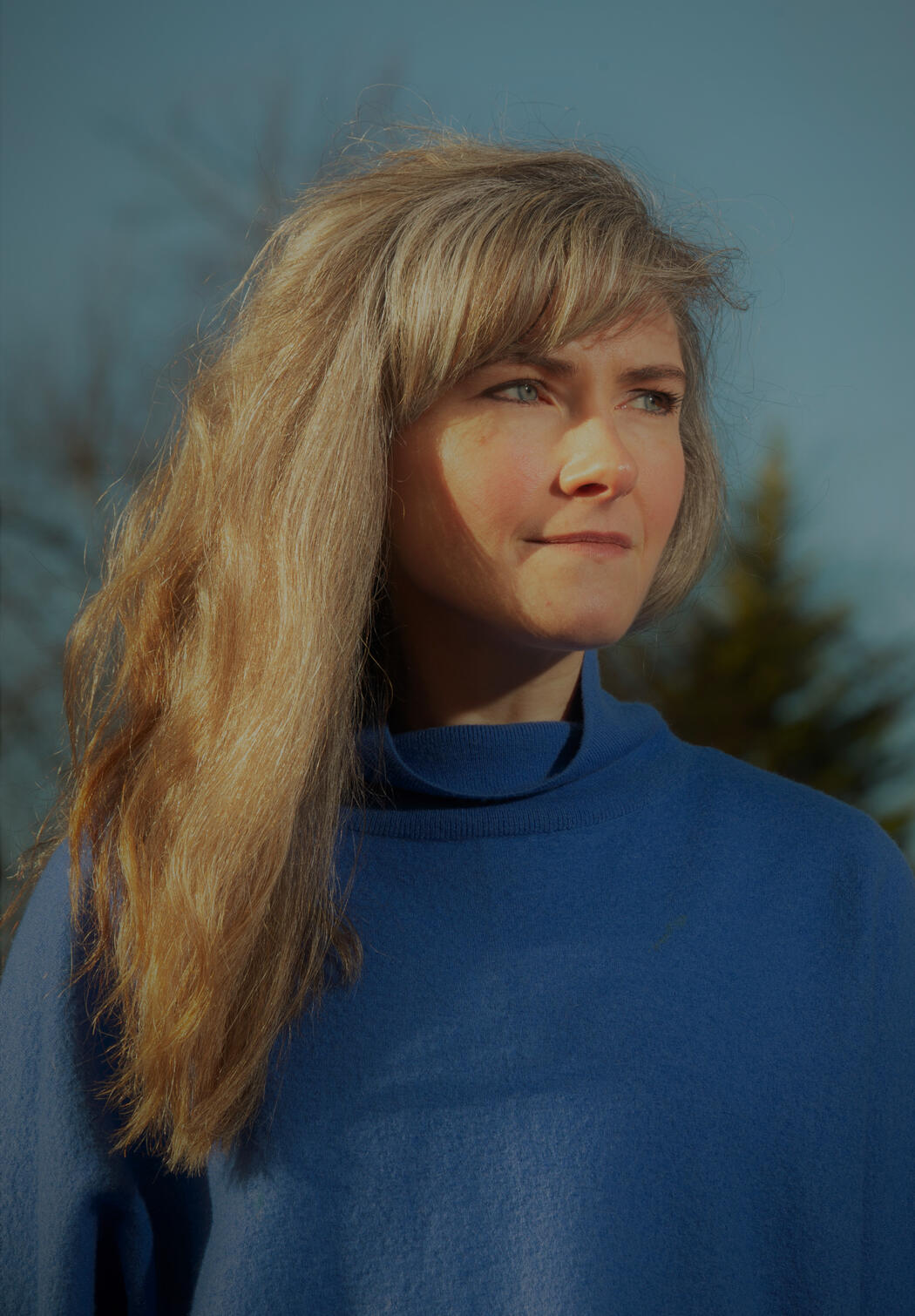
Lindsay Johnstone is a writer, literary critic and creative writing facilitator. She is the author of one memoir – Held in Mind – about breaking the cycle of intergenerational maternal trauma and was supported by ASLA and Creative Scotland’s emerging writers’ programme, Our Voices, towards the completion of the manuscript. She won the John Byrne Award in 2023 for ‘Edges,’ an excerpt from this memoir, and was shortlisted for the Writers’ Award at the Scottish Mental Health Arts Festival in 2022 with another excerpt. She is currently working on her first novel and a narrative non-fiction book on premature perimenopause.She is a Substack Bestseller with her publication, ‘What Now? with Lindsay Johnstone, which is currently charting 39th globally in the Parenting category. Two of her recent articles achieved the global #1 most-read post. She has readers across 54 countries and 46 US states, and hosts her expressive writing courses through her publication.Lindsay’s interviews and reviews of memoir and poetry have been published by Glasgow Review of Books. She is a judge in the Scots category for the 2025 Scottish Book Trust New Writers’ Award and is part of the cohort embarking upon Arvon’s first Advanced Writing Programme for 2024-26. She is a regular voice and face on BBC news, comment and lifestyle programmes including Reporting Scotland and Radio 5 Live, discussing a range of issues including parenting, mental health and education. She works at Scottish Book Trust – Scotland’s national literacy charity – and lives in Glasgow with family and a menagerie of pets. In a former life, Lindsay was a high school teacher of English and wrote for The Herald, BBC Bitesize and BBC Learning Zone. She also founded Garnethill Women’s Collective.
Louise Kenward
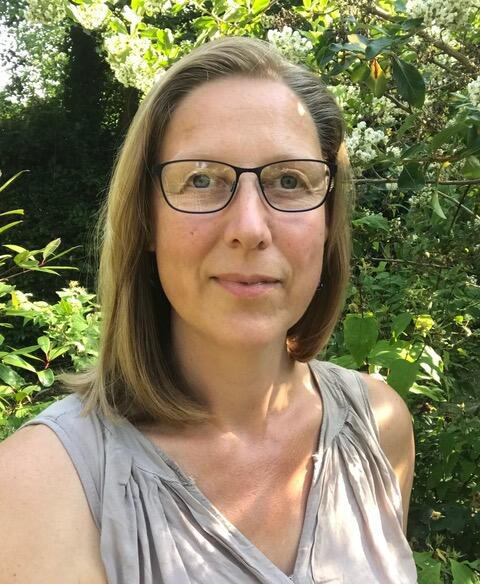
Louise Kenward is a writer, artist and psychologist. Her writing has featured in Women on Nature, The Polyphony, The Clearing and Radio 3 (Landscapes of Recovery). In 2020, she set up ZebraPsych with the aim of raising awareness of energy limiting chronic illness, and she co-produced the anthology Disturbing the Body (Boudicca). Louise was Writer in Residence with Sussex Wildlife Trust (2021–2022) and is a postgraduate researcher at the Centre for Place Writing, Manchester Metropolitan University.Louise is the editor of Moving Mountains: Writing Nature through Illness and Disability, a first-of-its-kind anthology of nature writing by authors living with chronic illness and physical disability out from Footnote Press in October 2023.
Elizabeth Lewis Williams
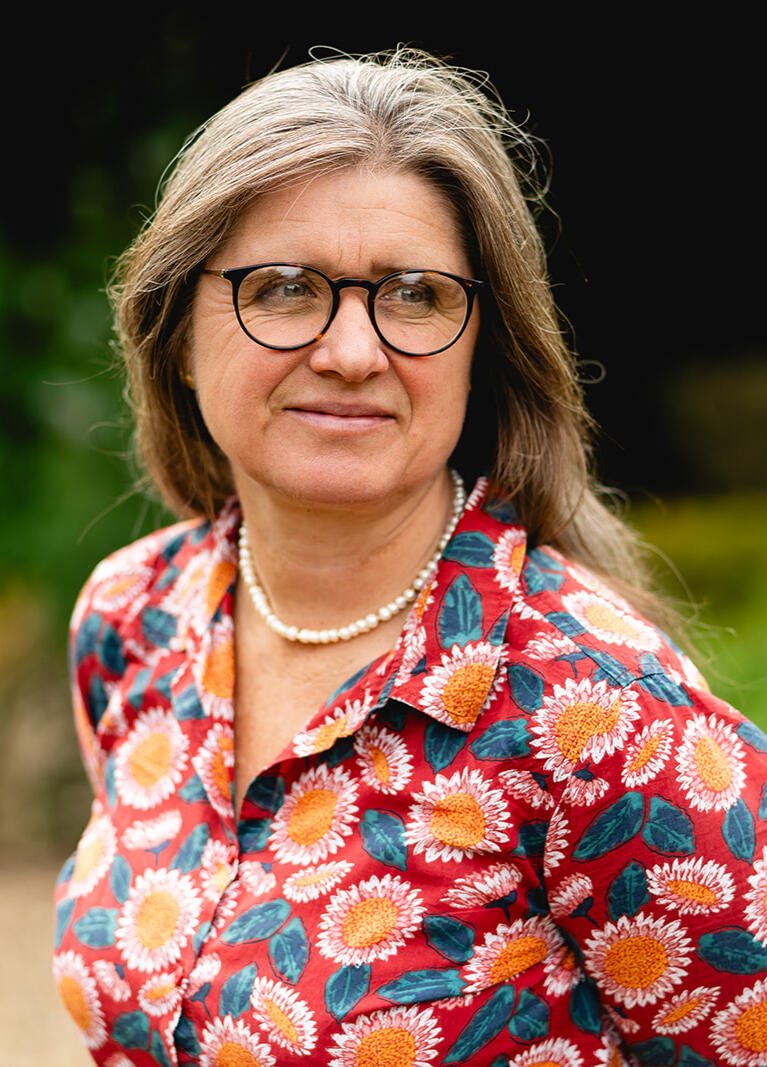
Elizabeth Lewis Williams is a Norwich based author and educator. Before embarking on an MA and a PhD in creative and critical writing at the University of East Anglia, she was a teacher for over twenty years in schools as diverse as Colegio Britanico de Cartagena, Colombia, and Charterhouse, England.Her PhD thesis, A Magnetic Observatory explores poetic and scientific measure in Antarctic poetry, and her research interests have increasingly centred on Antarctica and climate change. She has worked on a variety of creative projects with school and PhD students around the development and presentation of different climate narratives.Her work has appeared in a number of journals, and she has published two books of poetry, Erebus and Deception Island. The latter was shortlisted for the East Anglian Poetry Book of the Year and made into a poetry/music/film experience in a replica Antarctic hut, produced in collaboration with Story Machine. She is currently working on a multi-media art and science project which aims to put the ecosystems of Amazonia and Antarctica in dialogue to demonstrate that the connections between them are central to the healthy function of our planet.
Wenying Li
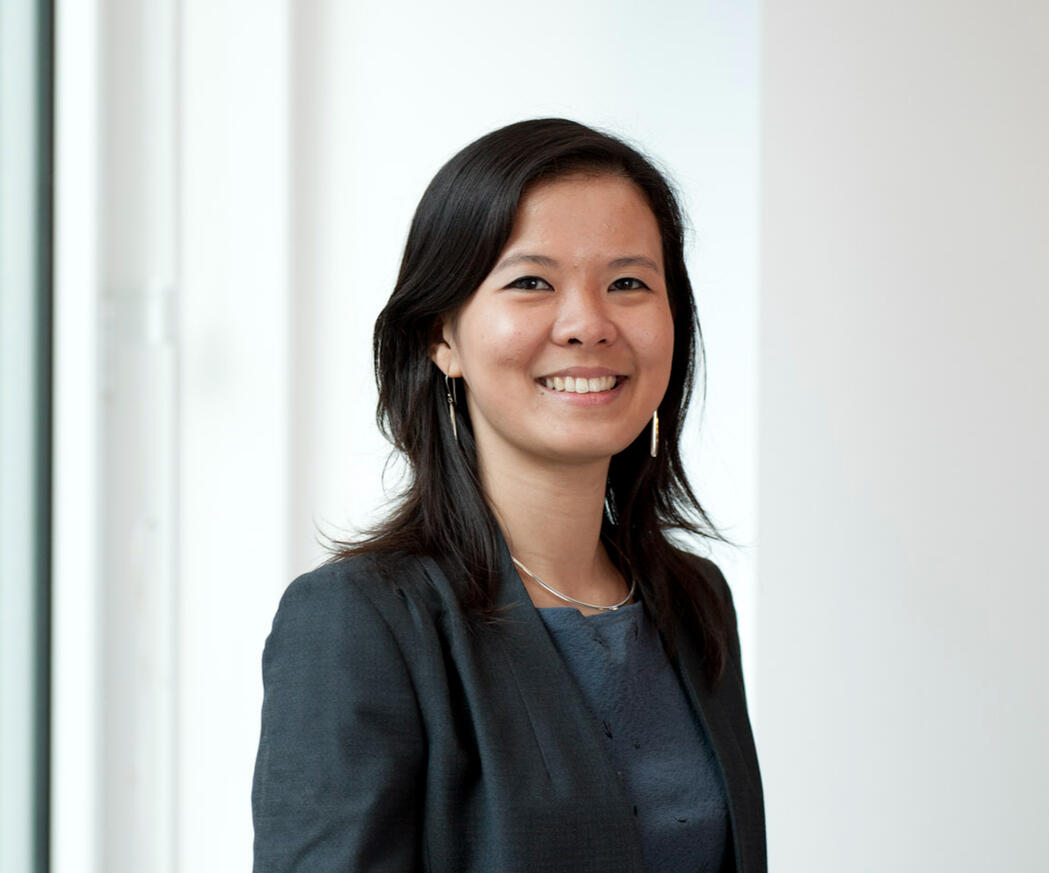
Wenying Li was born and grew up in Singapore. Food and reading are her two lifelong passions. She (foolishly) turned down the opportunity to study literature at Yale University and instead read law at Oxford University before becoming a corporate lawyer in New York. She was able to indulge her foodie passion in Manhattan - managing to eat in 148 restaurants during her seven years there - but working all hours left her with little time to cook and read. Leaving legal practice enabled her to cook through 203 cookbooks and eat in another 383 (much cheaper) restaurants in London. She still cooks a different recipe almost every night. Wenying is driven to promote empathy between cultures by enabling people to sample and learn about the flavours of different cuisines, and to bring back people’s happy memories of childhood reading and eating. It is in pursuit of these goals that she has written her first book.
Joanne Limburg
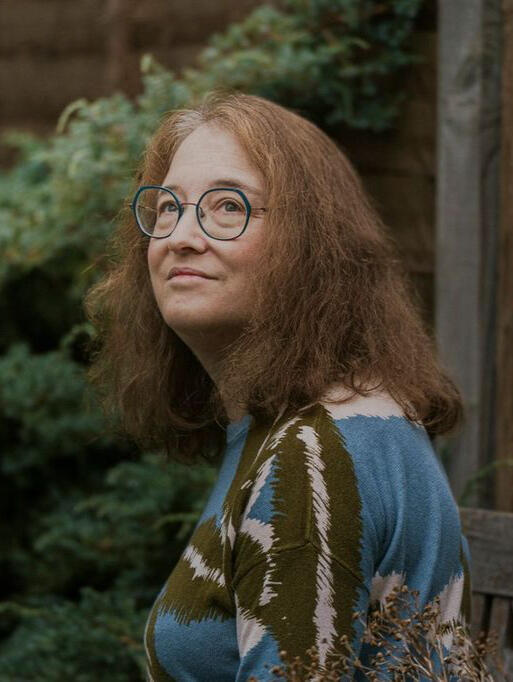
Joanne Limburg (FRSL) was born in North-West London and now lives in Cambridge. She won an Eric Gregory Award for her poetry in 1998, and published her first collection, Femenismo, with Bloodaxe Books in 2000; this was shortlisted for the Waterstone’s First Collection Prize. Two further collections followed: Paraphernalia, (Bloodaxe, 2007), which was a Poetry Book Society Recommendation, and The Autistic Alice (Bloodaxe, 2017). Bookside Down, a collection for children, came out with Salt Publishing in 2013 and was runner-up for the 2014 CLPE poetry award.Her first prose book, The Woman Who Thought Too Much, a memoir about OCD, was published by Atlantic Books in 2010, shortlisted for the Mind Book of the Year Award, and translated into Polish and Portuguese. She revisited the subject in a Radio 4 programme in November 2010, Thought Pattern, Pattern Thought, which explored her experiences through poetry. Her next book was the historical novel, A Want of Kindness (Atlantic Books, 2015), which she was able to complete with the support of grants from the Society of Authors and the Arts Council.After completing a PhD in Creative Writing at Kingston University, she published a second memoir, Small Pieces: A Book of Lamentations (Atlantic Books, 2017), which addressed bereavement, in particular sibling suicide loss. Small Pieces was shortlisted for the Jewish Quarterly-Wingate Prize.Her most recent book is Letters to My Weird Sisters: On Autism and Feminism, which addresses her experience as a late-diagnosed autistic woman alongside an exploration of ‘weird’ women from history, to whom the letters are addressed. Through this book, and The Autistic Alice, Joanne has been able to connect and sometimes collaborate with other disabled and autistic creatives. She contributed to artist Sonia Boue’s ongoing project to develop the practice of neurophototherapy and, most recently, was delighted to have a poem included in Rachael Boast’s anthology Versus Versus: 100 Poems by Deaf, Disabled and Neurodivergent Poets.Joanne teaches Creative Writing at the University of Cambridge. Alas, her fourth poetry collection, will be published by Bloodaxe Books in Spring 2027.
Rachel Lindo
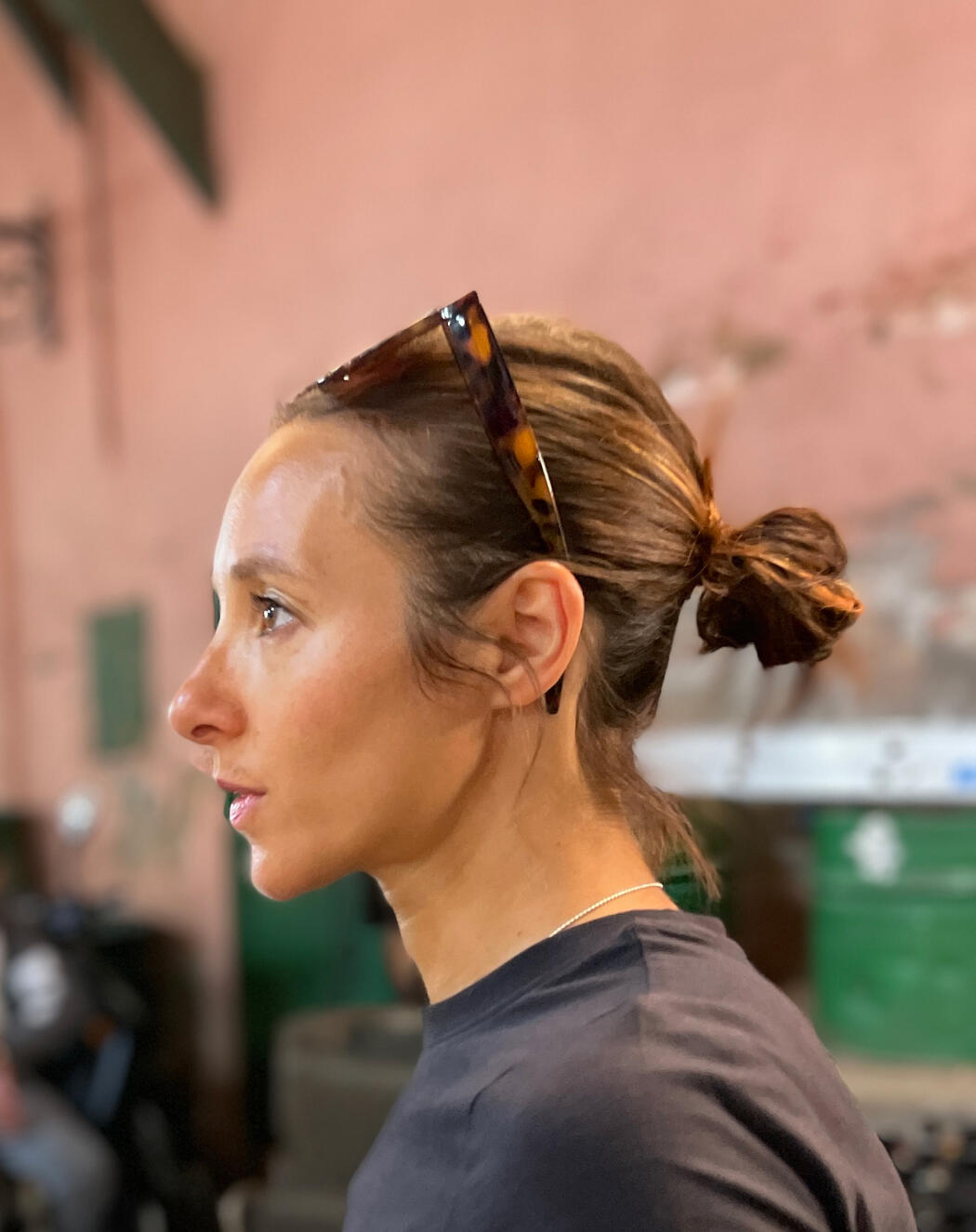
Rachel Lindo is a writer, personal trainer, running coach and co-founder of community and campaigning charity Black Trail Runners. Her non-fiction writing has appeared in magazines including Runner’s World and Women’s Running.Rachel was one of the winners of The Space To Write Project for underrepresented writers and she is currently working on her debut horror novel while pursuing a MFA in Creative Writing.She can mostly be found either swearing at her laptop or running on the trails with her dog(children) George and Ringo.
Annie Lord
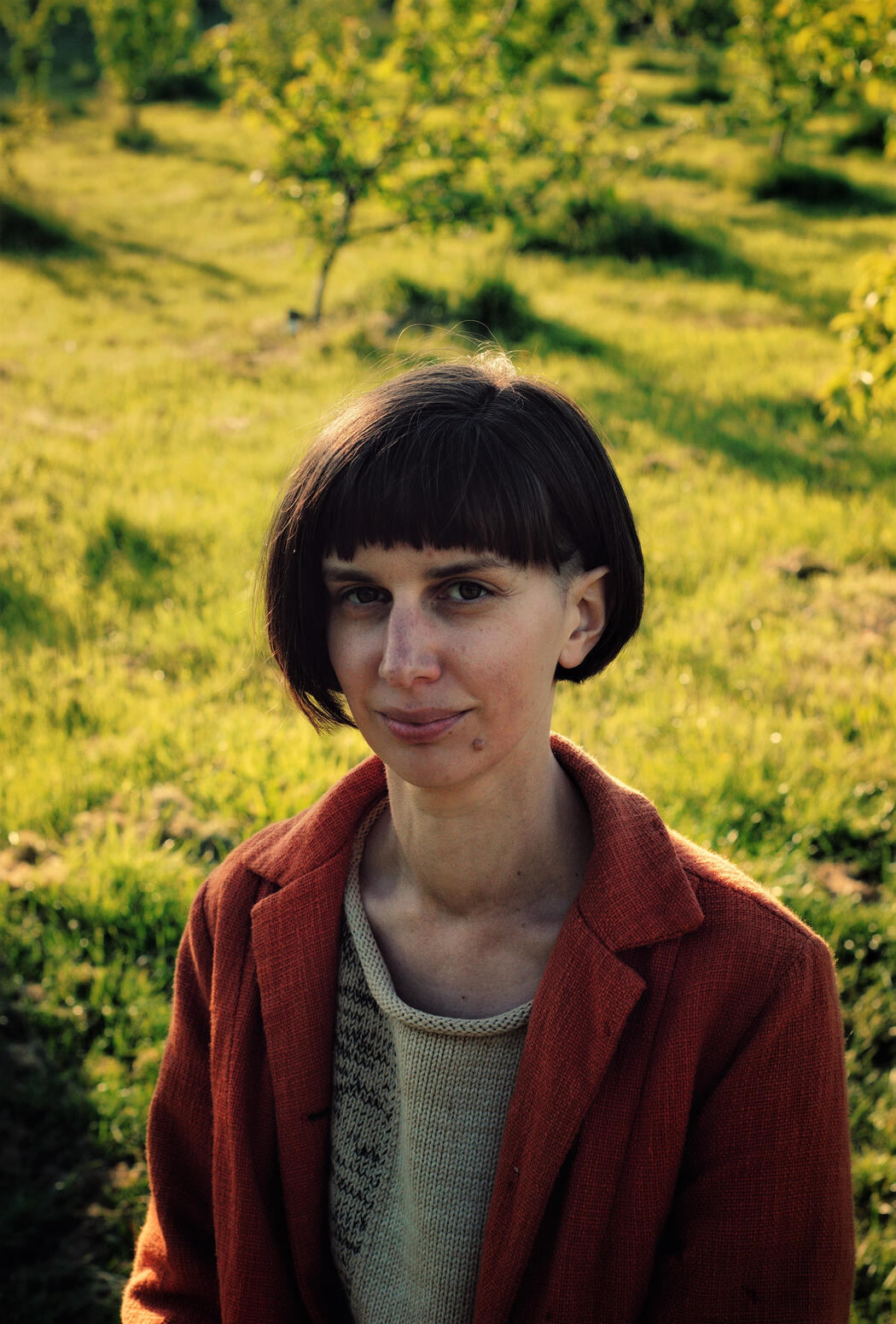
Annie Lord is an artist and writer based in Edinburgh. She studied sculpture at The Slade School of Fine Art before developing her work to encompass writing, storytelling and community-based practice. Annie’s work explores how we interact with the physical world – transforming plants, animals and minerals into objects of artistic, scientific and domestic value.Annie’s site-specific storytelling pieces have been presented at the Scottish Storytelling Centre, Summerhall, Edinburgh Science Festival and Hidden Door Festival.In 2018 she was commissioned by Forth Rivers Trust; co-creating with fellow artist Morvern Odling a series of brass sculptures in West Lothian exploring water pollution, fish migration and the community’s relationship with its river.
In 2020, Annie created The Neighbouring Orchard a major ongoing artwork commissioned by Art Walk Projects developing a community of 160 apple trees across Edinburgh’s coastal suburbs. An accompanying book, written and illustrated by Annie and published in 2022 by Art Walk Press, tells the story of The Neighbouring Orchard as it takes root and becomes a vibrant network of trees, people, communities & wildlife.In 2022 she was shortlisted for the Quiet Man Dave Flash Non-Fiction award for her piece ‘Cyst–Hand–Spine’.
Aefa Mulholland
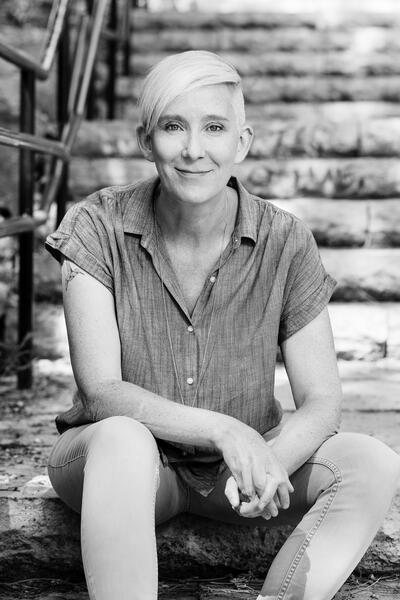
Aefa Mulholland is an award-winning writer, journalist and editor who has worked with The Irish Times, RTE, The Miami Herald, The Advocate, Curve, Diva, MSN, AOL, the Mysterious Package Company, and many more. Her first book, travel memoir The Scottish Ambassador, was published by P+H Books in 2015. Aefa’s creative writing appears in Cagibi, Wanderlust, Slackjaw, Points in Case and elsewhere. Born in Glasgow, she now divides her time between Toronto, Tipperary and Glasgow.Her first novel The Glorious Cuckoo features a century-old bird who steals human hearts. It's about how grief can stall a life, and what it takes to start living again.
JC Niala
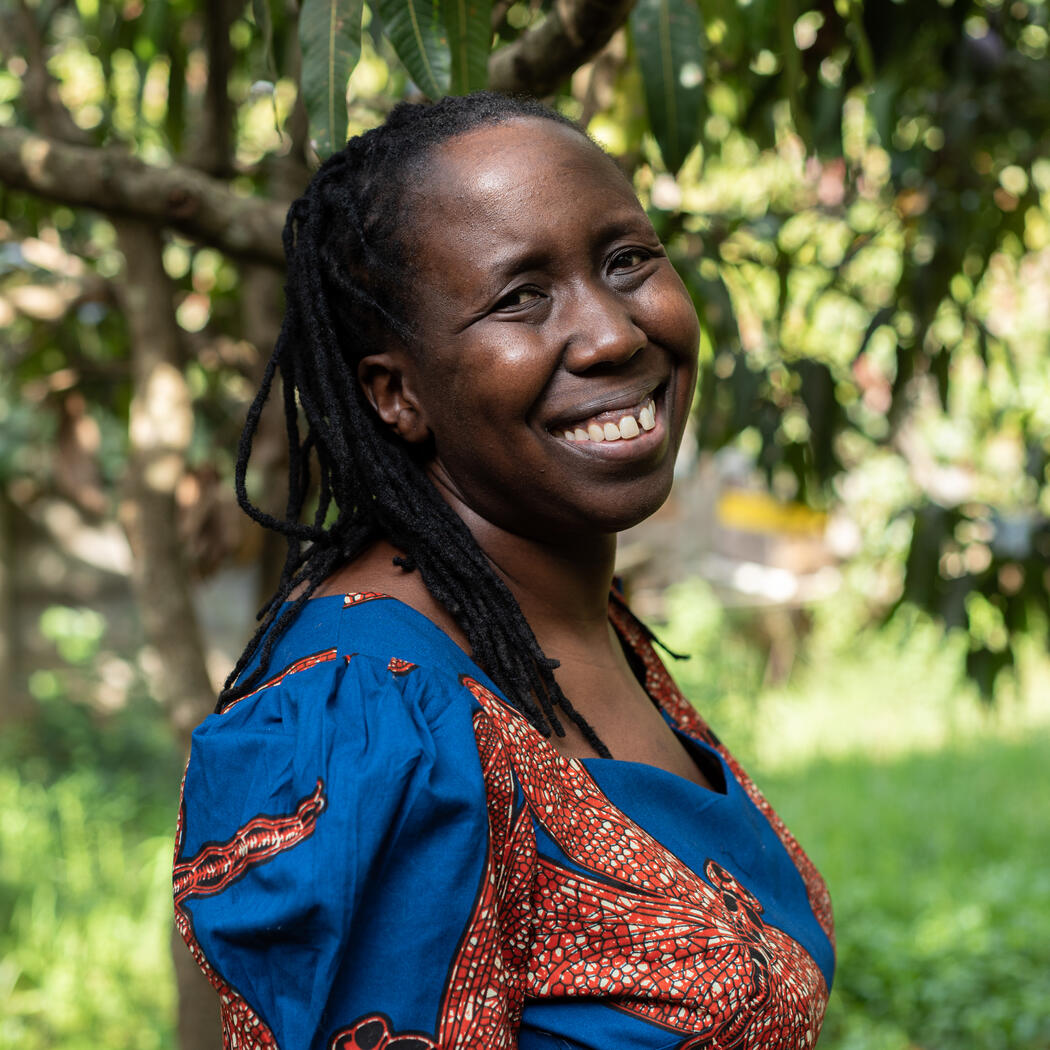
JC Niala is interested in the ways our imaginations of the world affect how we treat it. During the growing season of 2021, she recreated an English allotment in the style of the year 1918, which became a living memorial to the 1918/1919 (Spanish Flu) and COVID-19 pandemics and the First World War. The resultant artists’ journal of poems from the project was published by Fig in 2022 and turned into an online exhibition by The Museum of English Rural Life.Her essays and poems have been published by Bad Lilies, Iamb, Little Toller’s The Clearing, and others.JC is an award-winning stage, screen writer and podcaster. Her play Unsettled is available as a secondary school/ college level Drama resource and can be used to support curricular diversification.JC’s nature writing debut A Loveliness of Ladybirds was shortlisted for the Nan Shepherd Prize for Nature Writing in 2019. An extract from the book, Field notes from an African anthropologist was awarded the Frank Allen Bullock Creative Writing Prize by St Catherine’s College, University of Oxford in 2020.She collaborated with the Wellcome Collection on a podcast entitled The Root of the Matter on a journey to understand how plants can provide a lens on human health, history and belonging.
Eleanor Noyce
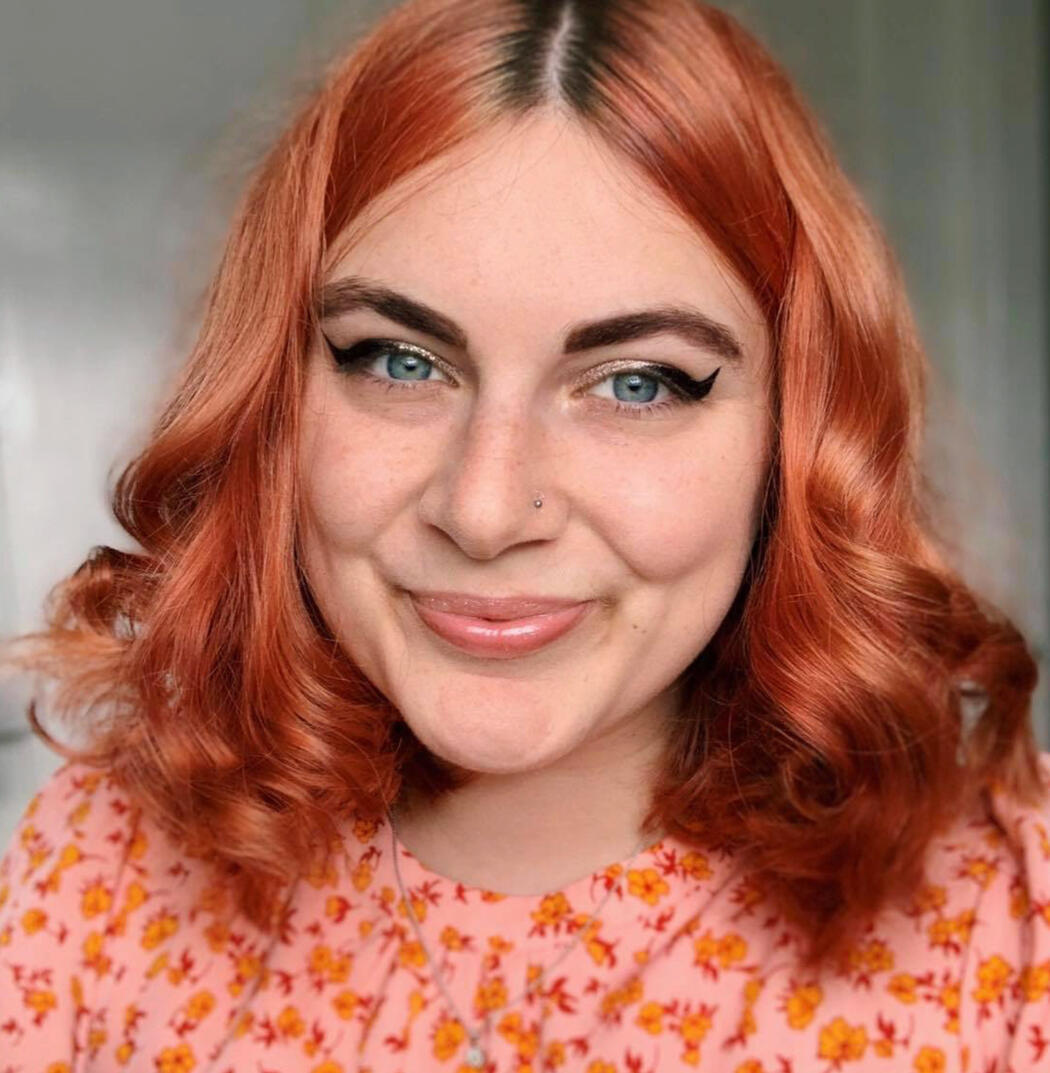
Eleanor Noyce is a London-based freelance journalist and copywriter specialising in sex and relationships, disability, health and LGBTQIA+ culture. She’s written for The Independent, Cosmopolitan, i-D, VICE, Women’s Health and more, and she was formerly the Junior Staff Writer at DIVA Magazine, the leading publication for LGBTQIA women and non-binary people. Championing bisexual representation, disability and neurodiversity in her work, she also has experience in radio, podcasting, panels and events. When she’s not writing, she can be found running, travelling or in the crowd at a music festival.
Andrés N. Ordorica
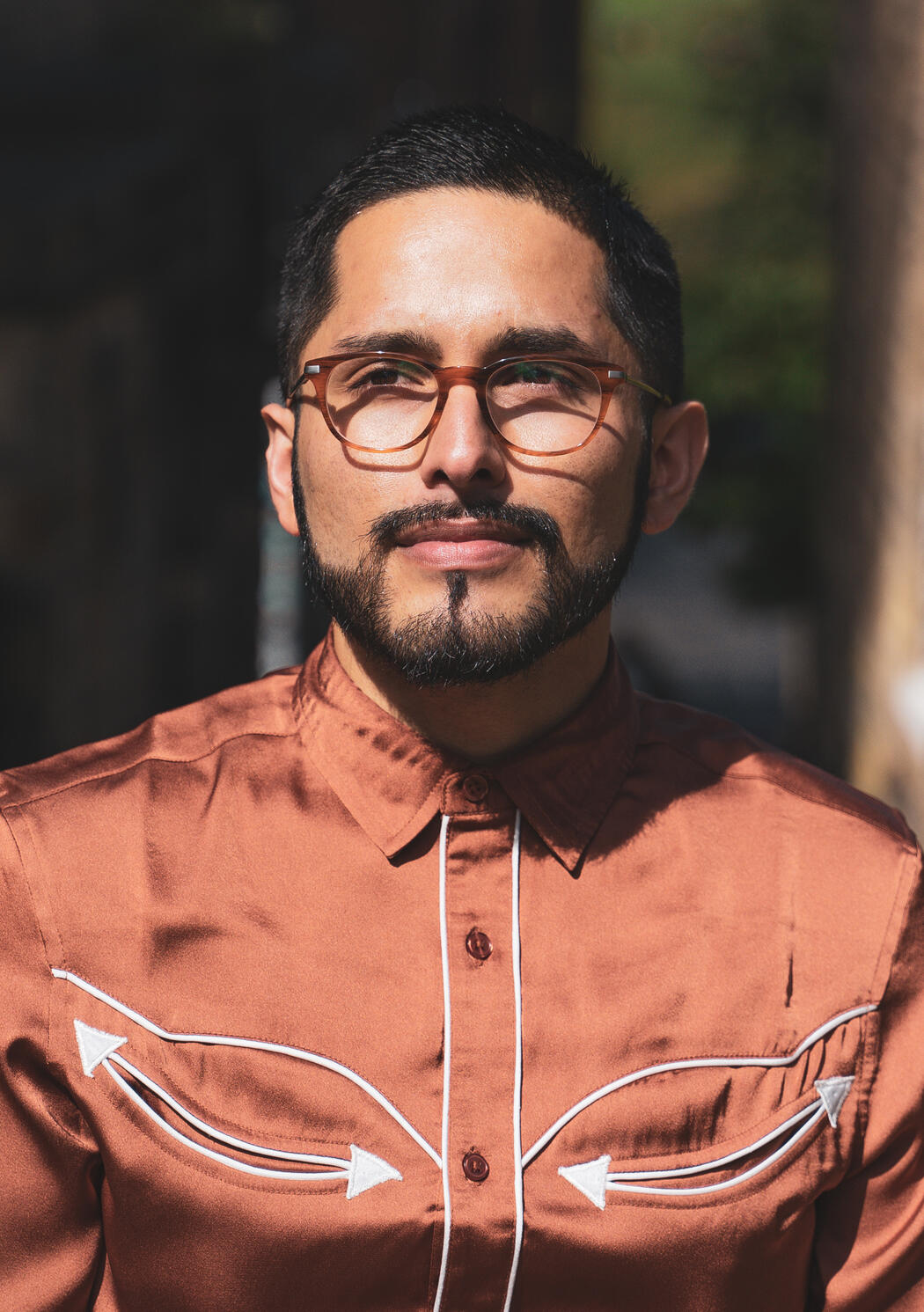
Andrés N. Ordorica is a queer Latinx poet, writer, and educator based in Edinburgh. Drawing on his family’s immigrant history and his own third culture upbringing, his writing attempts to map the journey of diaspora and unpack what it means to be from ni de aquí, ni de allá (neither here nor there).He is a recipient of the Edwin Morgan Trust’s Second Life grant. In 2021, he was shortlisted for both the Morley Prize for Unpublished Writers of Colour and Mo Siewcharran Prize.His short fiction has been published in Gutter, Speculative Books, We Were Always Here (404 Ink), and The Colour of Madness (Bluebird Books). His non-fiction has been published in The Guardian, The Skinny, and Bella Caledonia.At Least This I Know, his debut poetry collection, is published with 404 Ink.
Wendy Pratt
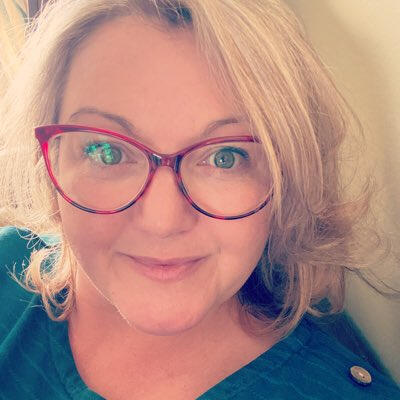
Wendy Pratt is a poet, author and workshop facilitator living and working on the North Yorkshire coast. She is the author of two pamphlets and three collections of poetry. Her latest collection, When I Think of My Body as a Horse won the Poetry Business Book and Pamphlet competition 2020. She is the editor in chief of Spelt magazine, which seeks to validate and celebrate the rural experience through poetry and creative non-fiction. Wendy runs popular online courses and workshops and also teaches creative writing courses at York Centre for Lifelong Learning. Wendy is currently working on her fourth collection of poetry which will be published by Smith/Doorstop in 2024. Her other project, a creative non-fiction project, The Ghost Lake, was recently longlisted in the Nan Shepherd Prize.
Alycia Pirmohamed
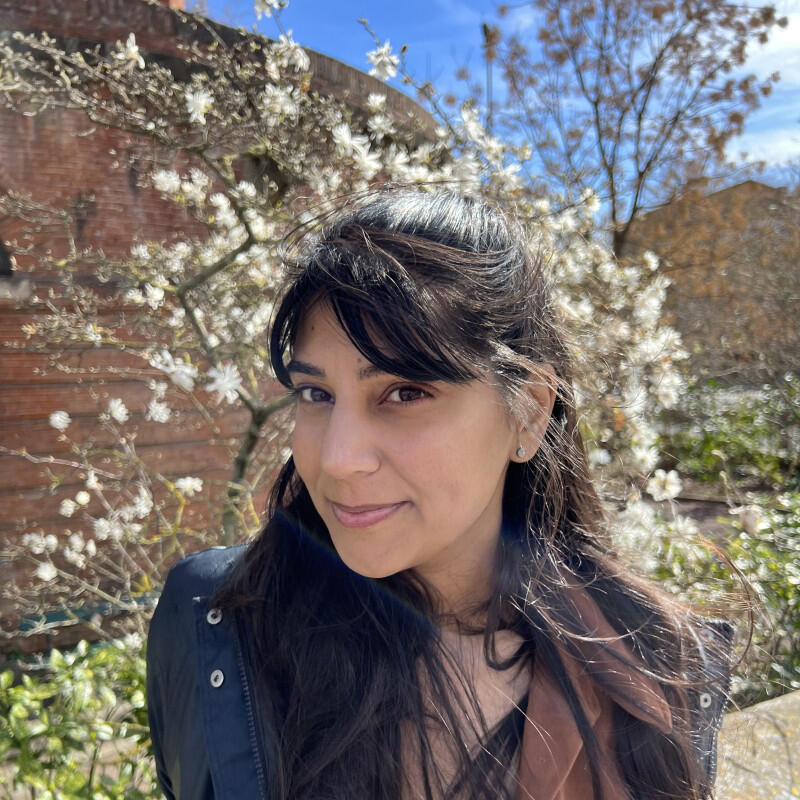
Alycia Pirmohamed is a Canadian-born poet based in Scotland. She is the author of the pamphlets Hinge and Faces that Fled the Wind, as well as the collaborative pamphlet Second Memory, co-authored by Pratyusha. Her debut poetry collection, Another Way to Split Water, was published by Polygon (UK) and YesYes Books (US). Another Way to Split Water was shortlisted for Scotland’s Poetry Book of the Year by the Saltire Society. She is the recipient of several awards, including a Pushcart Prize, the 2019 CBC Poetry Prize and the 2020 Edwin Morgan Poetry Award. Her debut narrative non-fiction book A Beautiful and Vital Place won the 2023 Nan Shepherd Prize for underrepresented nature writers and will be published by Canongate Books in August 2026.
Adam Ramsay

Adam Ramsay is special correspondent at openDemocracy, having been an editor of and leading contributor to the site in various roles since 2013. In that time, he’s broken major stories on dark money in British politics, including during the Brexit referendum, been undercover with far-right groups in Italy, Spain and the UK, interviewed people in Palestine, Ukraine, Hungary, Slovakia, Czechia, Croatia, Italy and every part of the UK about their experiences of the democratic process, and led campaigns – some successful – for a number of democratic reforms. For a decade,
Adam has covered the democratic crisis in Britain. His investigative work – shortlisted for a Press Gazette Media Award – has helped expose the role of dark money and lobby groups in shaping British politics and been picked up by outlets across the UK and around the world. Adam is Scottish, and his writing has often covered – and supported – movements to break up Britain.
Christina Riley
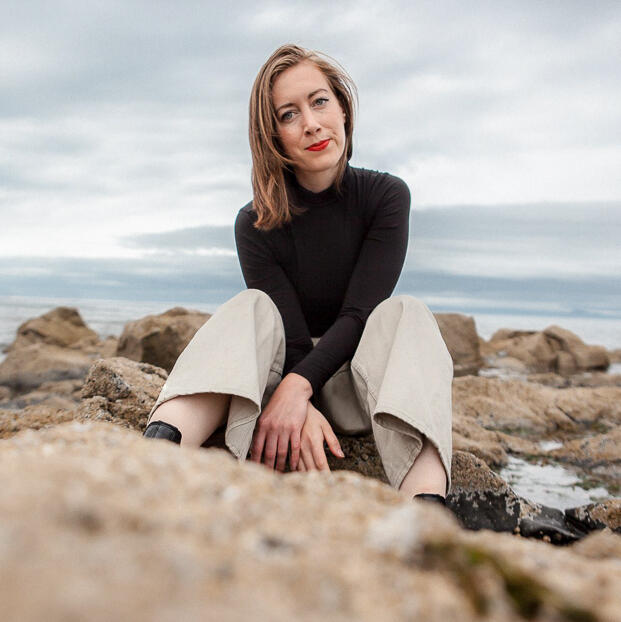
Christina Riley is an artist and writer based in Ayrshire, Scotland. Born in Miami, Florida and inspired by the essential connections between art, literature and science, her work draws attention to the natural world with a particular focus on the Atlantic coasts of Scotland and North America.Christina’s essays have been published by Little Toller’s The Clearing, Caught by the River, Elsewhere, Minding Nature, Gold Flake Paint and others, and her book The Beach Today—a photographic diary documenting marine objects collected over three months of daily beach walks in spring 2020—was published by Guillemot Press in summer 2021.Christina was longlisted for the 2019 Nan Shepherd Prize for Nature Writing, before later that year starting The Nature Library, a travelling library bringing books about nature and the environment to public spaces. She is currently exploring works which focus on women’s lives by the coast and the role of literature in times of climate crisis.
Maud Rowell
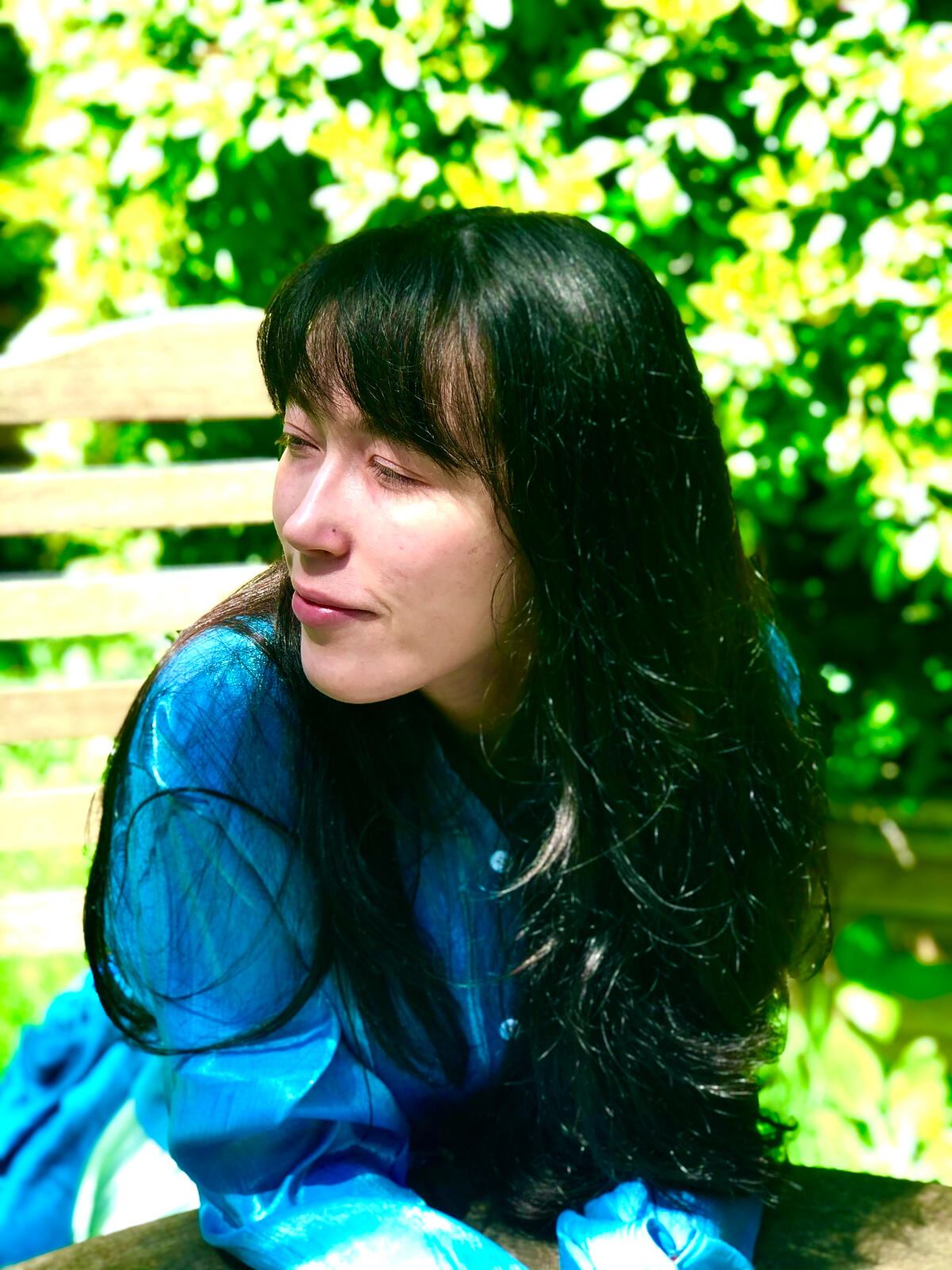
Maud Rowell is a writer, translator, and poet based in London. After studying Japanese at the University of Cambridge, she trained as a journalist, and worked freelance for several years, writing for brands like Art UK, Hidden Compass, and SUITCASE magazine. She was diagnosed with a rare, degenerative form of blindness aged 19, and often uses writing – a craft she has loved and worked at all her life – to educate and engage people on disability, encouraging audiences to see differently.Her debut book, Blind Spot: Exploring and Educating on Blindness (404 Ink, 2021) is a collection of essays which carry readers on a whirlwind tour through time and space – from Japanese tube stations to the 18th century museum – to showcase what the world looks like for someone who does not see. She offers practical insights based on her own experiences, as well as spotlighting incredible blind pioneers – explorers, artists, scientists, and more – through history and the current day.In 2021, she won an international competition, the Holman Prize (run by the San Francisco-based charity, LightHouse for the Blind and Visually Impaired), securing $25,000 with which to do any ambitious, creative project and challenge prevailing ideas of what the blind can do. In June 2022, she embarked on a year-long solo journey around some of Japan’s remotest parts, from uninhabited islands to volcanoes hundreds of kilometres out to sea. She returned to the UK in July 2023 and is now working on her next book, a work of literary travel writing about her Holman Prize journey.When she’s not working on that project, she can be found writing waka, a form of classical Japanese poem with a 5-7-5-7-7 syllable pattern. She also works in Northern Ireland policy for the Department for Environment, Food and Rural Affairs (Defra) and as a type of parliamentary reporter for the House of Commons.
Sarah Stewart
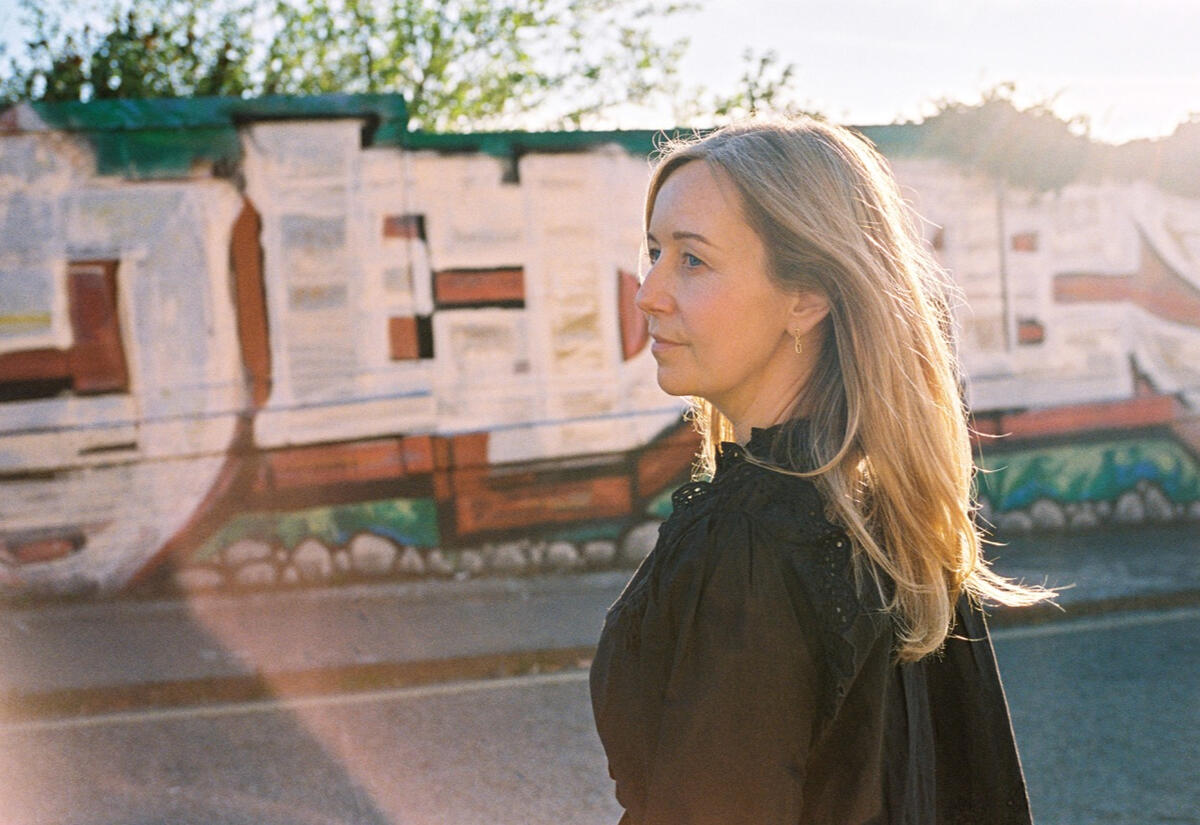
Sarah Stewart was born in Aberdeen and worked as a magazine journalist before moving into book publishing as a fiction editor. As a journalist, Stewart has written for Time Out, The Herald, The Big Issue and The Guardian, among others. As a poet, Sarah was a UNESCO City of Literature Writer in Residence in Krakow, a Keats-Shelley Prize finalist and the winner of the Callum Macdonald Award. She lives in Edinburgh, where she is Director of the Lighthouse Literary Consultancy.
Twelve Triangles - Emily Cuddeford and Rachel Morgan
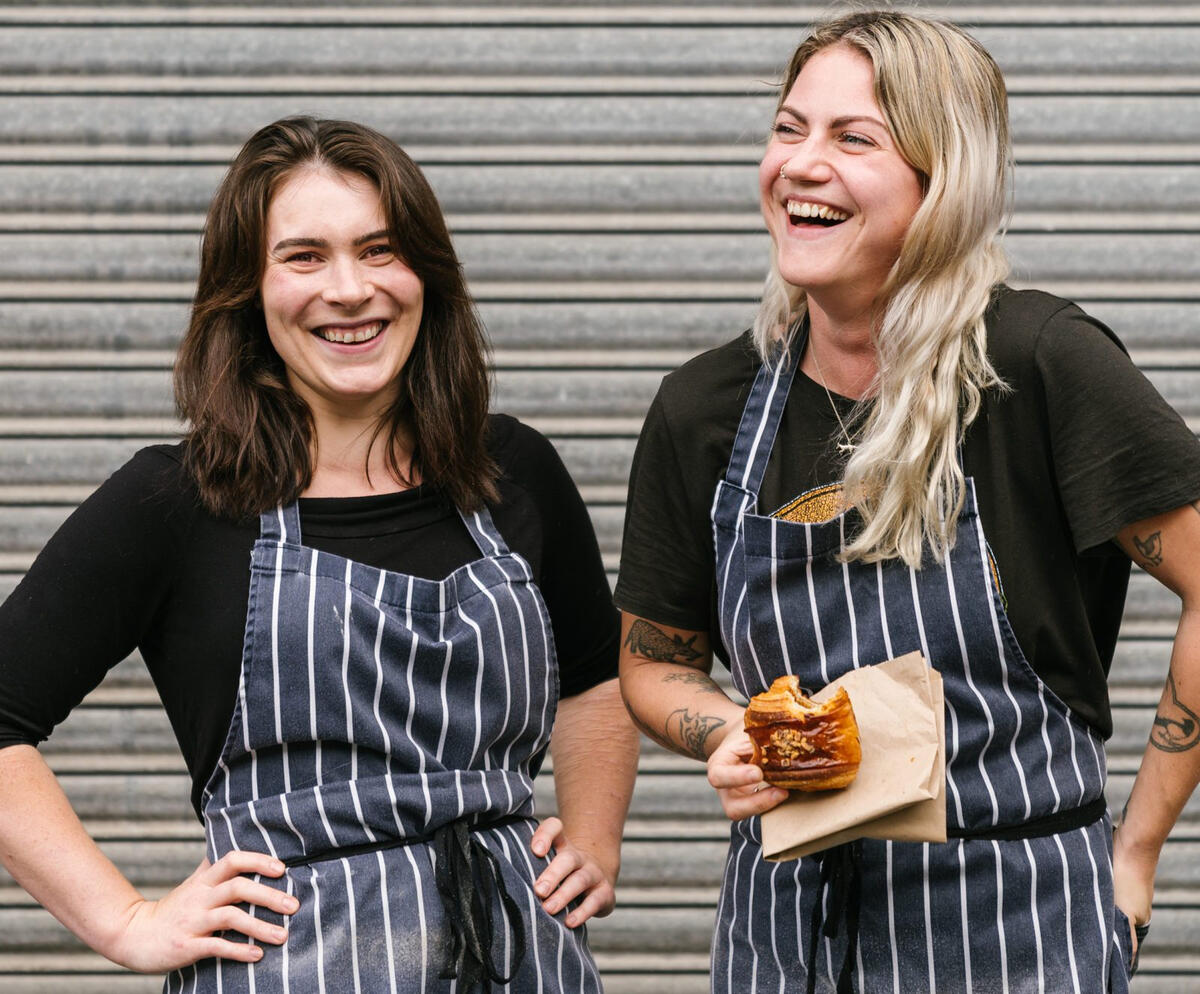
Emily Cuddeford and Rachel Morgan opened their Edinburgh bakery Twelve Triangles on 31st March 2015. Since then, they have grown the bakery, added a savoury production kitchen as well as opening eight shops in Edinburgh and, most recently, the Scottish Borders. They produce daily, slowly fermented sourdough, pastries, sandwiches, salads and ferments as well as their own retail range of jams, caramels and granola.Twelve Triangles won the Great British Food Awards 2021 for best bakery, as voted by Great British Food magazine readers and the Best Baker at the Slow Food Awards 2020. They were shortlisted in the Best Baker category at the Olive Awards 2019 and nominated in the bakery category at the YBFs in 2019. In April 2023, they were featured as one of the twenty best bakeries in the UK in the Financial Times.
Elspeth Wilson
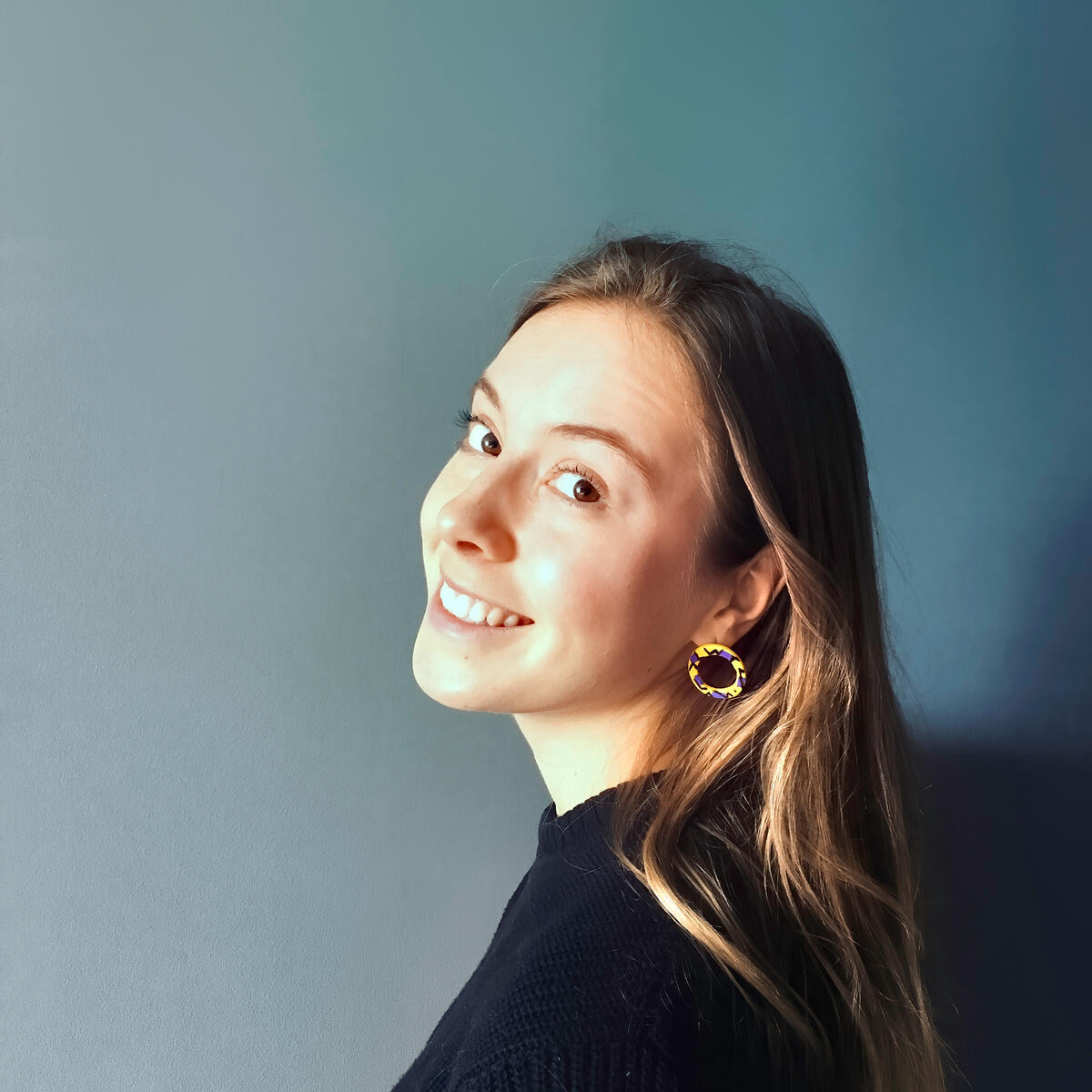
Elspeth Wilson is a Scottish writer and poet who is interested in exploring the possibilities and limitations of the body. Her work has been shortlisted for the Canongate Nan Shepherd Prize and Penguin’s Write Now editorial programme, and she is currently working on her debut novel and debut nature writing manuscript. She is also co-founder of the Writing Happiness project. Her work has been supported by Creative Scotland, Arts Council England and the Royal Society of Literature.
Submissions
Thank you so much for considering Portobello Literary for your submission.We are looking for clients and are happy to chat to writers at any stage of their career.Please follow the guidelines below, which make it easier for us to review your book.Owing to the enormous and increasing volume of submissions that we receive daily, we regret that we cannot guarantee a reply to your submission. We respond to as many submissions as we can but individual responses cannot be guaranteed, and we cannot offer feedback on any submissions that we are unable to pursue further. If we are interested in reading or hearing more about your book, we'll be back in touch within eight to twelve weeks.Please note that we don't accept postal submissions. We also do not accepted submissions originated, written or edited by Artificial Intelligence (AI) technology.To send in your submission, please address your email to Caro at submissions@portobelloliterary.co.uk with:
A synopsis of your book
A short biography
And, depending on whether you're sending fiction or non-fiction:
- For fiction: the first three chapters or the first 50 pages of your manuscript along with the total word count
- For non-fiction: a chapter outline and three sample chapters no longer than 50 pages.It is helpful if your name and book title are both in the file name and within the files you're sending in the header or footer.If you have any queries about the format of your submission and can't see it answered above or you aren't able to submit in the way outlined below, do email us on info@portobelloliterary.co.uk and we can discuss.If you'd like some tips on crafting your submission, head to our Resources page.
What we're looking for
Caro ClarkeI represent adult fiction and non-fiction. As of 2025, I am close to capacity and only take on select projects.I have very broad taste in fiction and I’m attracted to excellent writing, clever plots, unusual settings and complex characters. I love all types of stories from niche literary novels, to speculative fiction and fantasy, gripping crime and novels with wide appeal. I am partial to fiction that transports you, steals your heart and makes you think.Some fiction I’ve loved recently: Sweet Bean Paste by Durian Sukegawa, The Mothers by Brit Bennett, Great Circle by Maggie Shipstead, Memorial by Bryan Washington, Ghost Wall by Sarah Moss, How Much of These Hills Is Gold by C Pam Zhang, Girl A by Abigail Dean, At Night All Blood is Black by David Diop, The Stranding by Kate Sawyer, Transcendent Kingdom by Yaa Gyasi, Book Lovers by Emily Henry, Open Water by Caleb Azumah Nelson, Hamnet by Maggie O’Farrell, A River Called Time by Courttia Newland, Welcome to my Life by Bethany Rutter and The Invisible Life of Addie LaRue by V.E. Schwab.On the non-fiction side, I’m looking for narrative non-fiction, memoir, popular science, big ideas, travel, culture, essays, queer culture and intersectional feminism. I’m also interested in food writing and cookbooks. As the co-founder of the Nan Shepherd Prize for underrepresented nature writers, I have a particular soft spot for nature writing of any type. What I look for in non-fiction are fascinating topics, a unique perspective or one that disrupts the status quo and an engaging voice. Most of all, I’m looking for writers who are passionate about the topic of their book.Some non-fiction I’ve loved recently: Crying in H Mart by Michelle Zauner, Small Bodies of Water by Nina Mingya Powles, Islands of Abandonment by Cal Flyn, Inferno by Catherine Cho, Coming Undone by Terri White, Two Trees Make a Forest by Jessica J. Lee, The Lady from the Black Lagoon by Mallory O’Meara, Thick by Tressie McMillan Cottom, I’ll Be Gone in the Dark by Michelle McNamara, Why We Swim by Bonnie Tsui, Thin Places by Kerri ní Dochartaigh, Afropean by Johny Pitts, Dark Skies by Tiffany Francis-Baker, Empire of Pain by Patrick Radden Keefe and The Lonely City by Olivia Laing.I am always on the lookout for writers from underrepresented backgrounds.I am not looking for children’s books (picture books to YA) at this time.
Resources
If you're new to writing and seeking representation, the submission process can seem daunting. Here are some tips on how to prepare the best submission.We also run a Substack filled with writing advice so head over there to subscribe!FICTIONWhat to send?
- The sample chapters you are sending should be the first chapters.
- A synopsis should be a one or two-page document that summarises the plot (including spoilers and the ending!). A synopsis isn’t there to showcase your style (that’s what your sample chapters are for) so keep to simple sentences and get straight to the point. (Most writers find creating a synopsis to be the worst part of the writing process so hang in there.)
- Your bio should tell us a little bit about who you are, and should include any relevant information to your writing. It’s absolutely fine if it’s very short.When to send?
- Send in your book if – and only if – you have finished writing the whole book. (If we request your full manuscript and you haven’t yet finished it, we will ask you to finish it and contact us when you're done).
- Writing is rewriting, so a first draft usually isn’t the best draft to send. Once you finish writing your book, wait a few weeks and read your manuscript again to hone and edit it. Then read it again (and again!) and edit until you’re happy with it.
- You can then share it with someone else for their (honest) thoughts and see what they say. It’s always best to ask someone who enjoys reading the type of book you’ve written. It’s good to send it to a few people, as opposed to just one person.If you’re in the middle of writing your book and you’re not quite sure it’s working and you don’t know what to do…
- One of the best ways to learn your craft is to read a lot of books and read them critically. How is the writer making the characters shine? Is the plot interesting? Is the writing notable?
- If you can afford to, you might consider trying a creative writing course.Books:
On Writing by Stephen King
Your Story Matters by Nikesh Shukla
Story Genius by Lisa Cron
The Science of Storytelling by Will Storr
On Editing: How to edit your novel the professional way by Helen Corner-Bryant and Kathryn PricePodcasts:
New Yorker Fiction
DIY MFA Radio
Monocle Meet the Writers
Longform
Death of a 1,000 Cuts
The Underground Writing Podcast
The Writer Files
Writing ExcusesOnline masterclasses:
MasterclassNON-FICTIONIf you would like to receive a proposal template created by Portobello Literary, just email us on info@portobelloliterary.co.uk and we'll send it over!What to send?
- A synopsis should be a one to two-page document that summarises the entire book. A synopsis isn’t there to showcase your style (that’s what your writing sample is for) so keep to simple sentences and get straight to the point. (Most writers find creating a synopsis to be the worst part of the writing process so hang in there!)
- Your bio should be about you, who you are, and any relevant information on your writing or your professional experience or qualifications. It’s absolutely fine if it’s very short.
- Your chapter outline should have a description of equal length for each chapter in your book. This can include the topic you will be talking about, the examples you’ll use, the themes etc.
- The writing sample you include should showcase the very best of your book (subject-wise and writing-wise).When to send?
- Non-fiction books tend to sell on proposal so you don’t need to have finished the book to submit, though you should have a full proposal.
- You will need to edit your writing sample a few times, making sure the extract is very strong and showcases the best of your book idea. Do spend a lot of time and thought on the chapter outline and synopsis. The structure of your book should make sense and be dynamic. It should show how passionate you are about the subject and why you are the best person to write this book. If you're not achieving that, go back and take a look at your structure.If you’re putting together the idea for a book and you’re not quite sure it’s working and you don’t know what to do…
- One of the best ways to learn how to write is to read a lot of books and read them critically. How is the writer showing their passion for the subject? Do they have any particular personal connection to the topic? How is the book structured?
- If you can afford to, you might consider trying a narrative non-fiction writing course.Books:
Storycraft by Jack Hart
How To Write an Autobiographical Novel by Alexander Chee
Write It All Down by Cathy RentzenbrinkOnline masterclasses:
Masterclass
Rights
For any queries about translation or North American rights for our authors, email Margaux Vialleron margaux@portobelloliterary.co.ukFor film and television queries, email Caro Clarke caro@portobelloliterary.co.uk***We work with co-agents in many territories and for Film and Television:Albania, Bosnia and Herzegovina, Bulgaria, Macedonia, Montenegro, Romania, Serbia
Mira Droumeva mira@anas-bg.com
Andrew Nurnberg Associates Sofia | Jk. Yavorov bl. 56-B, Ap. 9, Sofia 1111, BulgariaArabic Rights
Mohammed Al-Dhabaa Rights@Kalemat-agency.com
Kalemat Agency | Said Bin Zaid, Building No. 6113, Secondary No. 2678 Qurtubah Dist., 12348 Riyadh, Saudi ArabiaChina
Jackie Huang jhuang@nurnberg.com.cn
ANA Beijing Representative Office
Room | 1705, Culture Square, No.59 Jia Zhongguancun Street, Haidian District, Beijing 100872, People’s Republic of ChinaCroatia, Hungary
Évi István rights@nurnberg.hu
Andrew Nurnberg Associates Budapest | Gyori út 20, Budapest 1123, HungaryCzech Republic, Slovakia, Slovenia
Jitka Německová nemeckova@nurnberg.cz
Andrew Nurnberg Associates Prague | Jugoslávských partyzánů 17, 160 00 Praha 6, Czech RepublicGermany, Austria, Switzerland
Antje Hartmann antje.hartmann@mp-litagency.com
Literarische Agentur Kossack GbR | Papenhuder Strasse 49, 22087,Japan
Hamish Macaskill hamish@eaj.co.jp
The English Agency (Japan) Ltd. | Sakuragi Bldg 3F., 6-7-3 Minami-Aoyama Minato-ku Tokyo, JapanKorea
Sue Yang sueyang@eyagency.com
Eric Yang Agency | 54-7 Banpo-dong, Seocho District, Seoul, South KoreaLatvia, Lithuania, Estonia, Ukraine, Georgia, Armenia, Uzbekistan, Azerbaijan, Kazakhstan, Kyrgyzstan, Uzbekistan
Tatjana Zoldnere zoldnere@eearagency.com
Eastern European and Asian Rights Agency (EEARA) | 19/21-3 Gertrudes St. Riga, LV 1011, LatviaNetherlands, Belgium (Flemish), Denmark, Sweden, Norway, Finland, Iceland
Diana Gvozden d.gvozden@schonbach.nl
Marianne Schönbach Literary Agency b.v. | Korte Leidsedwarsstraat 12, 1017 RC Amsterdam, the NetherlandsPoland
Łukasz Wróbel lukasz.wrobel@graal.com.pl
Graal Sp. z o.o. | Pruszkowska 29/252, 02-119 Warszawa, PolandSpain, Portugal, Brazil
Txell Torrent txell@mbagencialiteraria.es
MB Agencia Literaria | Ronda Sant Pere, 62, 1º-2ª, 08010 Barcelona, SpainTaiwan
Whitney Hsu whsu@nurnberg.com.tw
Andrew Nurnberg Associates Taipei | 8F, No.129, Sec. 2, Zhongshan, North Road, Taipei 10448, TaiwanThailand, Indonesia, Mongolia
Weerawat “Big” Techakijjathorn big@nurnberg.co.th
ANA Bangkok | No. 1, Empire Tower, 47th Floor, Unit 4703, Sathon Tai Road, Yan Nawa Sub-district, Sathon District, Bangkok 10120Turkey
Hasret Parlak Torun hasret@anatolialit.com
AnatoliaLit Agency | Caferaga Mah. Gunesli Bahce Sok. No:48 Or.Ko Apt. B Blok D:4 34710, Kadikoy-Istanbul, TurkeyVietnam
Van Thanh Hoang van@nurnberg.com.vn
ANA Hanoi | No 7, D2, TT4 Bac Linh Dam, Dai Kim Ward, Hoang Mai District, Hanoi, Vietnam
Film and TV
Our film and TV rights are handled by Matthew Dench at Dench Arnold.
News
Portobello Literary is on Substack!We have decided to change the way we communicate.
Portobello Literary is now only sharing news on Substack or Instagram.
Follow us there for news!
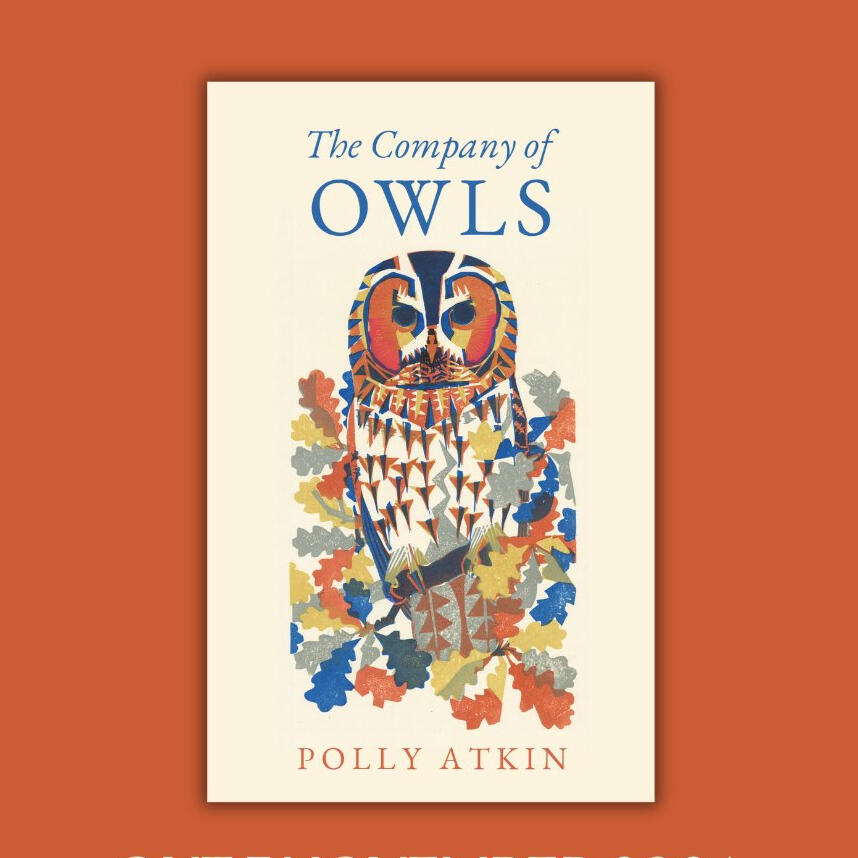
Elliott & Thompson acquires The Company of Owls by Polly Atkin
July 2024Publishing Director Sarah Rigby commissioned and acquired World Rights from Caro Clarke at Portobello Literary, and the book will be published in hardback and eBook on 7 November 2024.In the woods above Polly Atkin’s home in Grasmere, Cumbria live the tawny owls she calls her neighbours. Each night, they come down to her cottage at dusk, calling out as night falls – in particular a trio of owlets she watches grow from fledglings to young adults in 2023.The Company Of Owls is a love song to these incredible creatures, and a reflection on what makes them, and us, unique and distinctive. It’s a call to find joy in unexpected places and times. It is a lesson in learning to listen – to really listen – in a world full of noise.More information in the BookBrunch announcement and you can pre-order the book from the Portobello Bookshop website.
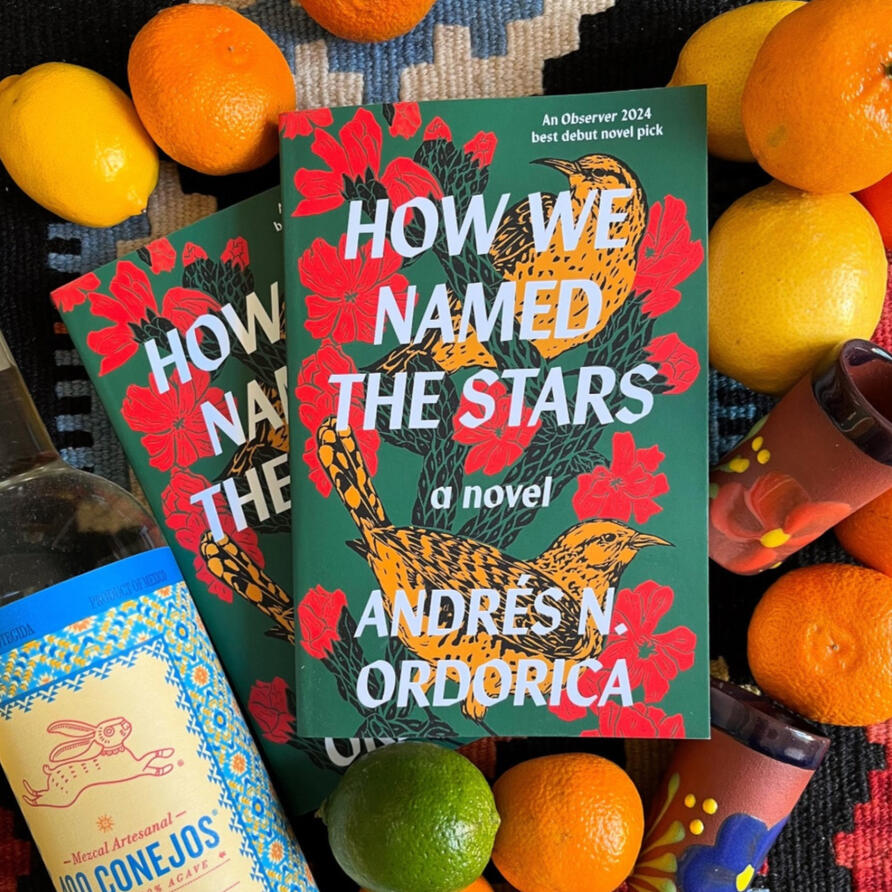
PUBLICATION: How We Named The Stars by Andrés N. Ordorica is published in the UK by Saraband
July 2024One of the Observer’s 2024 Top Ten Debuts'Ordorica constructs the world of the novel with unrelenting care, weaving together the beauty of love with the beauty of the natural world' New York Times'Debut novelist Ordorica's tender coming-of-age novel is styled as a heart-rending letter written after a first love ends in tragedy' Washington PostOrder from your local bookshop here and from the Portobello Bookshop website.
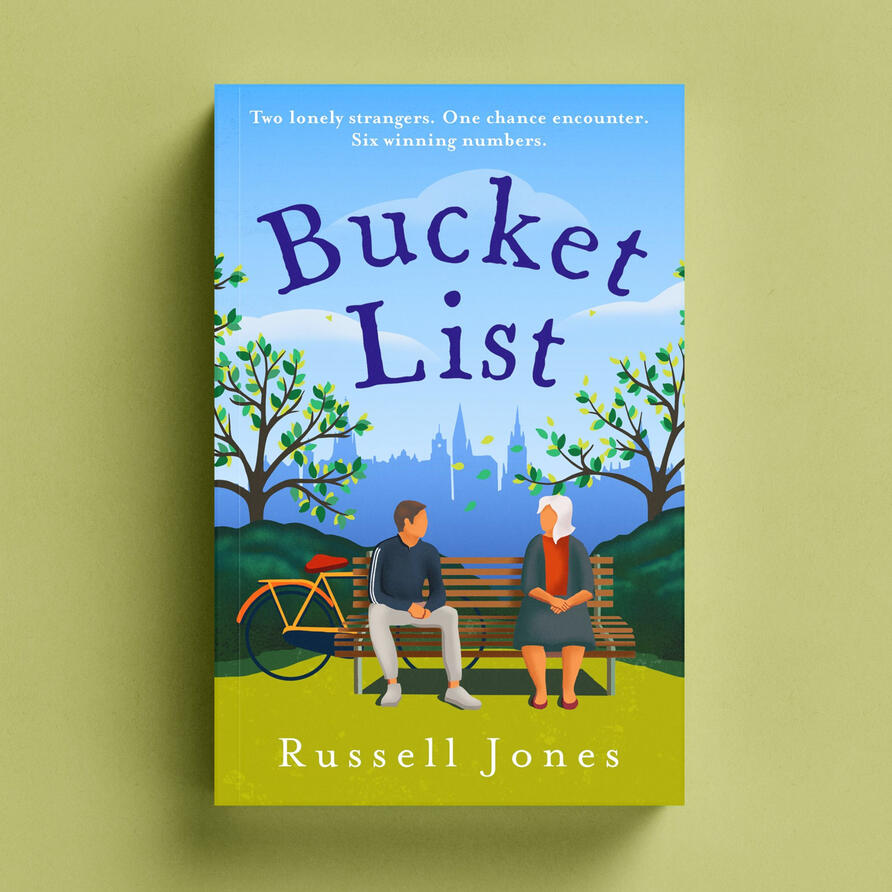
PUBLICATION: Bucket List by Russell Jones is published in the UK by Polygon
July 2024‘An essential read . . . Positive, uplifting and funny with a real feel-good factor’ Oban FM‘A feel good story . . . A fantastic debut’ Books from Scotland‘Rarely does one read a novel that so nourishes the soul and completely restores one’s faith in the inherent goodness of mankind. Jones is an exceptional writer’ Tendai Huchu, author of The Hairdresser of Harare‘A poignant, entertaining and uplifting read as loneliness, larceny and a lottery win lead to the unlikeliest of friendships’ Olga WojtasOrder from your local bookshop here and from the Portobello Bookshop website.
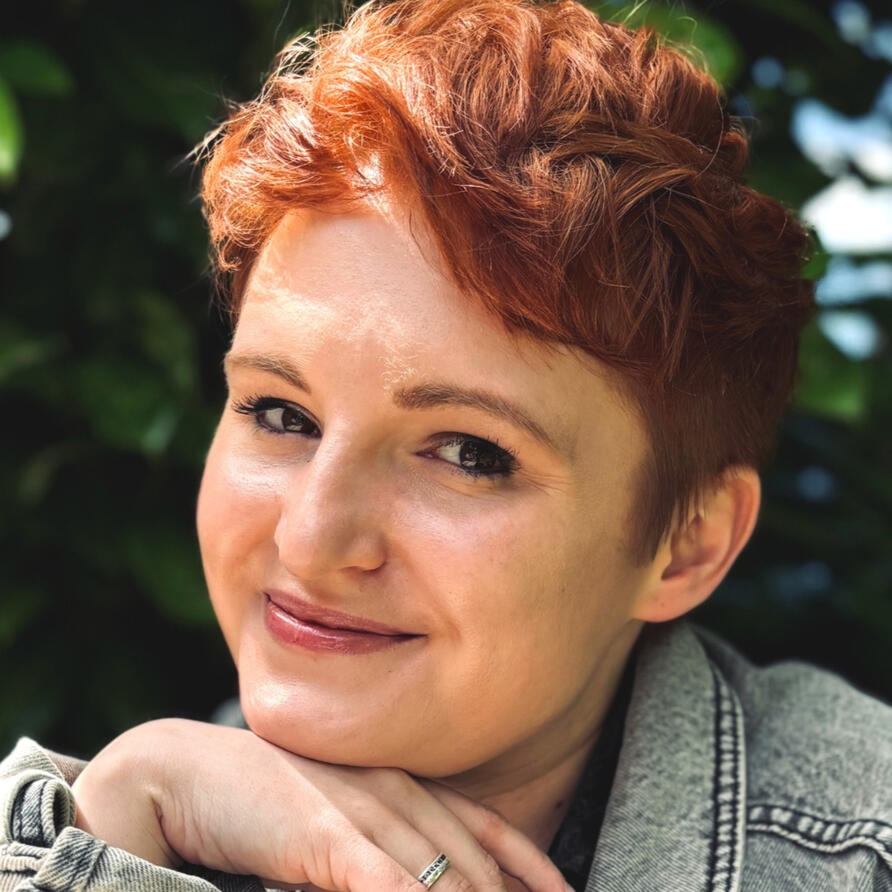
Angry Robot Books nabs Laura Elliott's horror novel on science, capitalism and chronic illness Awakened
June 2024Journalist Laura Elliott's debut Awakened, exploring science, capitalism, humanity and chronic illness, pitched as featuring shades of Greek mythology and set after the world has ended, overrun by the maddened victims of an experiment to allow humans to go without sleep to make them more productive, but with horrifying repercussions, to Simon Spanton at Angry Robot, in a pre-empt, in an exclusive submission, for publication in fall 2025, by Caro Clarke at Portobello Literary (world English).More information in The Bookseller announcement.
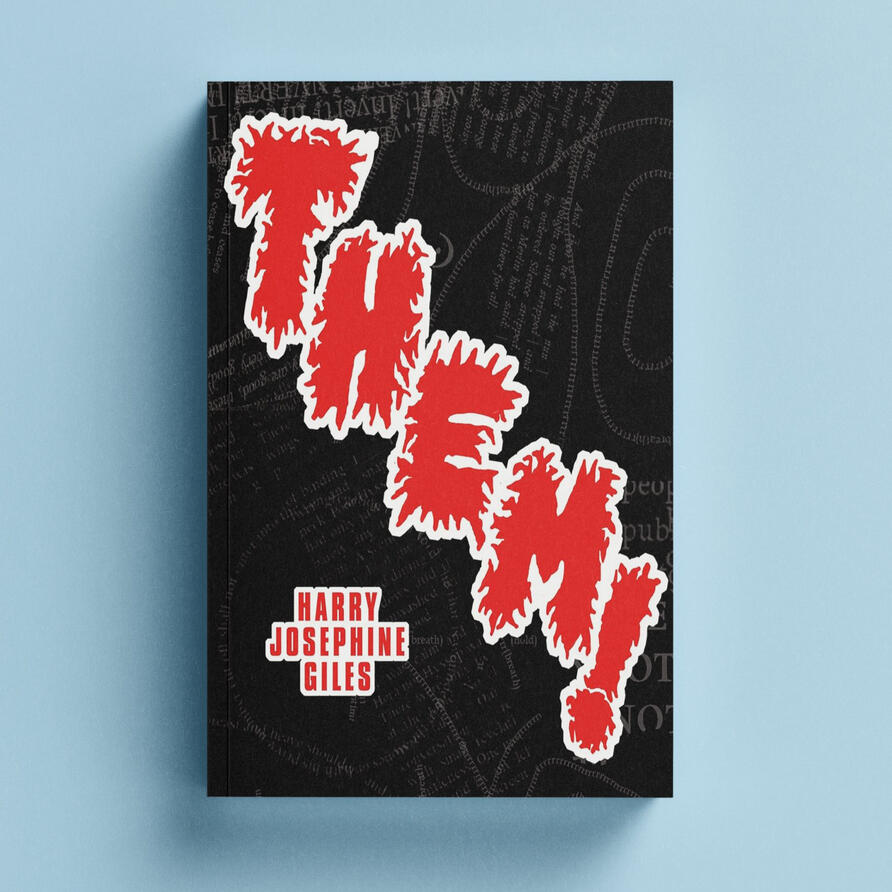
PUBLICATION: Them! by Harry Josephine Giles is published in the UK by Picador
June 2024Them! by Harry Josephine Giles is an exuberant collection of poems about trans life as it is lived today, through the lenses of work, technology and ecology.'A bold and inimitable tour-de-force' Guardian'Skilful and seditious poems . . . furious in [their] humanity and exceptional range of expression' Poetry Book SocietyOrder from your local bookshop here and from the Portobello Bookshop website.
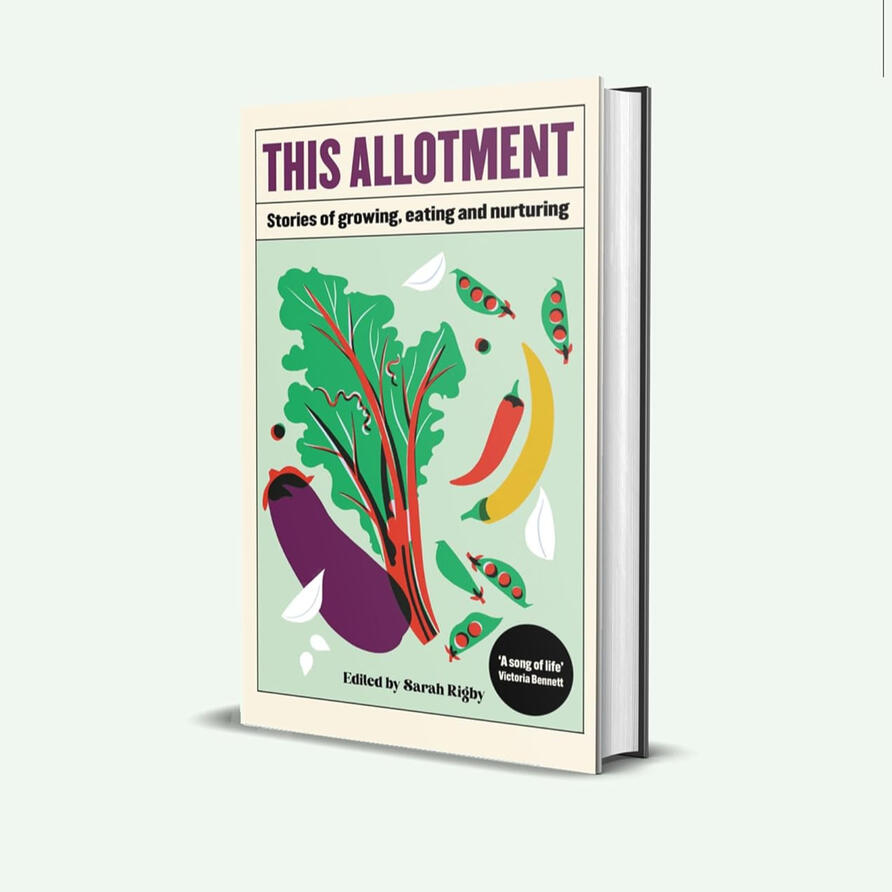
PUBLICATION: The anthology This Allotment, with contributions from Jenny Chamarette and JC Niala is out in the UK from Elliott & Thompson
June 2024‘A celebration of community, belonging, intimacy, healing, reclamation, connection, growth, grief, birth, and joy’ Victoria Bennett, author of All My Wild Mothers‘Dip into these pages as an allotment sceptic and you may well find your mind is changed. If you have a plot, you’ll be reminded of why all the hard work is worthwhile’ The GardenThis Allotment brings together thirteen brilliant contemporary writers in a glorious celebration of these entirely unique spaces: plots that mean so much more than the soil upon which they sitCONTRIBUTORS: Jenny Chamarette * Rob Cowen * Marchelle Farrell * Olia Hercules * David Keenan & Heather Leigh * Kirsteen McNish * JC Niala * Graeme Rigby * Rebecca Schiller * Sui Searle * Sara Venn * Alice VincentOrder from the Portobello Bookshop website or from your local bookshop here.
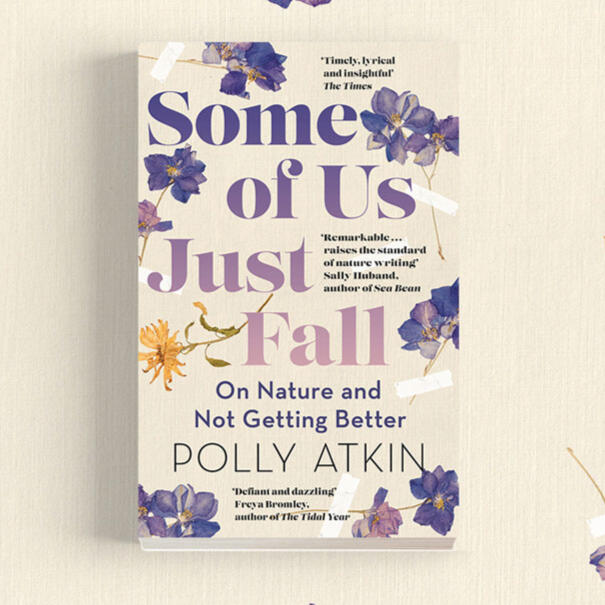
PUBLICATION: The paperback edition of Some of Us Just Fall by Polly Atkin is published in the UK by Sceptre/Hodder
May 2024'Polly Atkin, who had long suffered ill health, was diagnosed with two chronic conditions in her thirties. Some of Us Just Fall is her timely, lyrical and insightful exploration of the stories we tell about our bodies and how they influence our lives and sense of belonging. It made me yearn to revisit the Lake District and Grasmere, where Atkin lives, because her descriptions of her daily walks and swims were so beautiful. Perfect for fans of Sinéad Gleeson, Amy Liptrot and Olivia Laing' Jack Clark, The Times'This book participates in a really exciting new direction for nature writing - one that accommodates fatigue and illness as well as strong, striding bodies' Noreen Masud, HyphenOrder from your local bookshop here and from the Portobello Bookshop website.
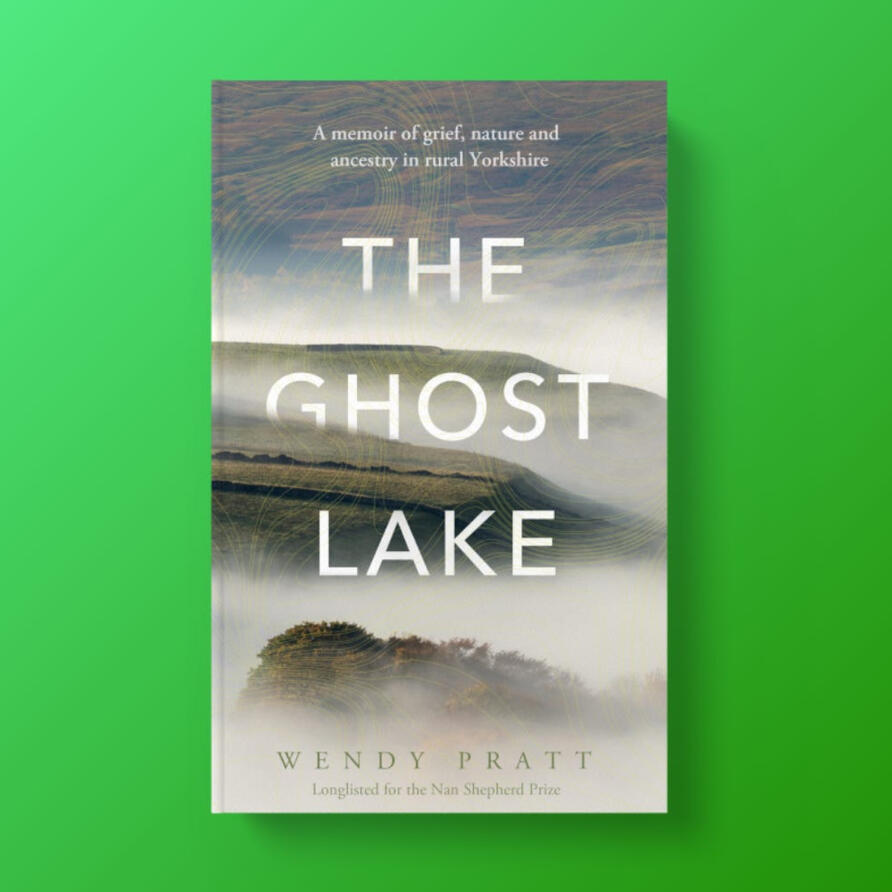
COVER REVEAL for The Ghost Lake by Wendy Pratt for publication August 2024 by Borough Press
May 2024The Ghost Lake is a deeply personal, lyrical and stirring meditation on local history and changing landscapes that intertwines nature writing with an exploration of grief, belonging and the lives and legacies of rural working‐class people'Wendy Pratt has created a shimmering, liminal space of loss that lifts us up and carries us with such tenderness and beauty that we come out the other side transformed' Victoria Bennett, All My Wild Mothers'A powerful exploration of loss, place, connection and self, every page running rich with poetic detail. I devoured it slowly, wanting to savour every word. An astounding work of internal and external history' Adam Farrer, Cold Fish Soup'From the tender rituals of caring for her daughter’s grave to her thoughtful exploration of nearby burial chambers, Wendy Pratt interlaces the strands of her life to form a moving memoir of finding belonging. The Ghost Lake invokes the generative power of setting your own creative path through life and illustrates the importance of attuning to nature' Sally Huband, Sea BeanOrder from your local bookshop here and from the Portobello Bookshop website.
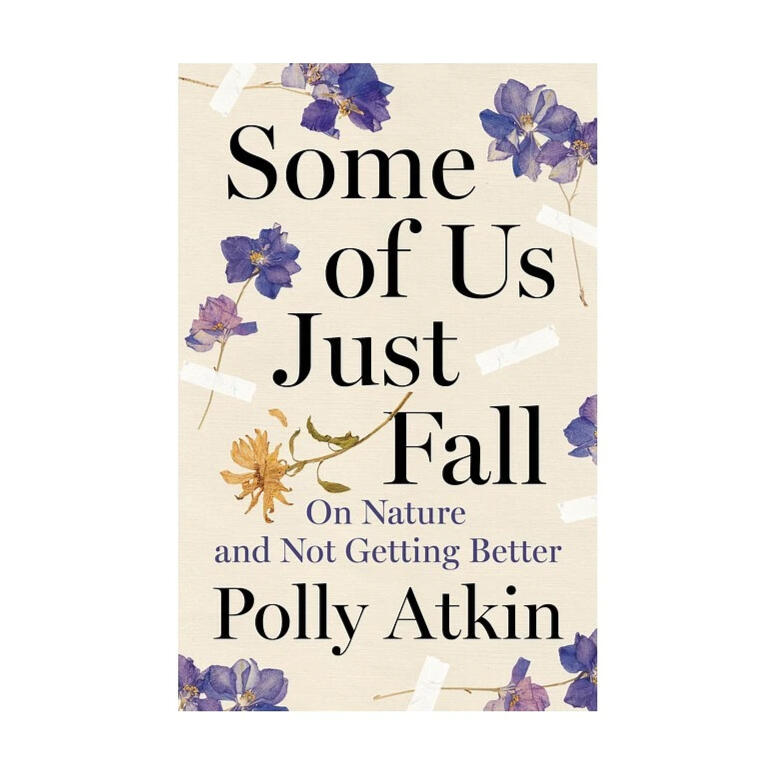
PUBLICATION: Some of Us Just Fall by Polly Atkin is published in North America by Unnamed Press
March 2024'In her contemplative memoir, Polly Atkin encourages everyone, especially those with chronic illnesses, to look beyond their own history and see the beauty in their world' The Washington Post'Polly Atkin's work is a luminous swim through the worlds of chronic illness, wedded to place in a way that adds a new layer to conversations about how bodies resonate with landscape and nature, with a depth of research that provides an ever-illuminating web' Sonya Huber, author of Pain Woman'Beneath the mix of memoir, history, nature writing, and poetry hums a valuable lesson about illnesses and their cures, places and their boundaries, time and its trajectory, and, maybe most significantly, the relationship between nature and health... An empowered and patient story' Kirkus ReviewCheck out the book on the Unnamed Press website
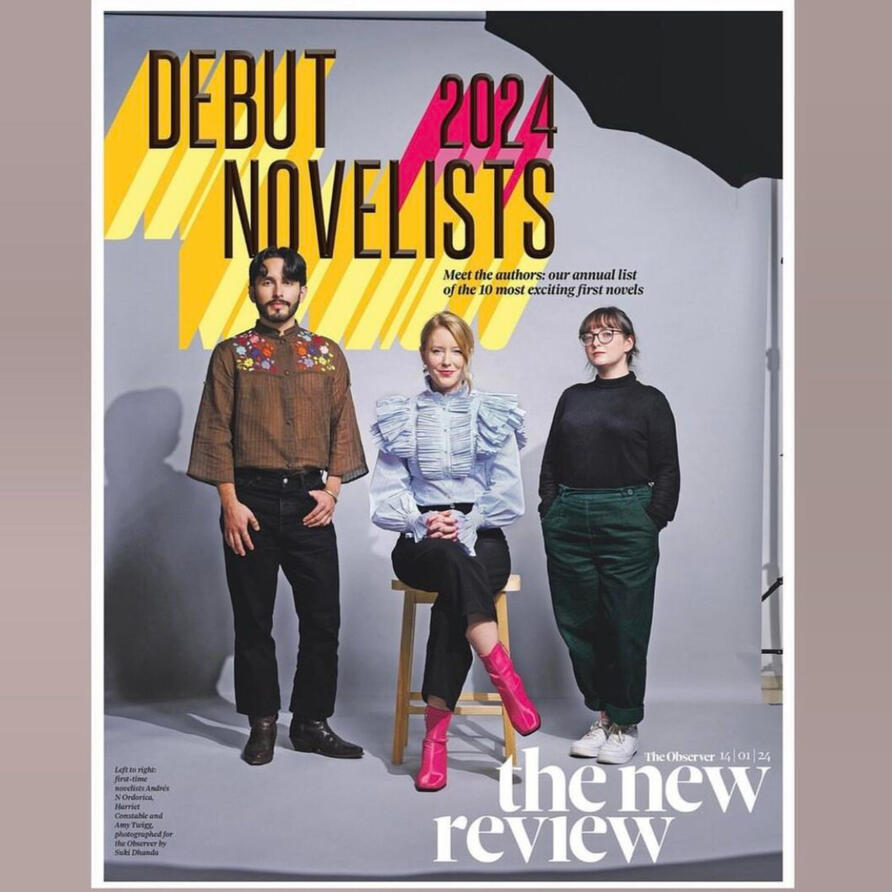
Andrés N. Ordorica was chosen as one of the Observer's Best Debut Novelists for 2024
January 2024Andrés N. Ordorica was chosen as one of the 10 Best Debut Novelists for 2024 by the Observer and even made the cover!Read the full feature on the Observer website
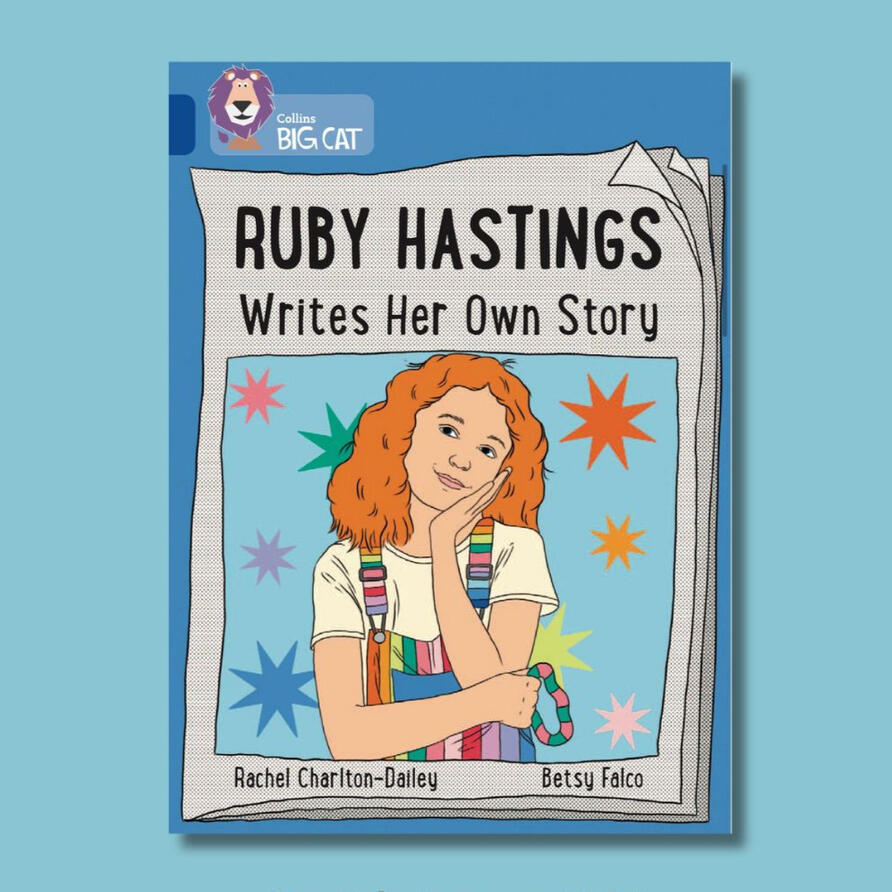
PUBLICATION: Ruby Hastings Writes Her Own Story by Rachel Charlton-Dailey and illustrated by Betsy Falco
January 2024It's publication day for Ruby Hastings Writes Her Own Story by Rachel Charlton-Dailey and illustrated by Betsy Falco!Collins Big Cat supports every primary child on their reading journey from phonics to fluency. Top authors and illustrators have created fiction and non-fiction books that children love to read. Book banded for guided and independent reading, there are reading notes in the back, comprehensive teaching and assessment support and ebooks available.Sapphire/Band 16 books offer longer reads to develop children's sustained engagement with texts and are more complex syntactically.Ruby Hastings dreams of being a journalist when she’s older, just like her idol Susie Starling. However, Ruby thinks she can’t do this due to being dyspraxic. Will what people think of her condition stop her?Rachel was diagnosed with dyspraxia at age 9 and struggled with her own self-worth in a world that wasn’t built for her. She wanted to write a book that would show neurodivergent and disabled children (and adults) that they can achieve as much as their non disabled counterparts, if given adjustments.Ruby Hastings Writes Her Own Story is a love letter to Rachel’s younger self and a reminder that all our “weaknesses” can be turned into strengths.Order from your local bookshop here and from the Portobello Bookshop website.
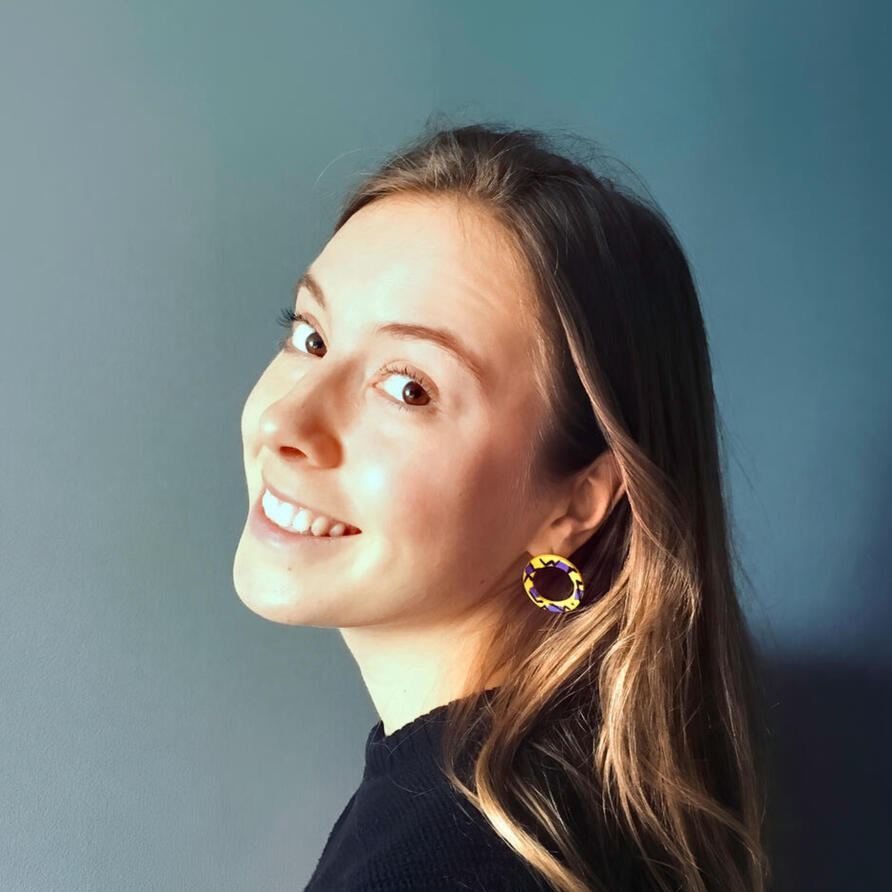
Simon & Schuster UK snares Elspeth Wilson's gothic debut on secret societies and witchiness
December 2023Simon & Schuster UK (S&S UK) has bought Elspeth Wilson’s debut novel These Mortal Bodies.Editor Judith Long acquired UK and Commonwealth rights excluding Canada from Caro Clarke at Portobello Literary.These Mortal Bodies, which will be published in spring 2025, pitched by S&S UK as “a dark academia novel about a young woman’s first year at a prestigious university, where she uncovers truths about her college’s legacy while becoming part of the most elite social circle”.More on the acquisition on The Bookseller.
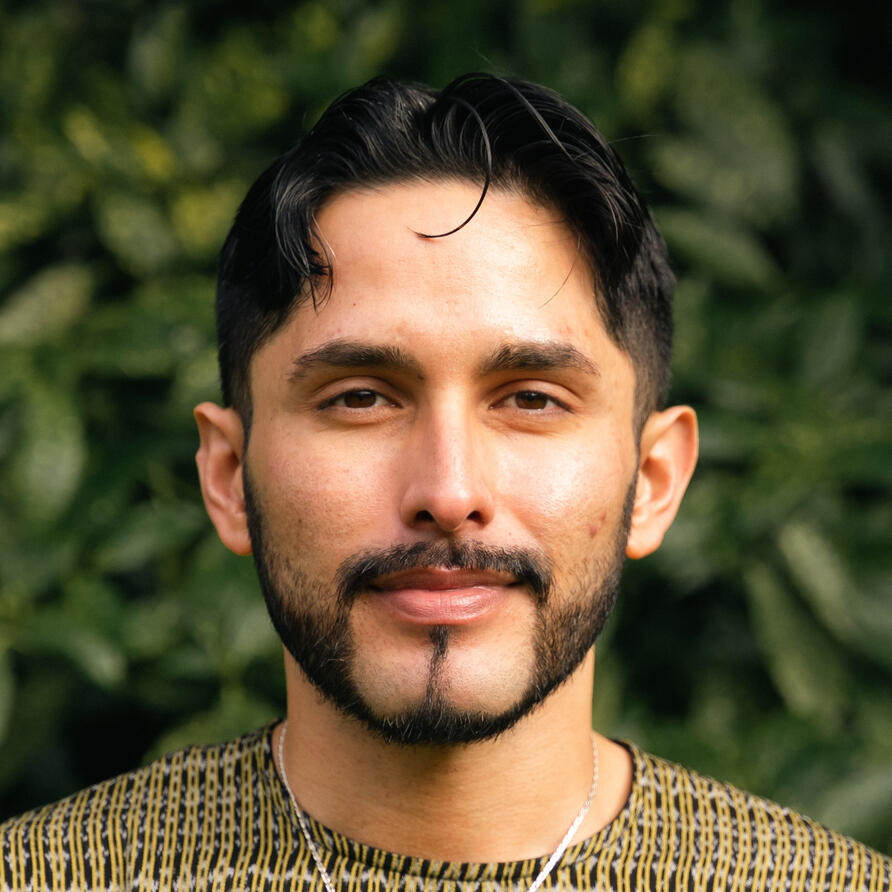
Saraband signs 'timeless' debut novel from Andrés N. Ordorica
December 2023Saraband has signed How We Named The Stars, an "intimate and devastating" queer coming-of-age story from debut novelist, Andrés N Ordorica. Publisher Sara Hunt acquired UK and Commonwealth, English language rights, excluding Canada, from Caro Clarke at Portobello Literary. The novel will be published on 4th July 2024.More on the acquisition on The Bookseller.
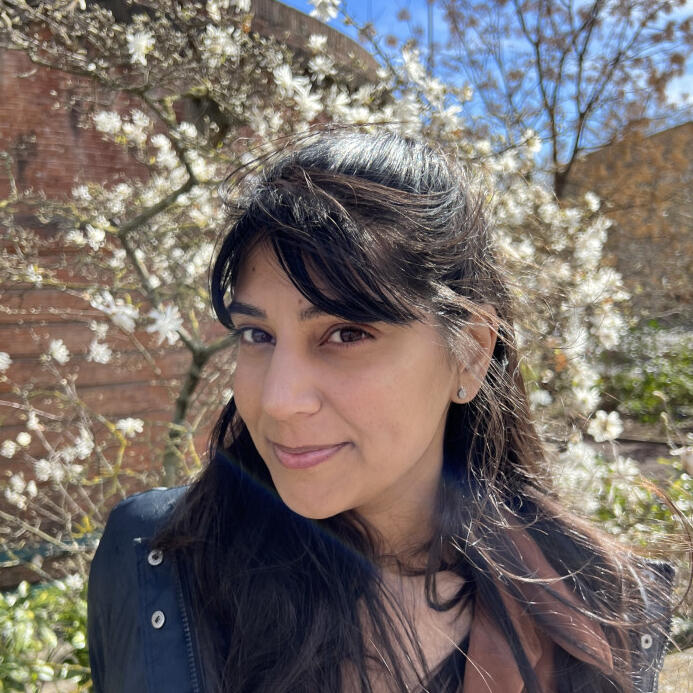
Alycia Pirmohamed's essay collection wins the Nan Shepherd Prize
November 2023Alycia Pirmohamed has been named the third winner of the Nan Shepherd Prize, the biennial prize for underrepresented voices in nature writing. The author will receive a £10,000 publishing contract with Canongate for her essay collection, A Beautiful and Vital Place, and an offer of representation from Caro Clarke at the Portobello Literary Agency.Alycia said: “It's an honour to win the Nan Shepherd Prize – a prize I wholeheartedly believe in. I’m so grateful to the judges for trusting in this book, and for this opportunity to carve out a space in nature writing. Underrepresented identities are politicised; right now, world powers and mainstream media are dehumanising Muslims to justify war crimes in Palestine. My book navigates Islamophobia and my experience as a Muslim woman, and it’s more important than ever for our voices to be heard in this political climate.”More information on the Nan Shepherd Prize website.

Faber signs Adam Ramsay’s ‘piercing’ examination of the UK’s democratic crisis
November 2023Faber has signed a book by Scottish journalist and editor Adam Ramsay on the democratic crisis faced by the UK and its institutions. Commissioning editor Mo Hafeez acquired UK and Commonwealth rights, excluding Canada rights and audio rights, to Abolish Westminster! from Caro Clarke at Portobello Literary. Publication is currently scheduled for spring 2026.More on the acquisition on The Bookseller.
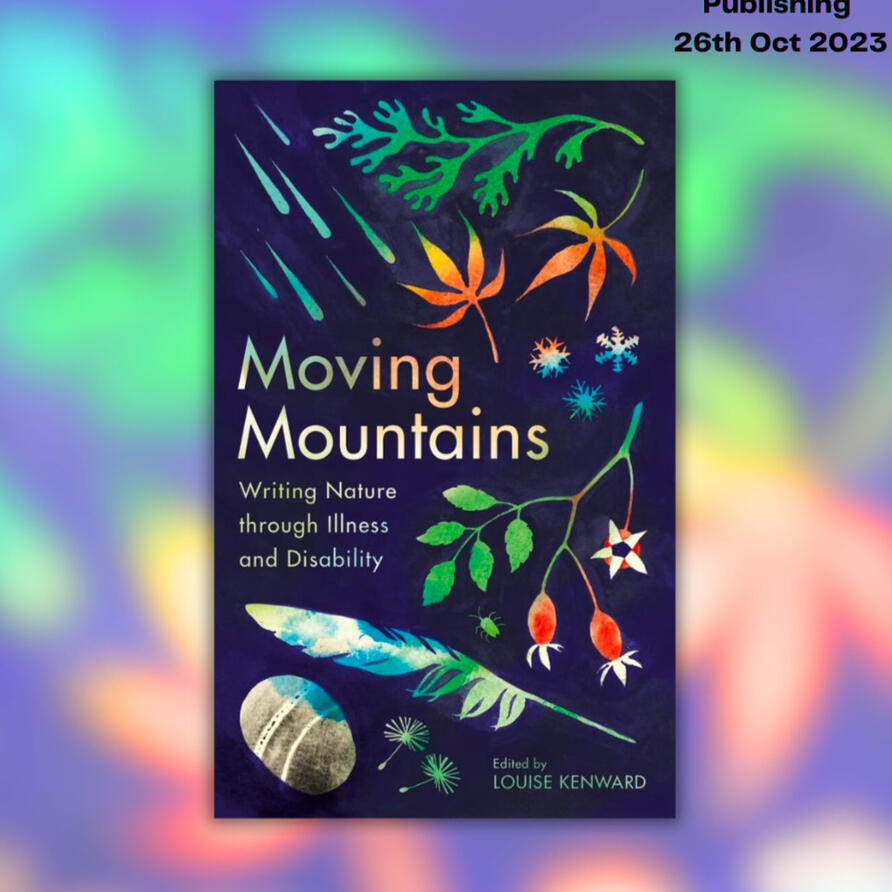
PUBLICATION: Moving Mountains: Writing Nature through Disability and Illness, edited by Louise Kenward
October 2023It's publication day for Moving Mountains: Writing Nature through Disability and Illness, edited by Louise Kenward, a first-of-its-kind anthology of nature writing by authors living with chronic illness and physical disability.'An anthology to treasure and return to' ELINOR CLEGHORN
'Uniquely compelling, dynamic and powerful' LUCY JONES
'Deeply affecting' TOM SHAKESPEARE
'Promises to change the landscape of nature writing' LIZZIE HUXLEY-JONESWITH A FOREWORD BY SAMANTHA WALTONThrough twenty-five pieces, the writers of Moving Mountains offer a vision of nature that encompasses the close up, the microscopic, and the vast.From a single falling raindrop to the enormity of the north wind, this is nature experienced wholly and acutely, written from the perspective of disabled and chronically ill authors.Moving Mountains is not about overcoming or conquering, but about living with and connecting, shifting the reader's attention to the things easily overlooked by those who move through the world untroubled by the body that carries them.Contributors: Isobel Anderson, Kerri Andrews, Polly Atkin, Khairani Barokka, Victoria Bennett, Feline Charpentier, Cat Chong, Eli Clare, Dawn Cole, Lorna Crabbe, Kate Davis, Carol Donaldson, Alec Finlay, Jamie Hale, Jane Hartshorn, Hannah Hodgson, Sally Huband, Rowan Jaines, Dillon Jaxx, Louise Kenward, Abi Palmer, Louisa Adjoa Parker, Alice Tarbuck, Nic WilsonOrder from your local bookshop here and from the Portobello Bookshop website.
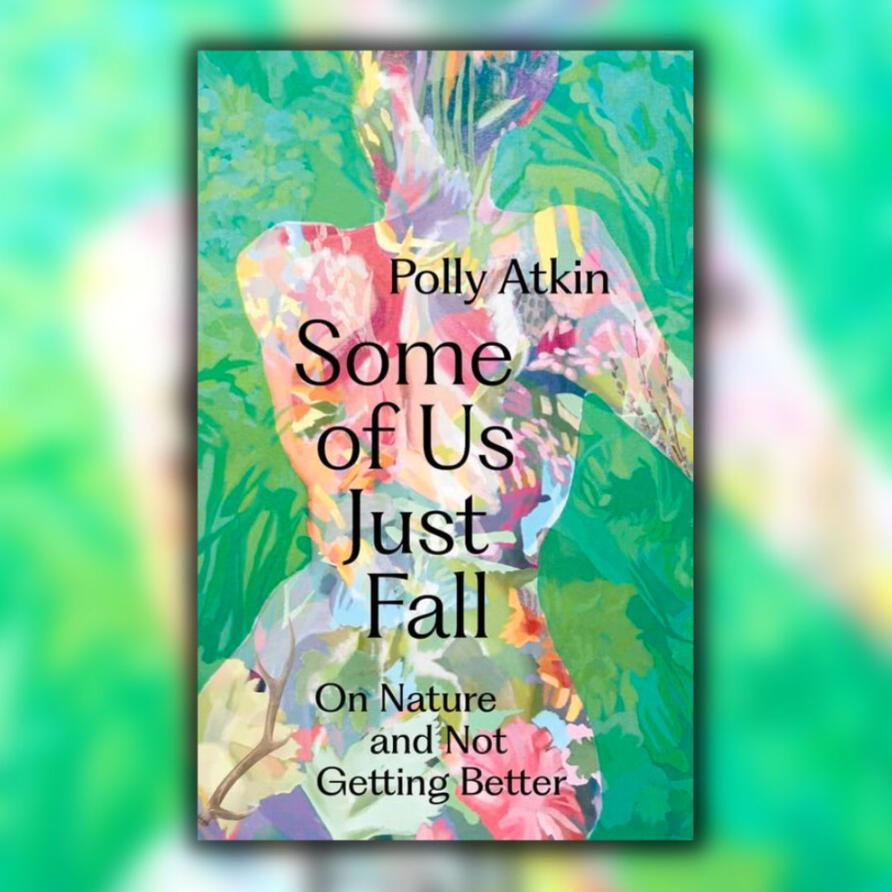
PUBLICATION: Some of Us Just Fall: On Nature and Not Getting Better by Polly Atkin
July 2023It's publication day for Some of Us Just Fall: On Nature and Not Getting Better by Polly Atkin, a raw and exquisite meditation on chronic illness and our place within the landscape, from prize-winning poet Polly Atkin.'It raises the standard of nature writing. This is both radical manifesto and activism in book form' Sally Huband, author of Sea Bean'Defiant and dazzling' Freya Bromley, author of The Tidal Year'Essential reading' Jessica J. Lee, author of Turning'Long before I knew I was sick, I knew I was breakable . . .'After years of unexplained health problems, Polly Atkin's perception of her body was rendered fluid and disjointed. When she was finally diagnosed with two chronic conditions in her thirties, she began to piece together what had been happening to her - all the misdiagnoses, the fractures, the dislocations, the bone-crushing exhaustion, the not being believed.Some of Us Just Fall combines memoir, pathography and nature writing to trace a fascinating journey through illness, a journey which led Polly to her current home in the Lake District, where outdoor swimming is purported to cure all, and where every day she turns to the natural world to help tame her illness. Polly delves into the history of her two genetic conditions, uncovering how these illnesses were managed (or not) in times gone by and exploring how best to plan for her own future.From medical misogyny and gaslighting, to the illusion of 'the nature cure', this essential, beautiful and deeply personal book examines how we deal with bodies that diverge from the norm, and why this urgently needs to change.This is not a book about getting better. This is a book about living better with illness.Order from your local bookshop here and from the Portobello Bookshop website.
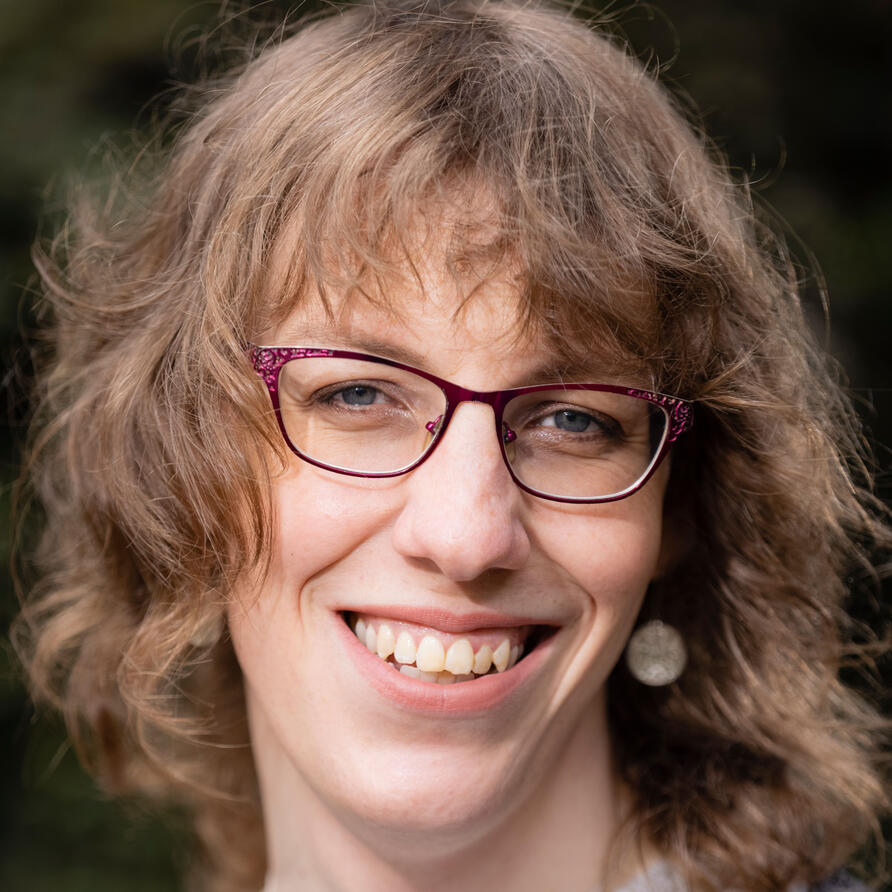
Picador acquires Them! from Arthur C Clarke winner Harry Josephine Giles
July 2023Colette Bryce, poetry editor, acquired World English language rights from Caro Clarke at Portobello Literary, and Picador will publish the book in June 2024. Them! Is described as “an innovative collection of poems about trans life in the UK today, through the lenses of work, technology and ecology”.
More on the acquisition on The Bookseller.
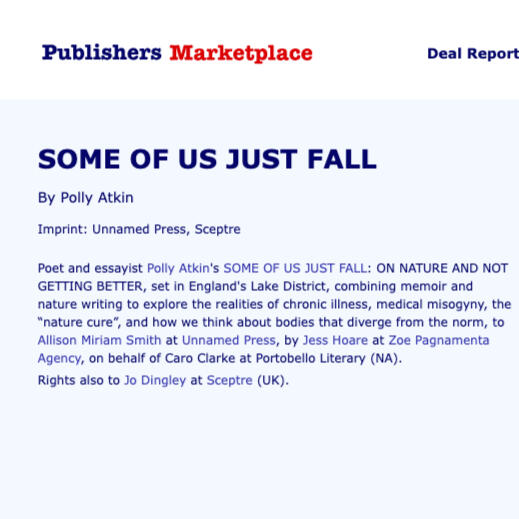
Unnamed Press acquires North American rights to Some of Us Just Fall by Polly Atkin
June 2023Allison Miriam Smith at Unnamed Press acquired North American rights to Some of Us Just Fall by Polly Atkin from Jess Hoare at Zoe Pagnamenta Agency on behalf of Caro Clarke at Portobello Literary for a publication in March 2024.
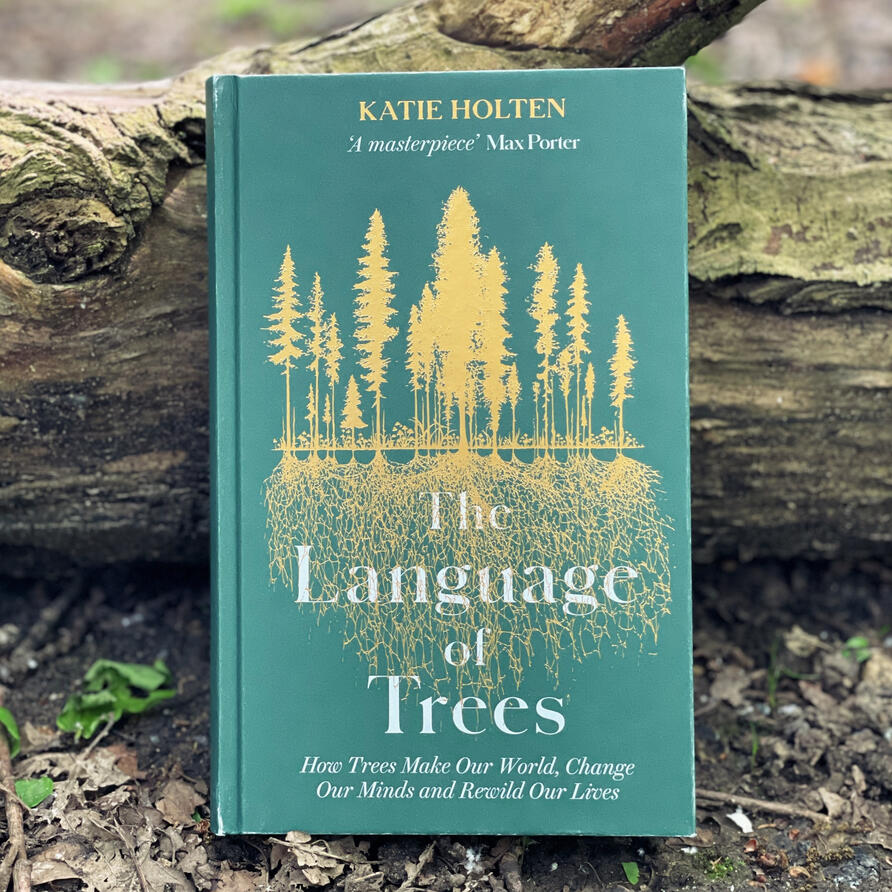
PUBLICATION: The Language of Trees: How Trees Make Our World, Change Our Minds and Rewild Our Lives by Katie Holten
15th June 2023It's publication day for The Language Of Trees: How Trees Make Our World, Change Our Minds and Rewild Our Lives by Katie Holten, a beautiful collection of writing on our close connection to trees, conservation & the Rights of Nature, all illustrated with Katie's Tree Alphabet.
Order from your local bookshop here and from the Portobello Bookshop website.
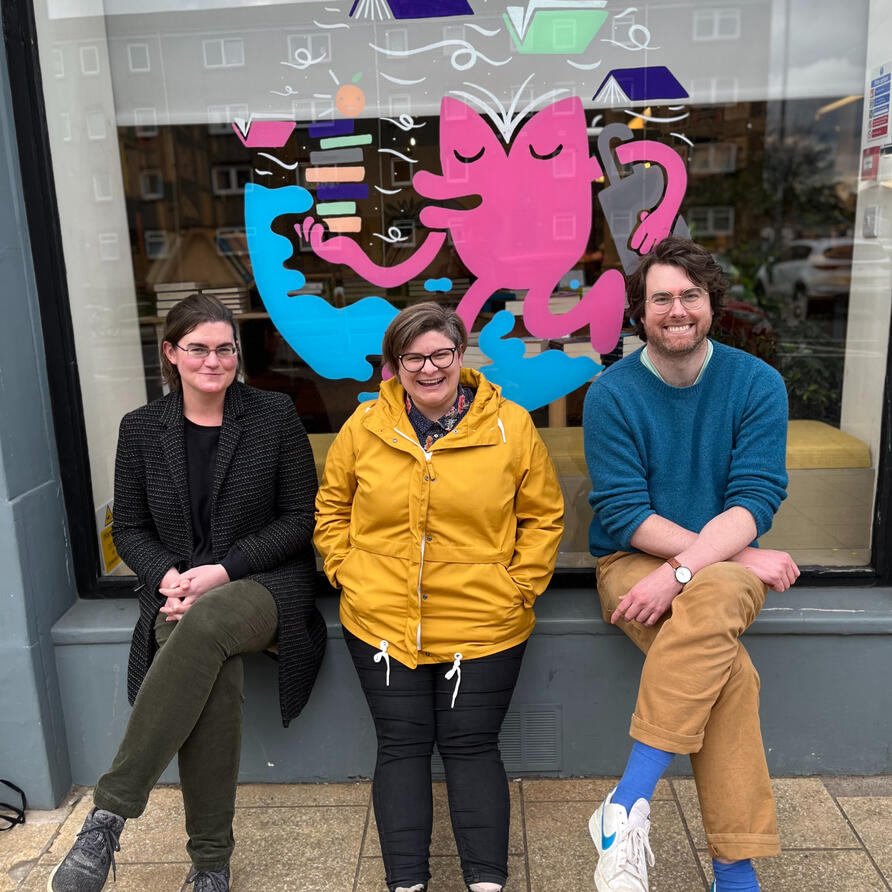
New trio aim big after taking the helm of the Association of Scottish Literary Agents
May 2023Caro Clarke of Portobello Literary was named the new Chair of the Association of Scottish Literary Agents alongside Louise Lamont from LBA Books who was named secretary and Robbie Guillory of Underline Agency as treasurer. More information on The Bookseller.
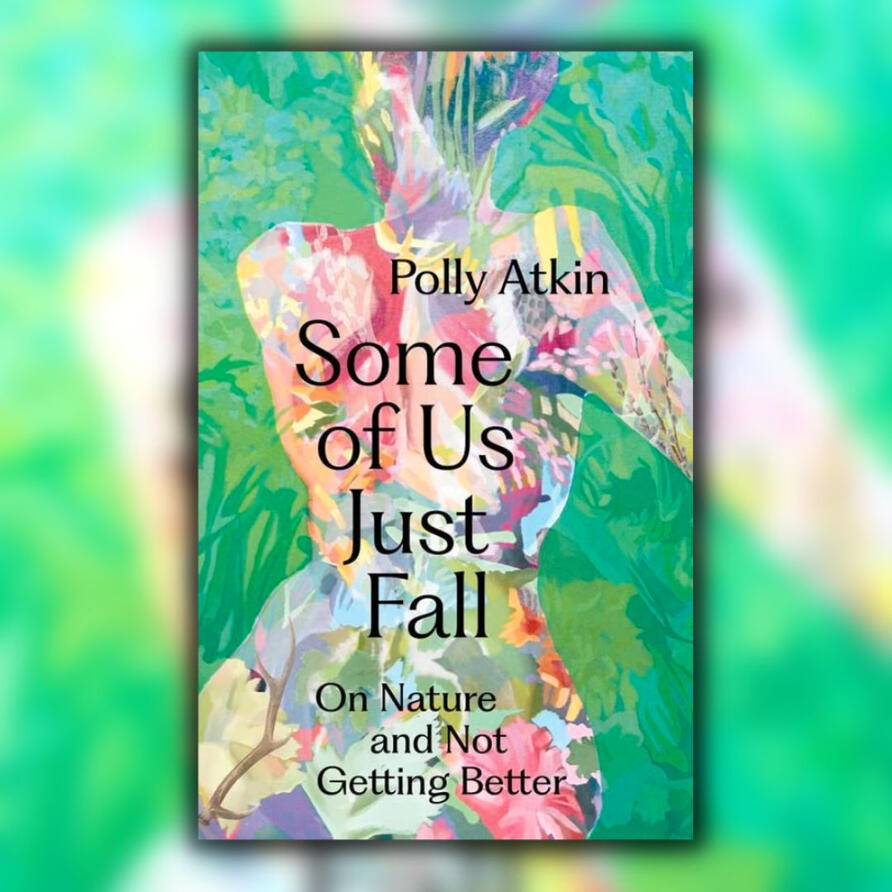
COVER REVEAL: Some of Us Just Fall: On Nature and Not Getting Better by Polly Atkin
April 2023Out 6th July 2023. More information on Sceptre's website.
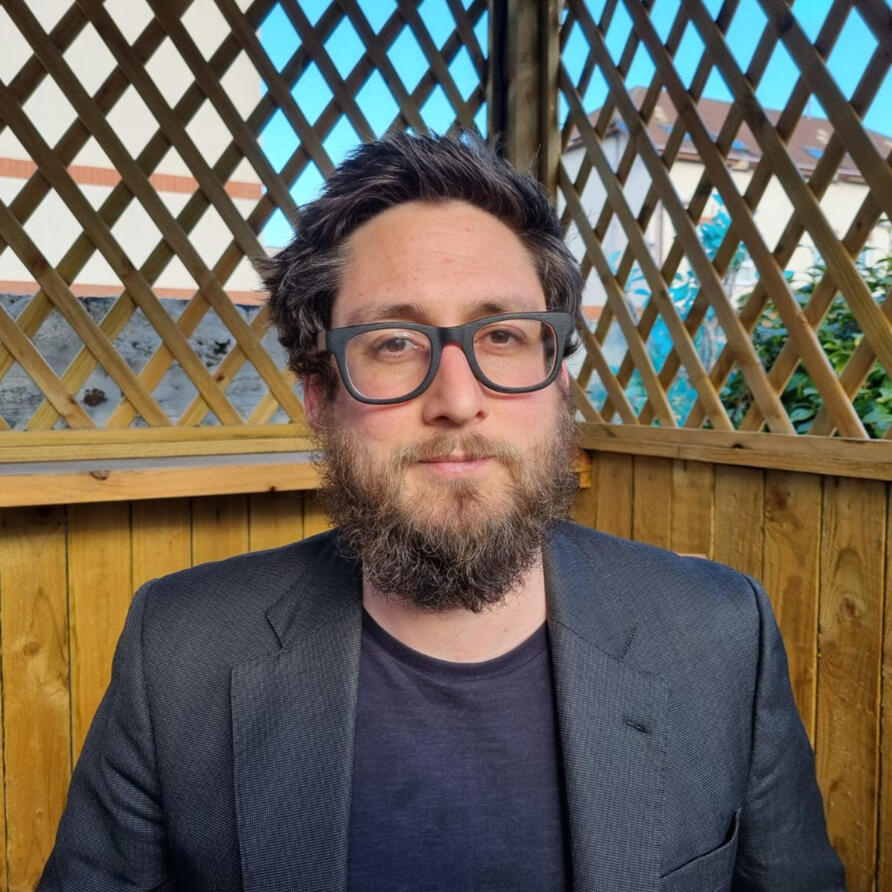
Polygon Acquires World English Language Rights to Bucket List by Russell Jones
April 2023We're delighted to have wrapped up a deal with Polygon for Bucket List by Russell Jones which will be published in Spring 2024.‘Russell Jones’s Bucket List is the feel-good novel of the year,’ says Polygon editor Edward Crossan. ‘It’s a hilarious page-turner that’s like a warm hug. Russell’s writing is charming, and he’s developed characters that are both memorable and loveable. I can’t wait to get this book into the hands of readers. And I can’t wait to read more from this author.’More on the acquisition on Birlinn's website.
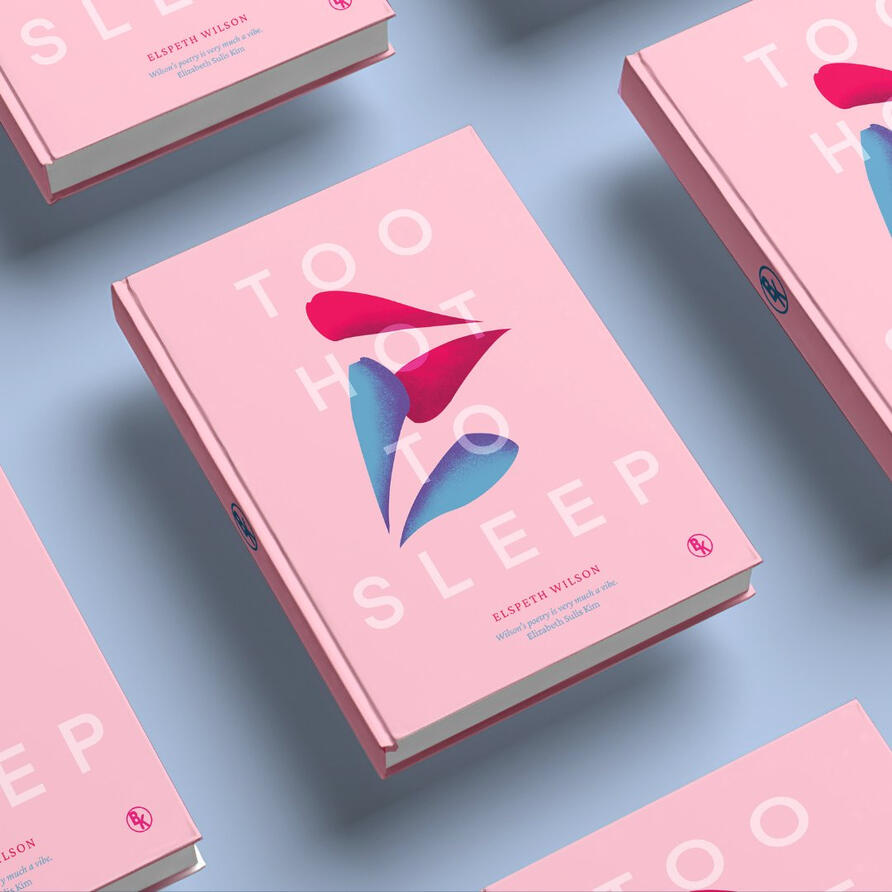
COVER REVEAL: Too Hot To Sleep by Elspeth Wilson
April 2023Out April 2023. More information on Bent Key Publishing's website.
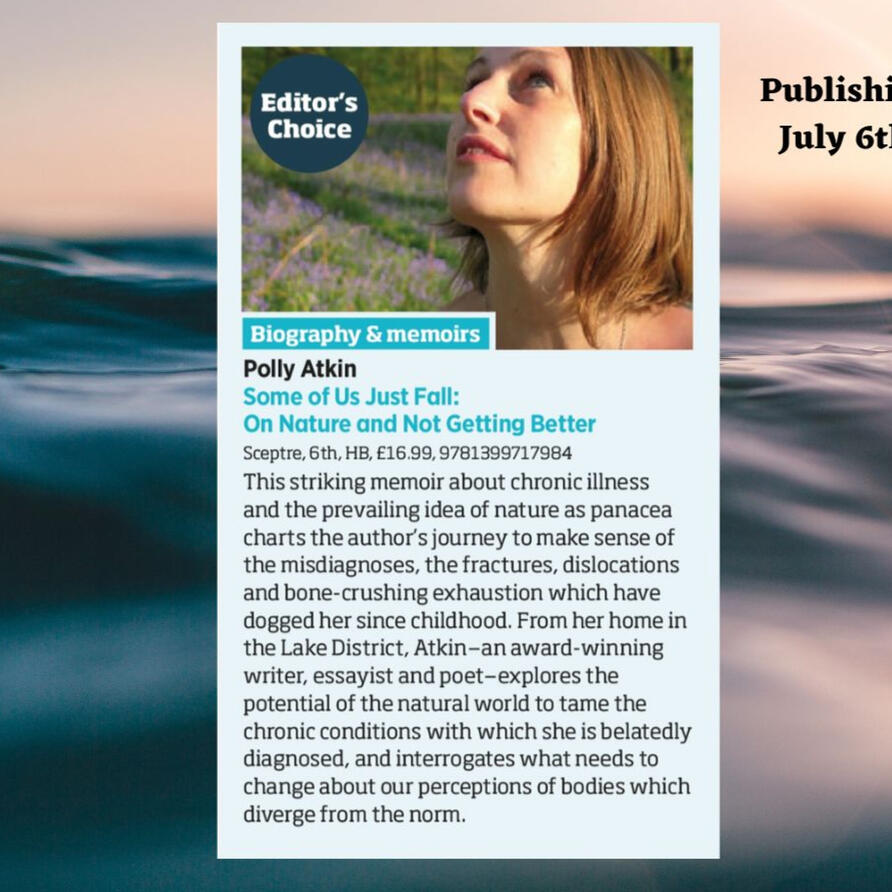
Some of Us Just Fall: On Nature and Not Getting Better by Polly Atkin - a Bookseller's Editor's Choice
April 2023Caroline Sanderson picked Some of Us Just Fall by Polly Atkin as a Bookseller's Editor's Choice for July 2023 calling it 'striking'.
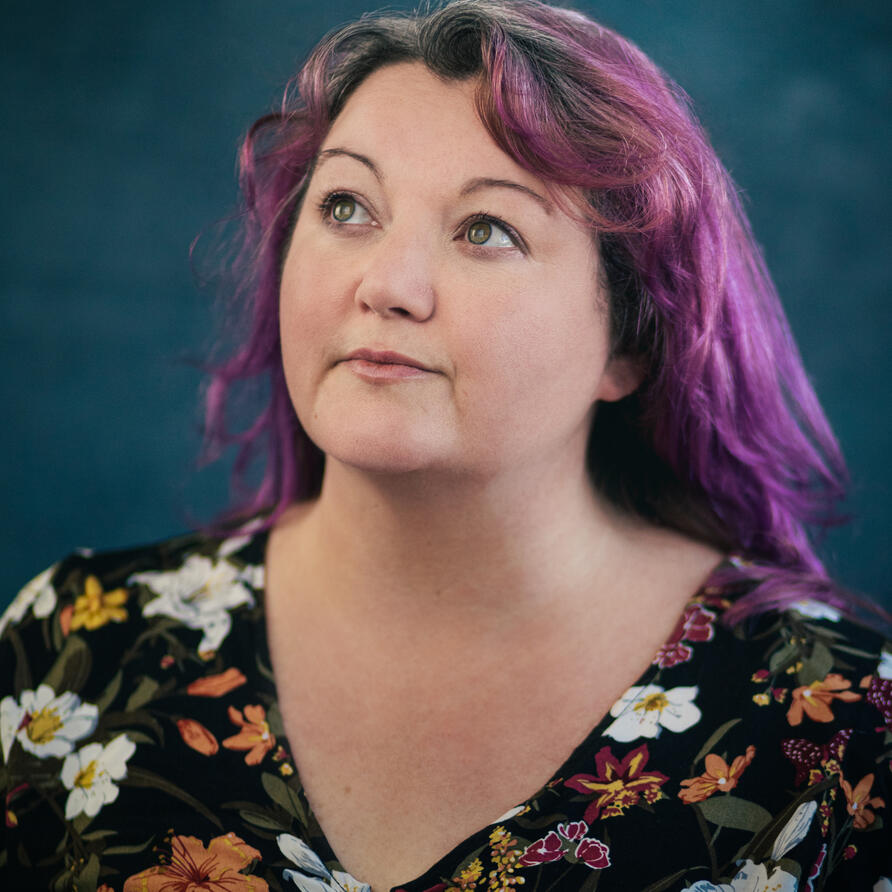
The Borough Press to publish 'powerful' exploration of grief and nature
April 2023We're delighted to have wrapped up a deal with the amazing Borough Press, an imprint of HarperCollins UK, for Wendy Pratt's The Ghost Lake which will be published in Spring 2024.
More on the acquisition on The Bookseller.
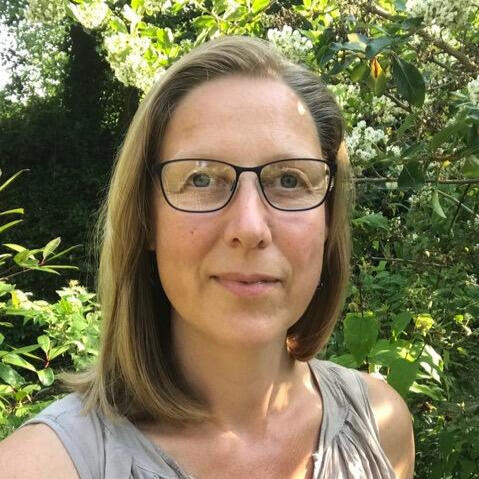
Footnote Press scoops Moving Mountains, 'first of its kind' anthology of nature writing by disabled and chronically ill authors, edited by Louise Kenward
February 2023We're thrilled to have wrapped up a deal with the brilliant Footnote Press for Moving Mountains, an incredibly special anthology of nature writing by disabled and chronically ill authors edited by
Louise Kenward which will be published in October 2023.
More on the acquisition on BookBrunch.
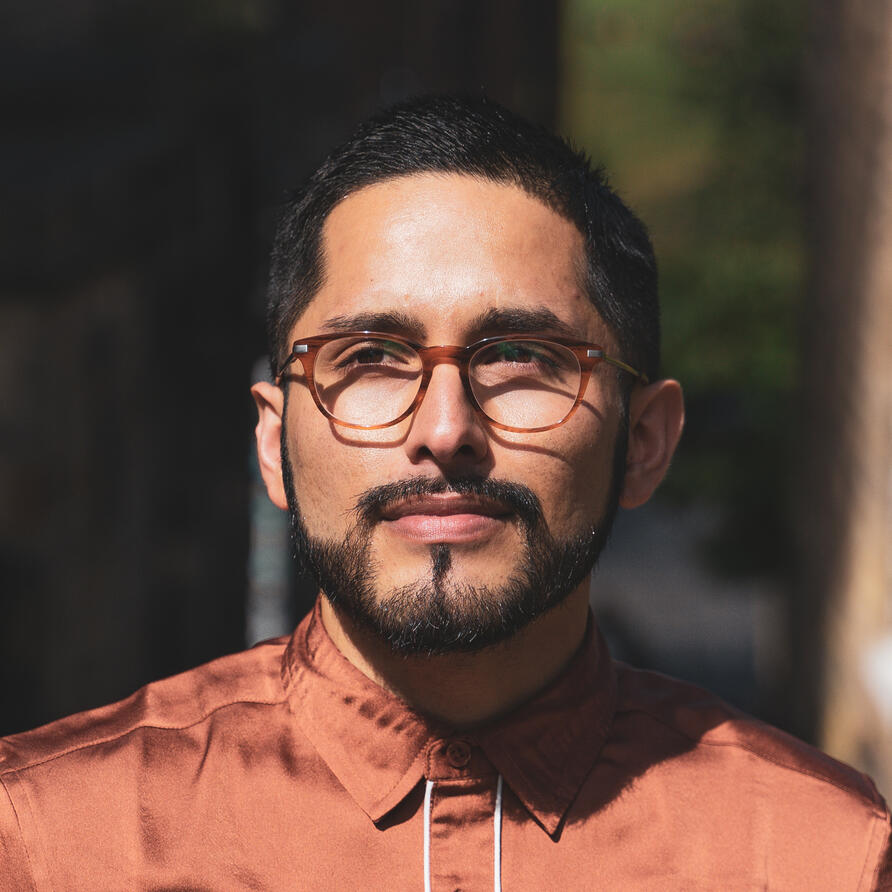
Andrés N. Ordorica's How We Named The Stars sold to Tin House Books in North America
February 2023Andrés N. Ordorica's How We Named The Stars, set between the United States and Mexico that explores belonging, grief and first love between a man, who is coming to understand what it means to share his late uncle's name, and his college roommate, who changes everything, to Elizabeth DeMeo at Tin House Books for publication in Winter 2024.
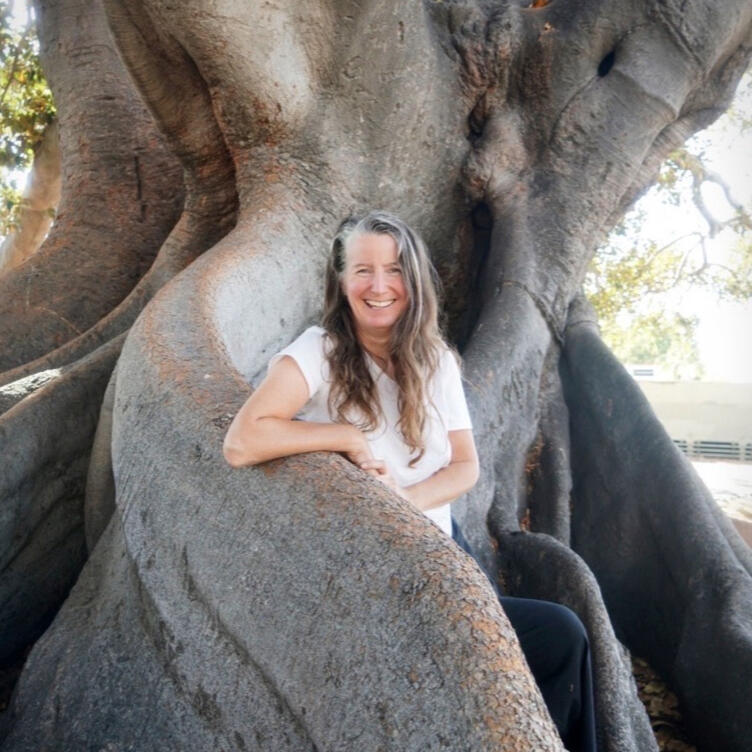
Katie Holten's The Language of Trees sold to Elliott & Thompson
February 2023Elliott & Thompson Publishing Director Sarah Rigby acquired UK & Commonwealth excluding Canada rights to The Language of Trees by Katie Holten following a two-way auction from Tin House via Caro Clarke at Portobello Literary.Inspired by forests, leaves, roots, and seeds, The Language of Trees is a gorgeously illustrated collection, a love letter to the wonder of trees – and how they make our world, stretch our minds and rewild our landscapes and lives. The book will be printed in rich, deep green ink and published in demy hardback and ebook on 15 June 2023.
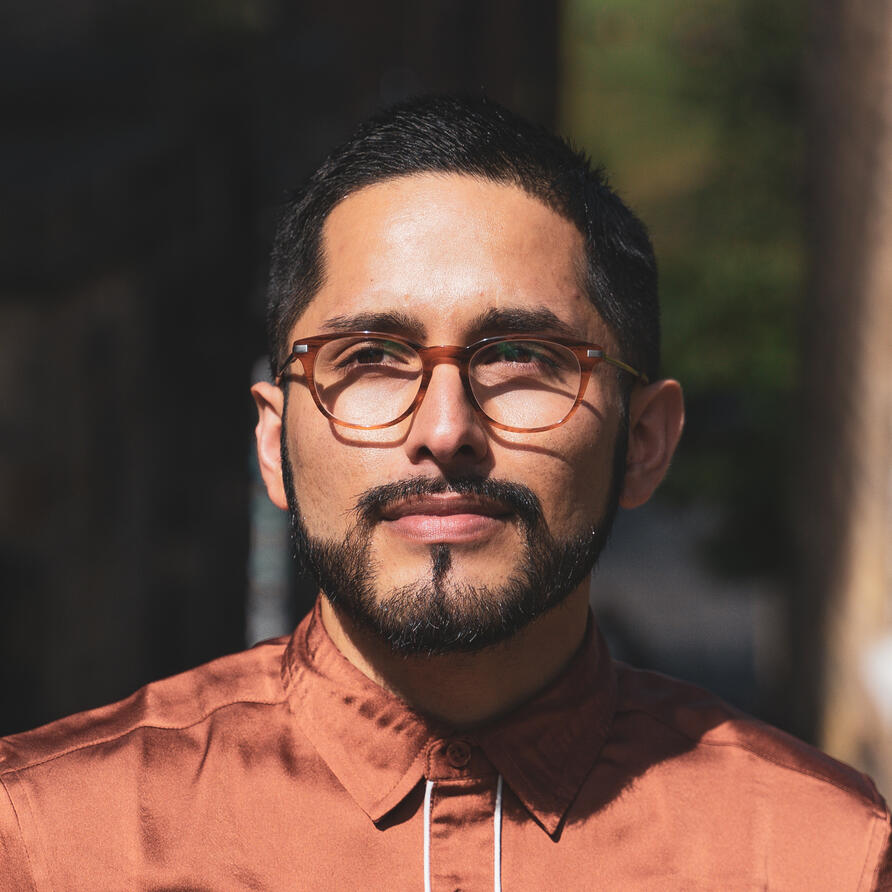
Andrés N. Ordorica shortlisted for the Saltire Society Poetry Book of the Year for Scotland
November 2022Andrés N. Ordorica has been shortlisted for the Saltire Society Poetry Book of the Year for Scotland's National Book Awards for his poetry collection At Least This I Know. The news was announced in the Bookseller.The Saltire Society website features a video of a judge talking about the book and a reading from Andrés.
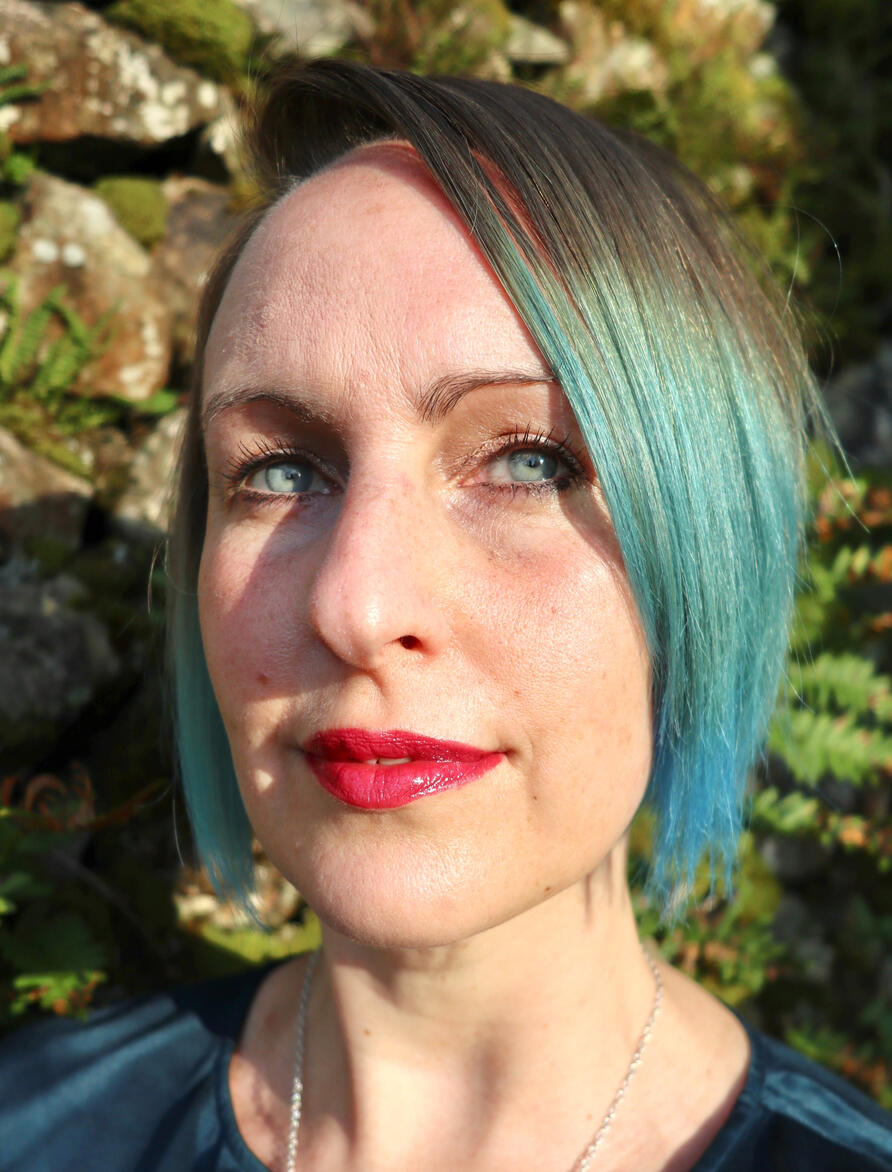
Sceptre lands ‘exquisite’ meditation on chronic illness by prize-winning poet Polly Atkin
September 2022We're thrilled to share that Sceptre has acquired Some of Us Just Fall by prize-winning poet Polly Atkin, a “raw and exquisite meditation on chronic illness and our place within the landscape" to publish in July 2023.
More on the acquisition in The Bookseller.